

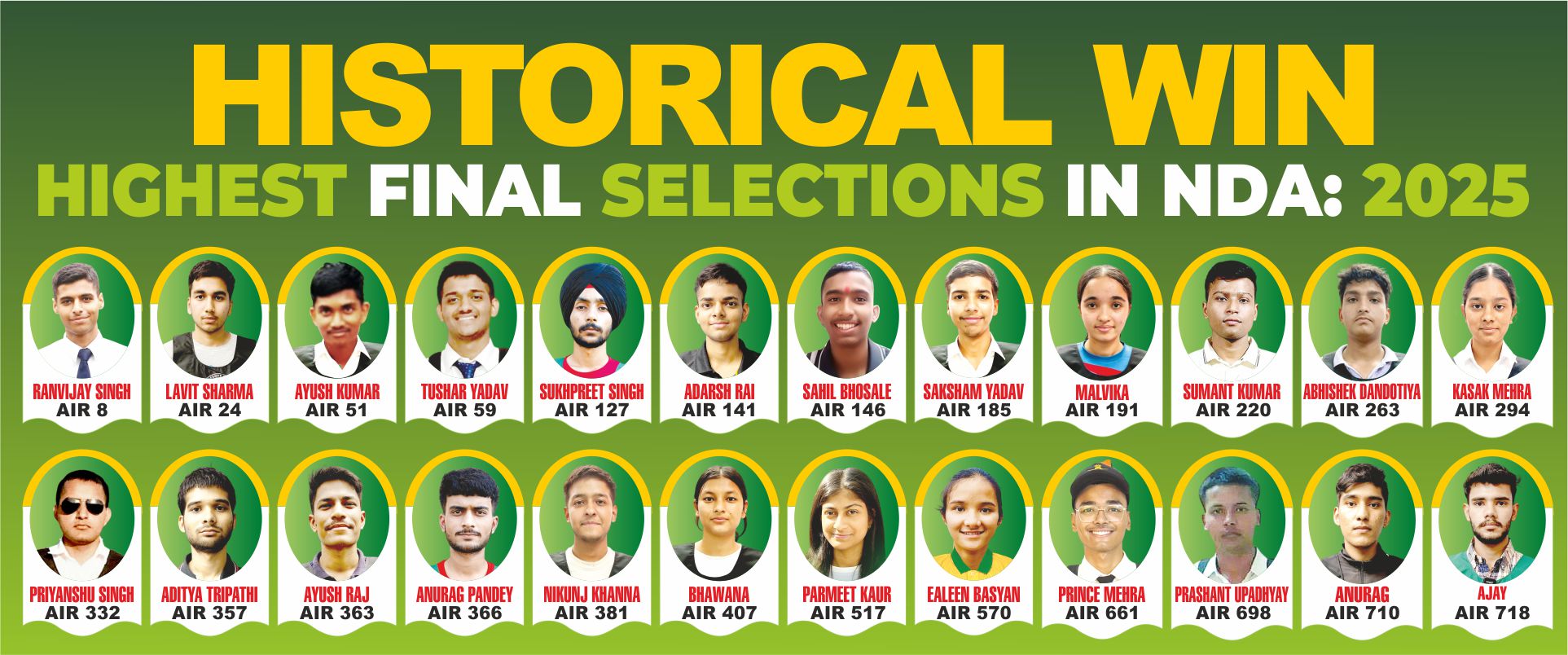
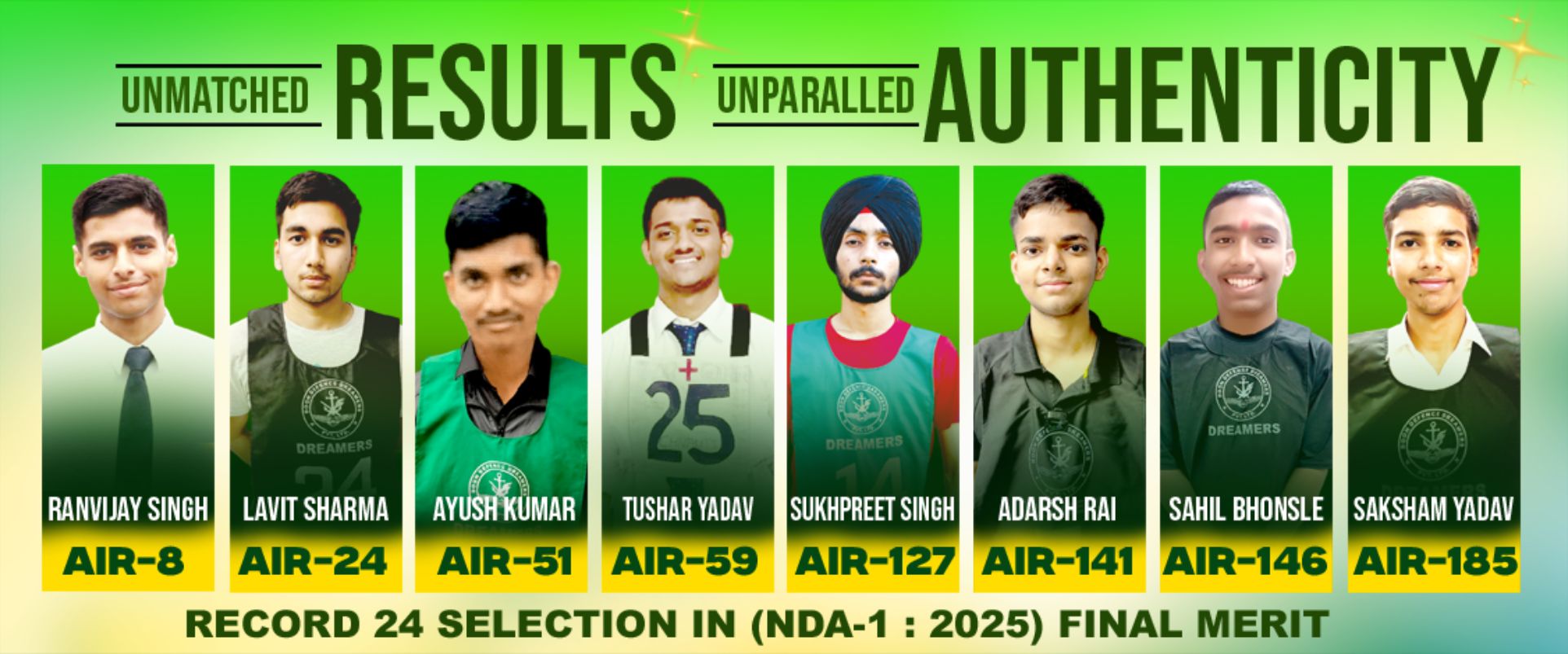
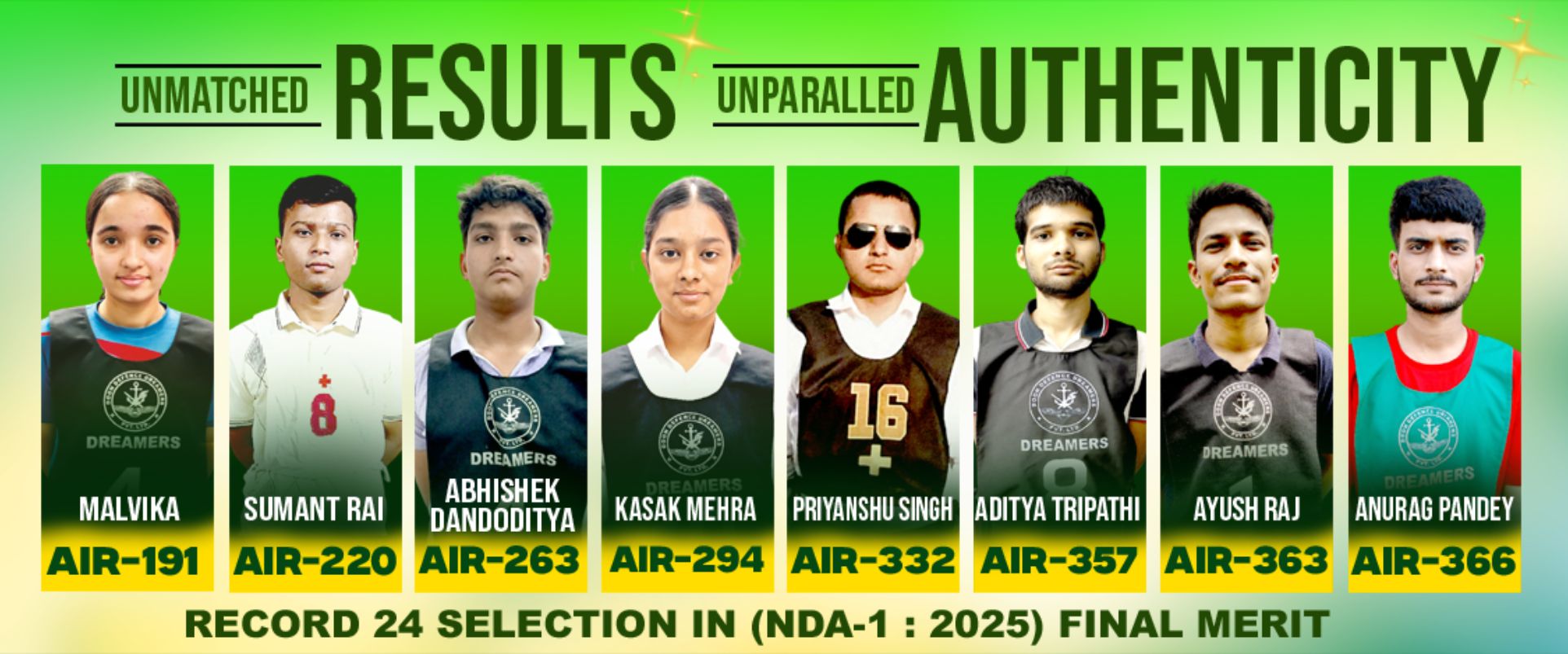

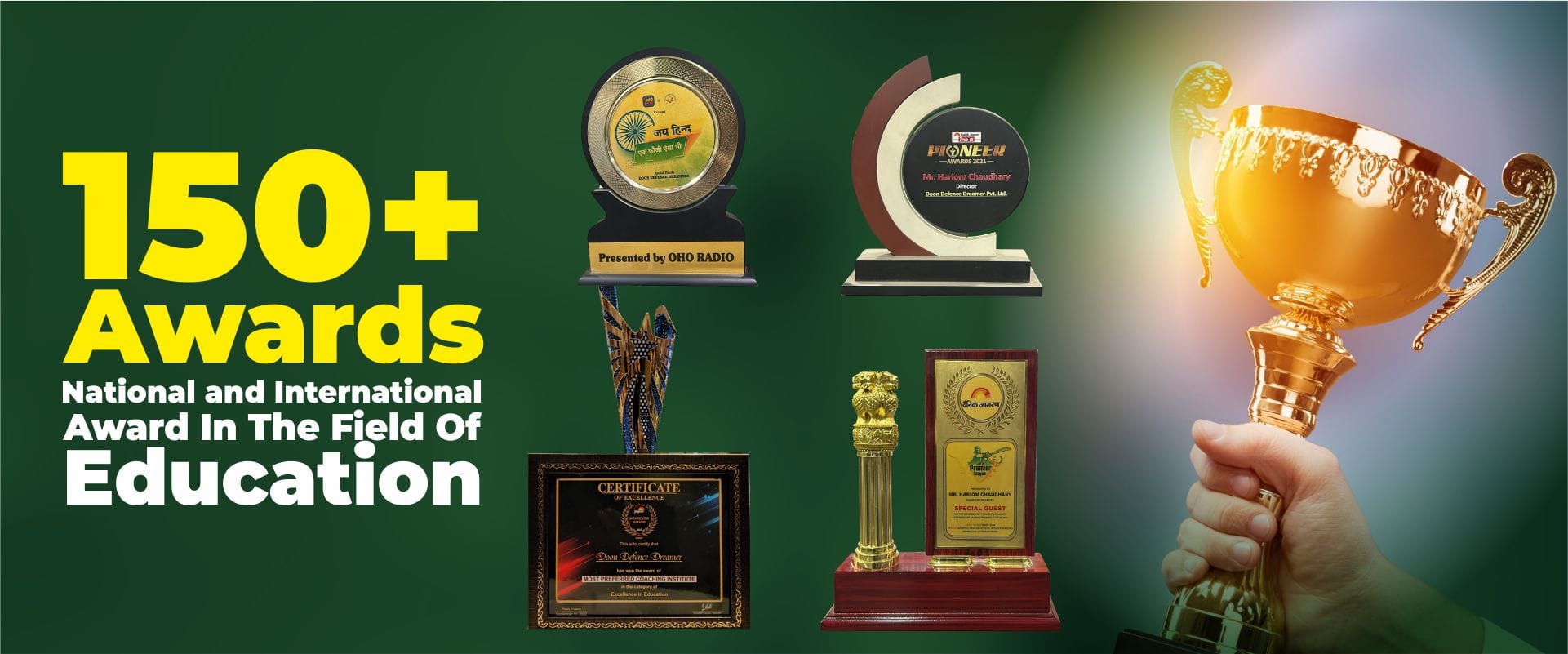



Doon Defence Dreamers is widely regarded as the best NDA coaching in Dehradun, ideally located at the foothills of the Shivalik mountains. Since its establishment, the academy has built a strong reputation for delivering outstanding results, guiding over 752+ aspirants to become officers in the Indian armed forces in just the past two years—a record that stands out across India. High ratings from NDA candidates reflect the academy’s commitment to providing high-quality educational services and expert training, all within a supportive and focused environment.
What sets Doon Defence Dreamers apart is its dedication to turning aspirations into real achievements. The experienced faculty ensures each student receives disciplined preparation, holistic personality development, and strategic guidance tailored to the NDA selection process. Consistently recognized as the top choice for NDA preparation in Dehradun, the academy helps nurture the essential qualities in every candidate, setting the foundation for future success and a rewarding career in defence.

From CEO Desk, Doon Defence Dreamers
Dear Students and Parents,
When we laid the foundation of Doon Defence Dreamers in 2014 with just a small classroom and big dreams, our vision was clear – to create officers for the Indian Armed Forces who stand as symbols of leadership, discipline, and patriotism. Today, within less than a decade, this vision has turned into a reality for thousands of young aspirants across India.
We take immense pride in sharing that 35 recommendations in NDA 155 SSB, including the historic achievement of 6 female cadets, have brought national recognition to Doon Defence Dreamers. This is not just a number, but a testament to the fact that with the right guidance and dedication, every dream can be fulfilled.
Our institute has always believed in the age-old tradition of Guru–Shishya parampara and the power of personal mentorship. Moving forward in the digital age, we have strengthened this bond with innovation. Doon Defence Dreamers proudly claims to be India’s first AI-powered Defence Coaching Platform, offering 24×7 doubt-solving, AI-driven Mock SSB Interviews, and Personalized Learning Modules. These innovations make us stand apart and prepare our students to face future challenges with confidence.
We strongly believe that true defence preparation goes beyond written exams and interviews. Our holistic training includes academic excellence, SSB expertise, physical fitness, mental resilience, and personality development.
With warm regards
Hariom Chaudhary
Founder & CEO
Doon Defence Dreamers


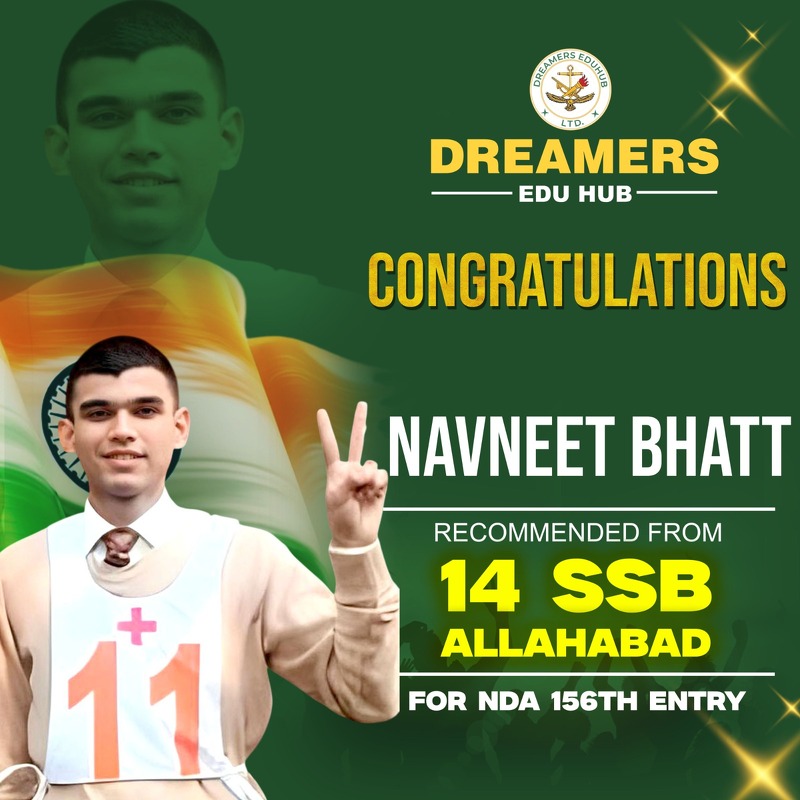

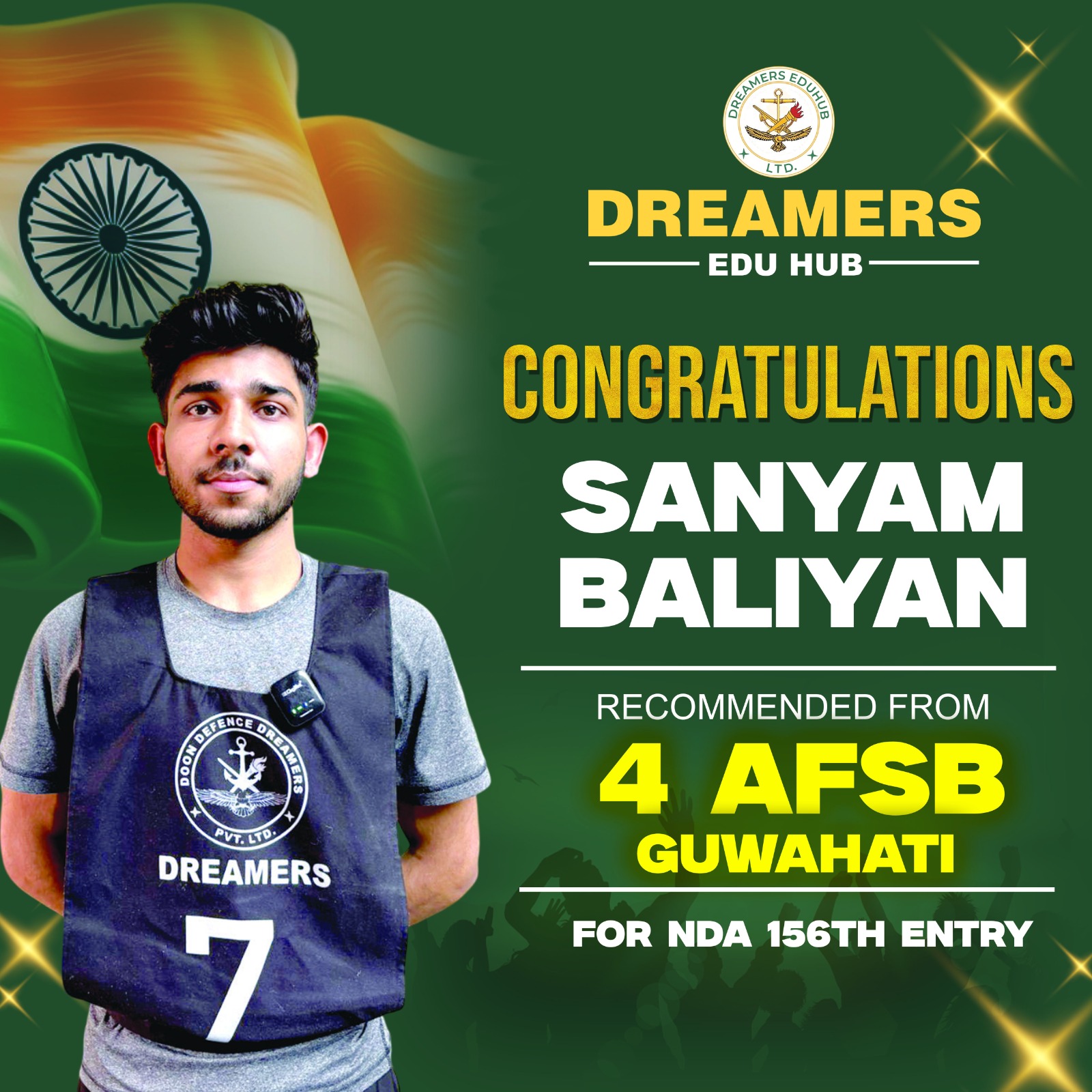

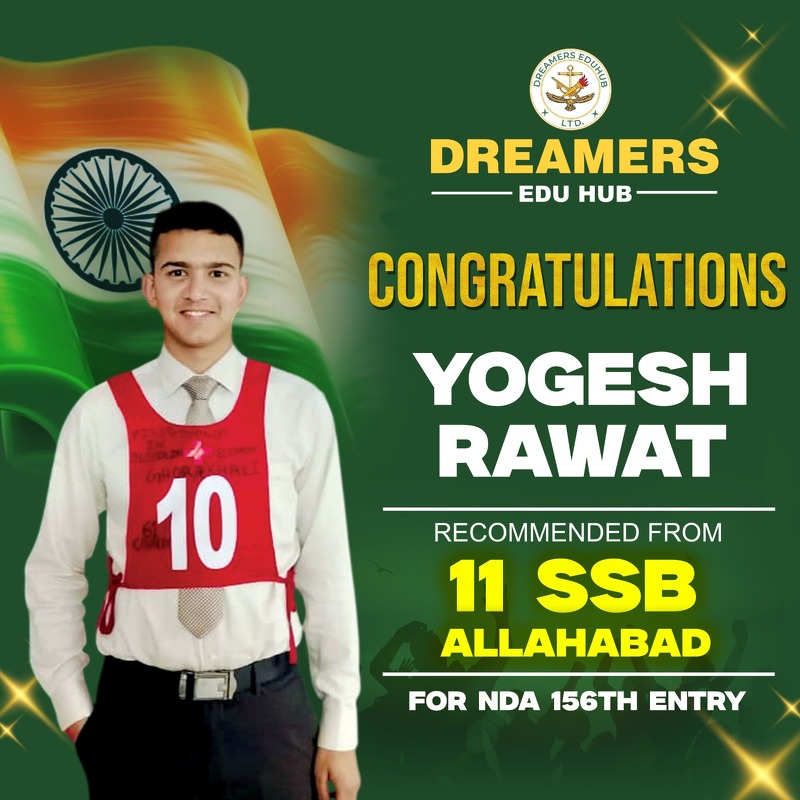


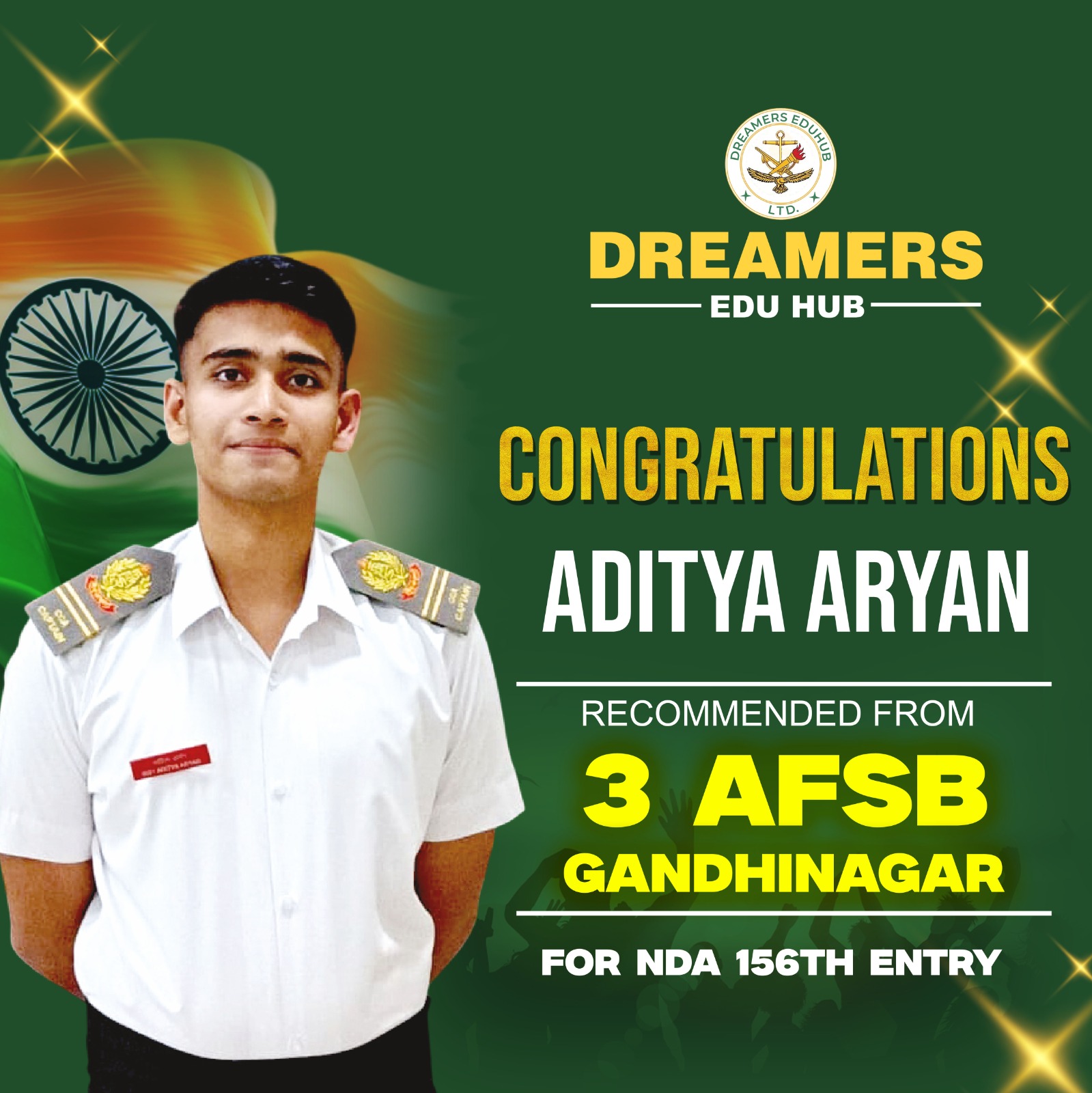
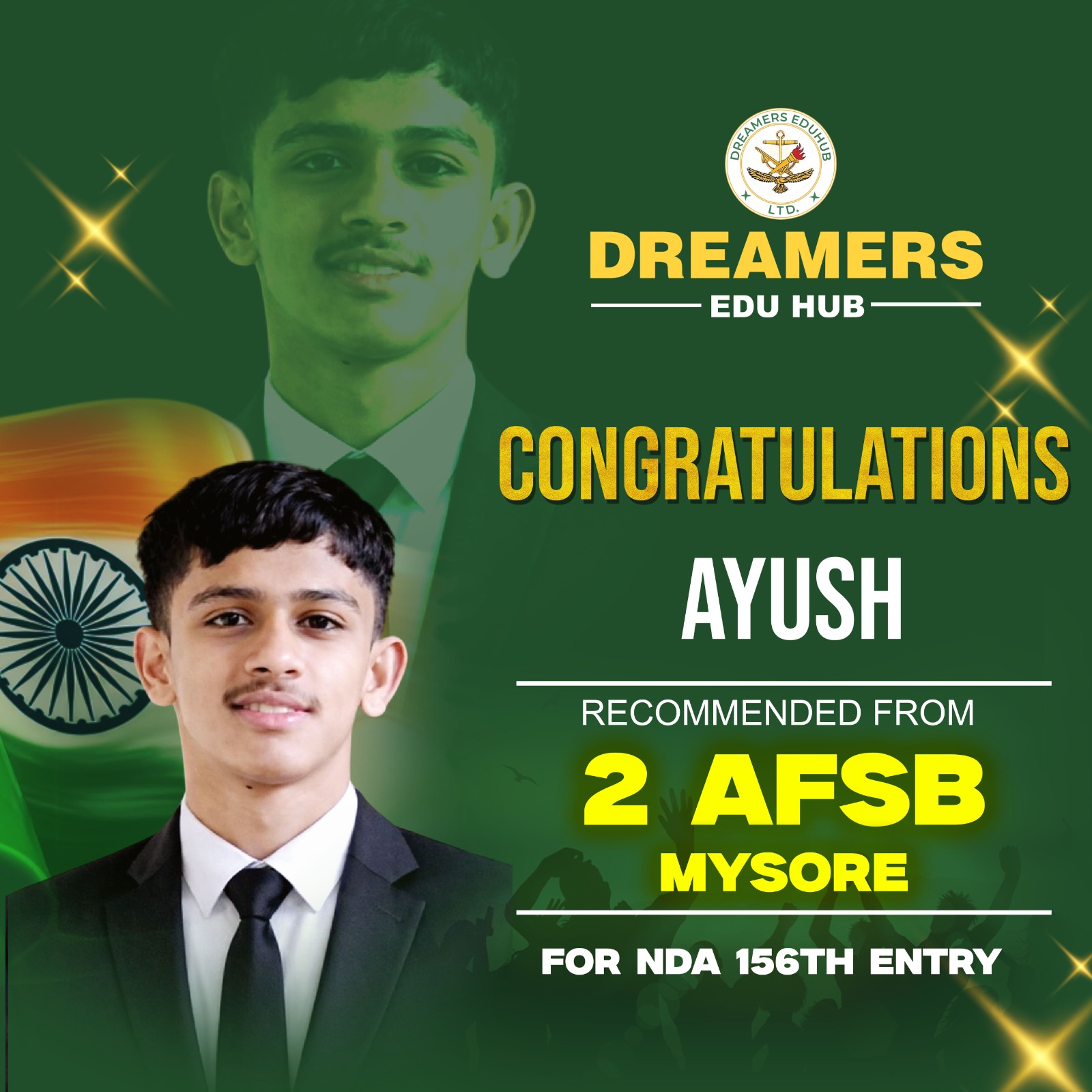
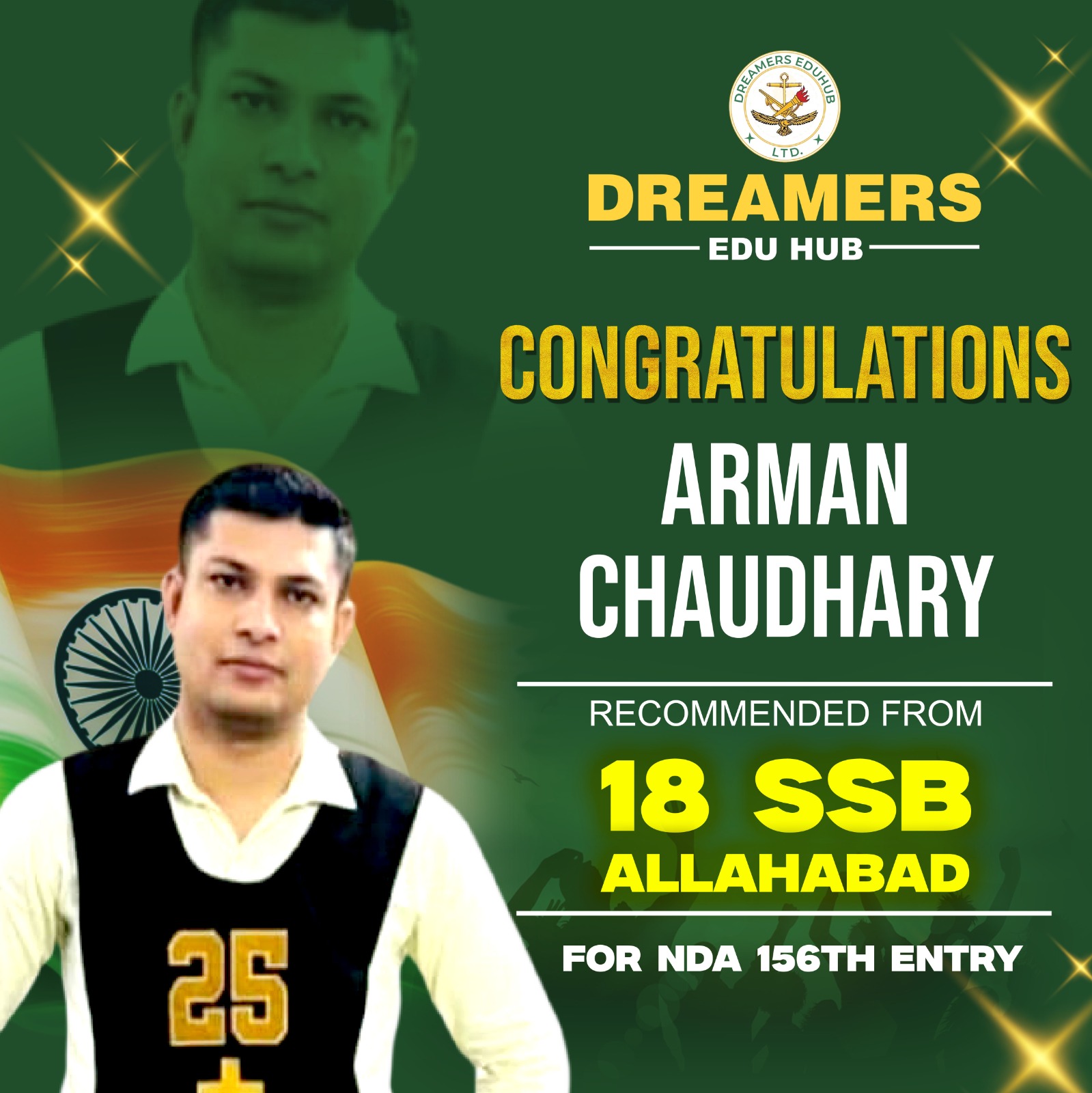
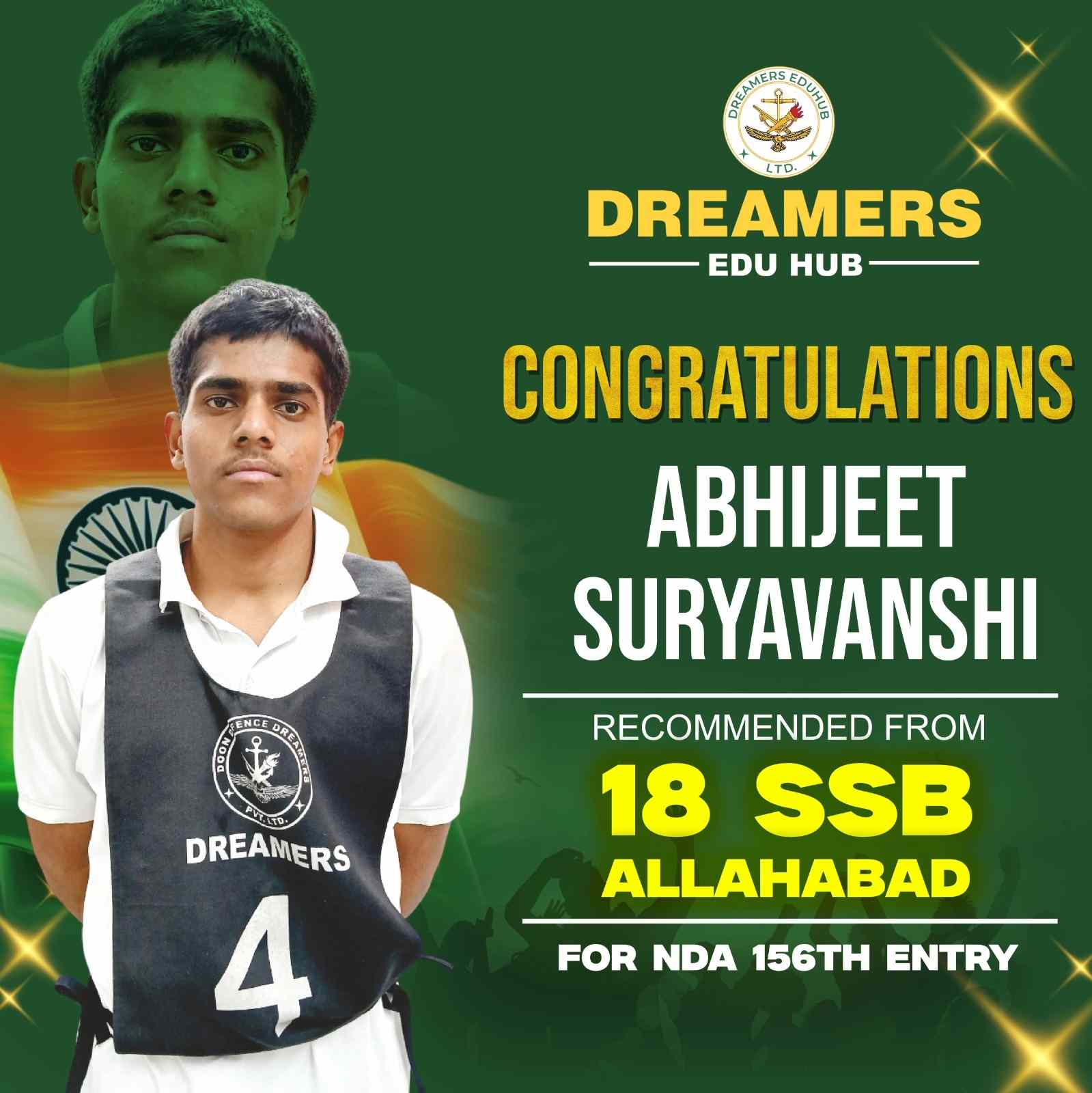
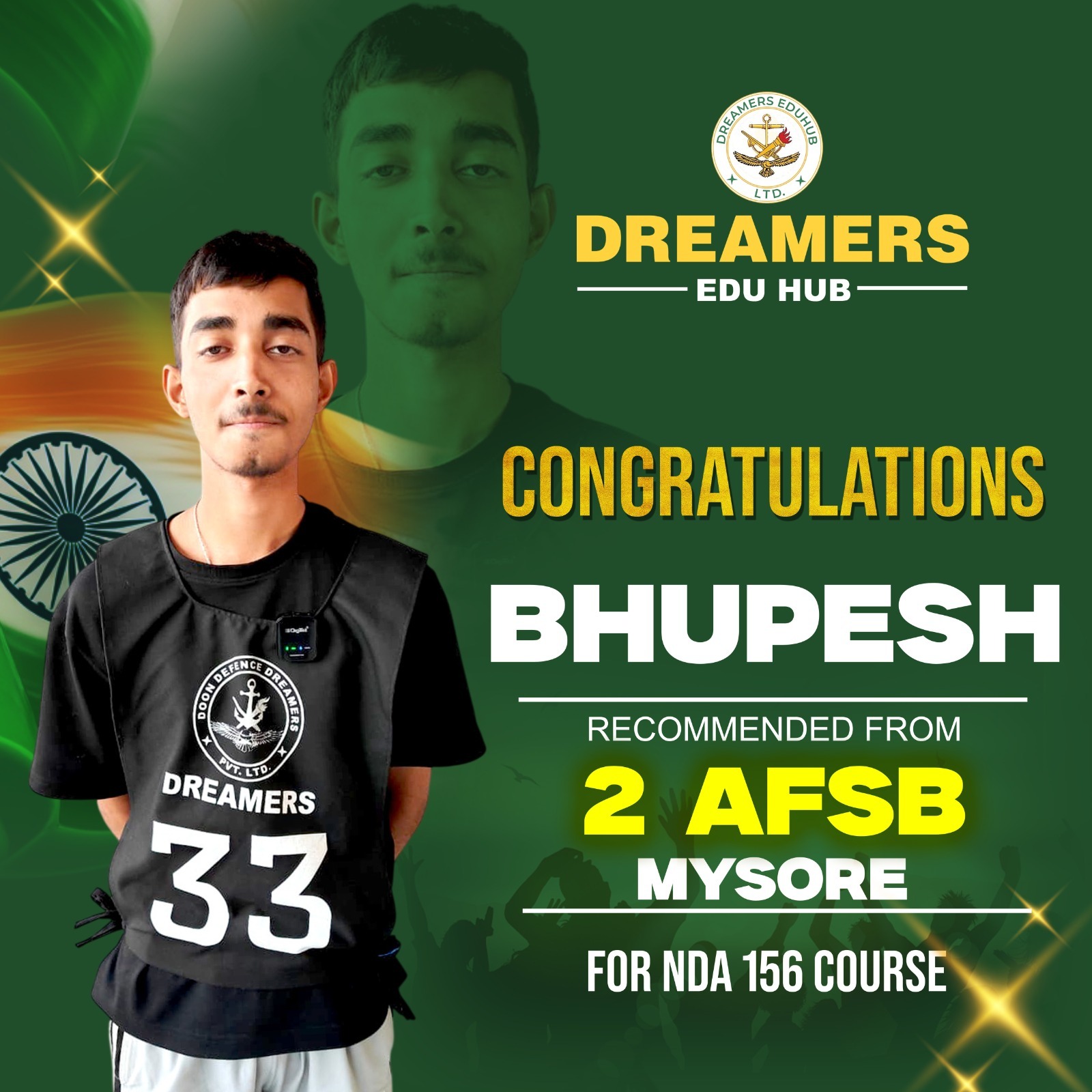
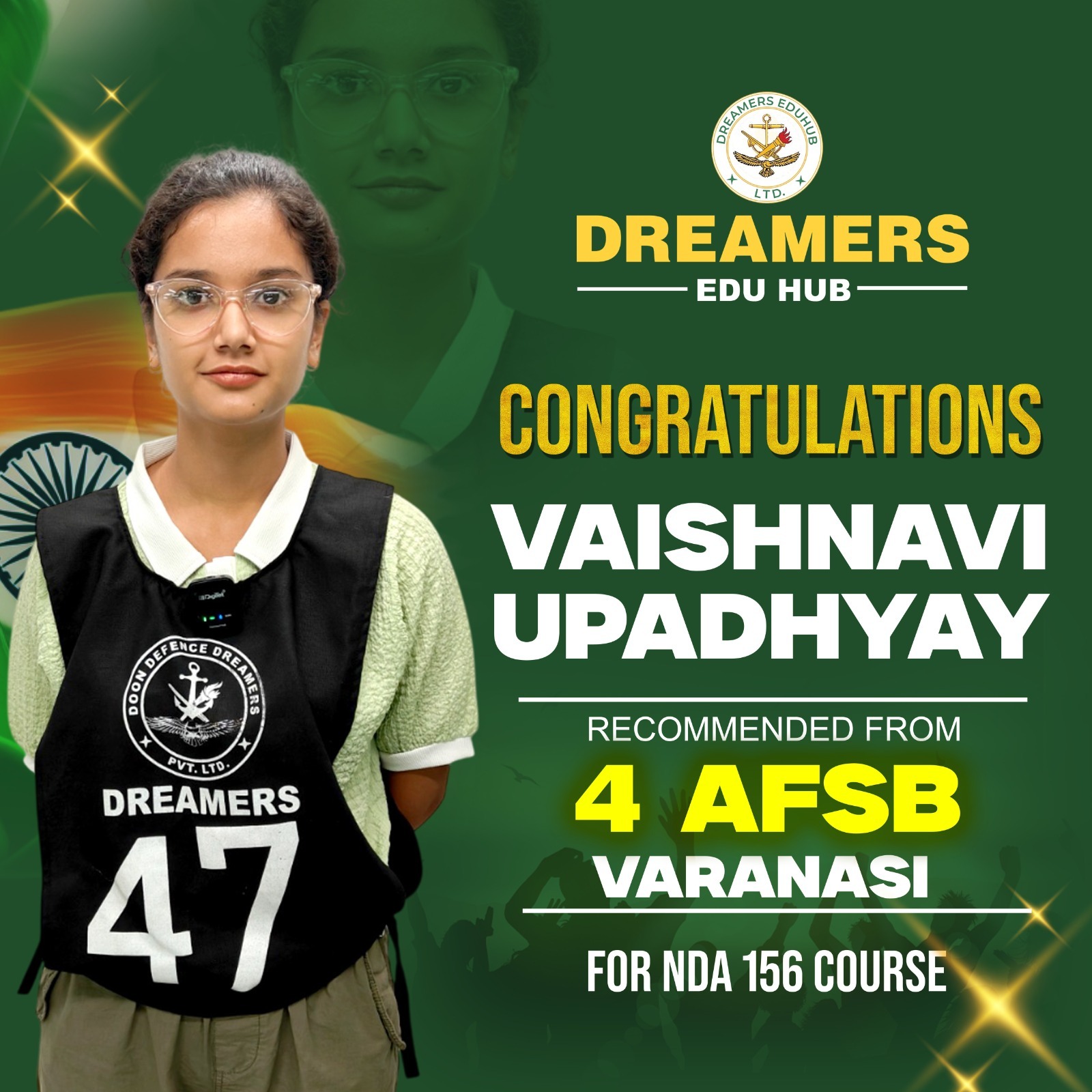

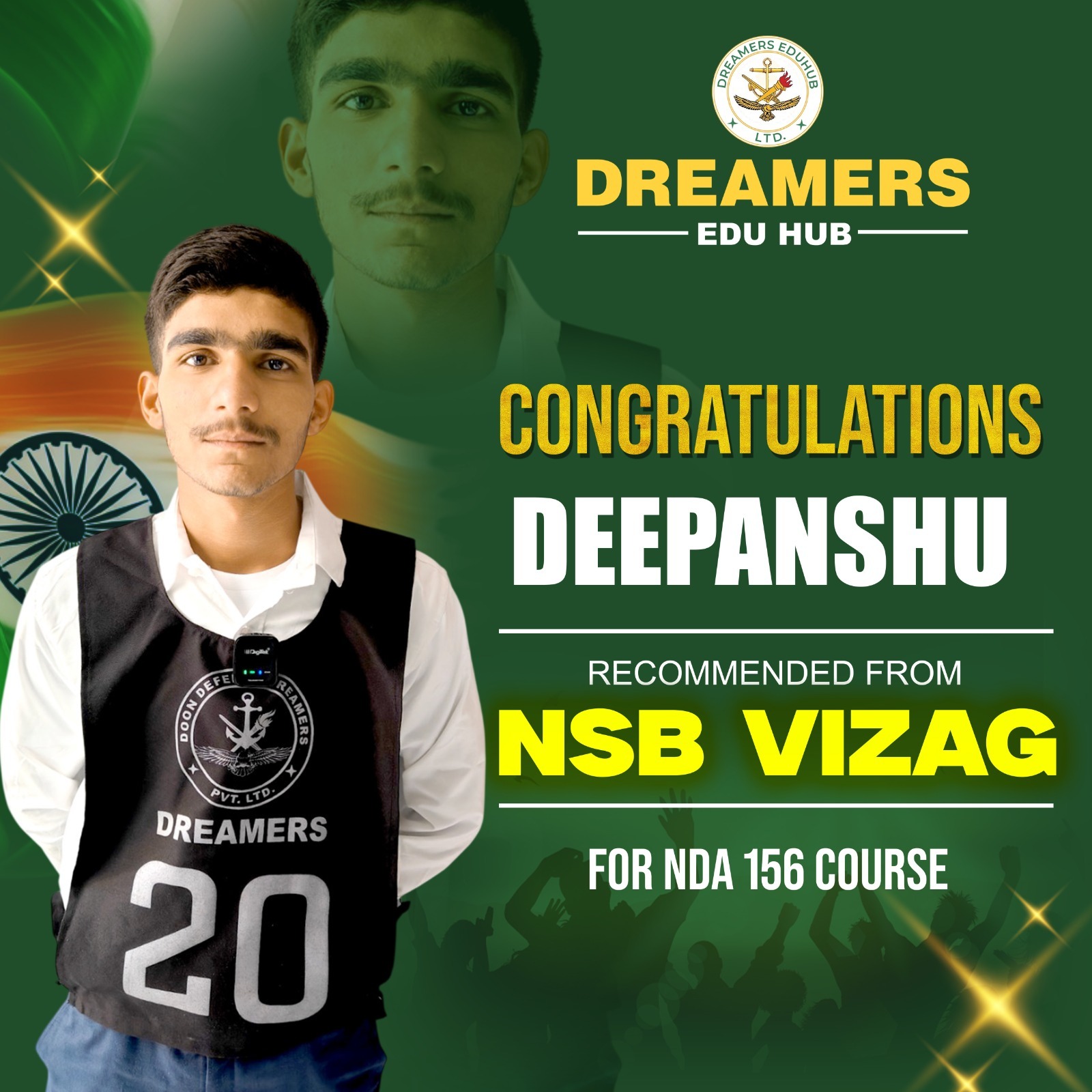
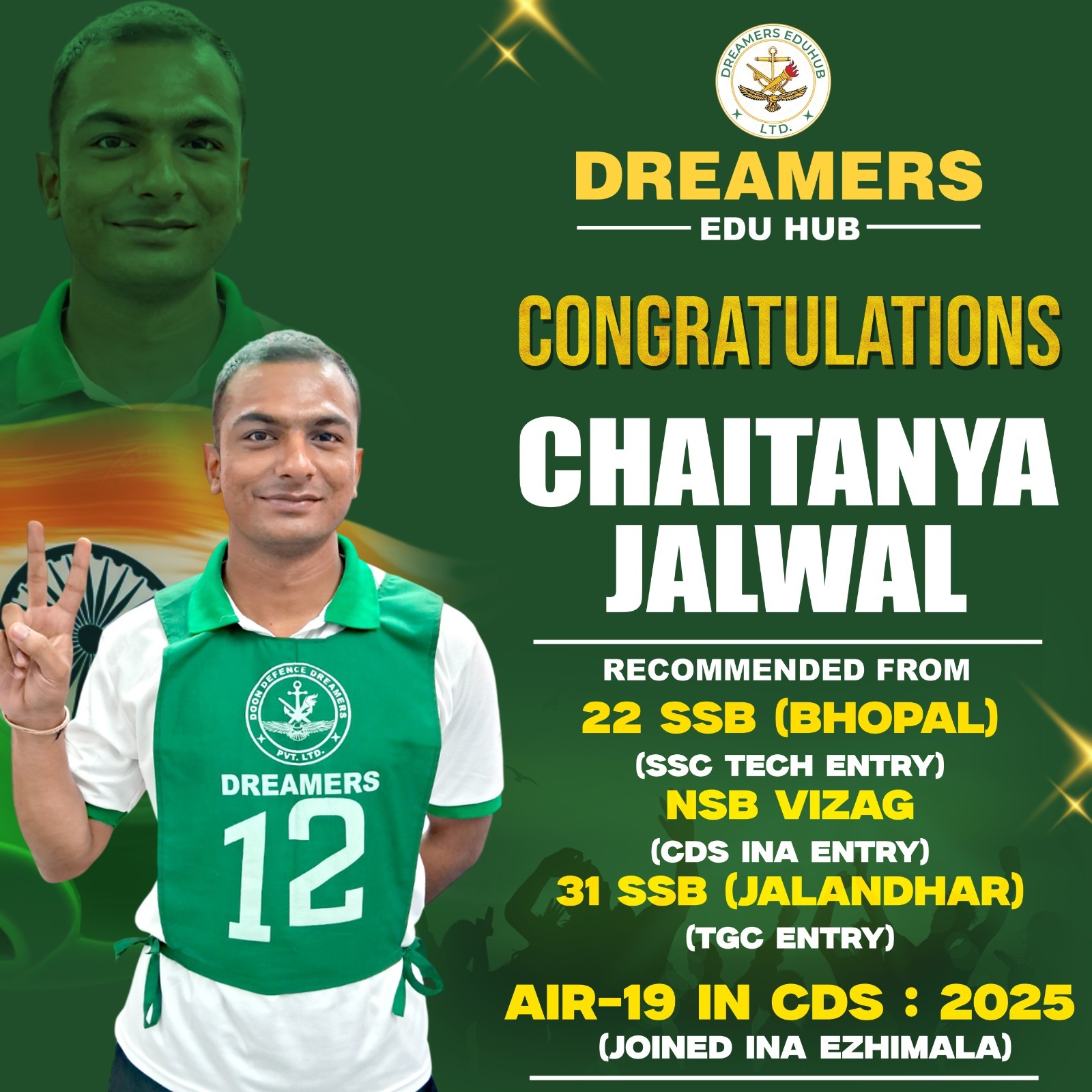
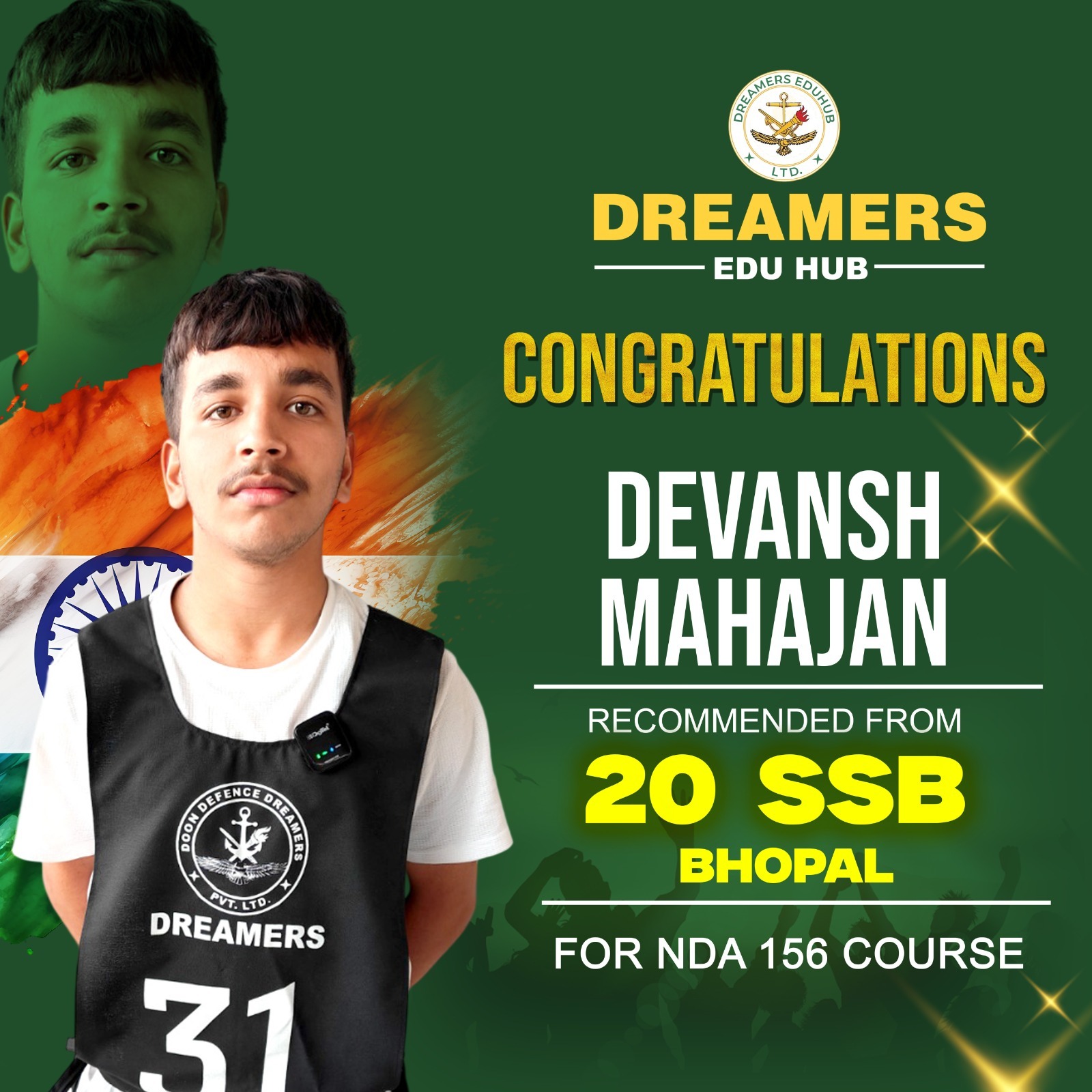
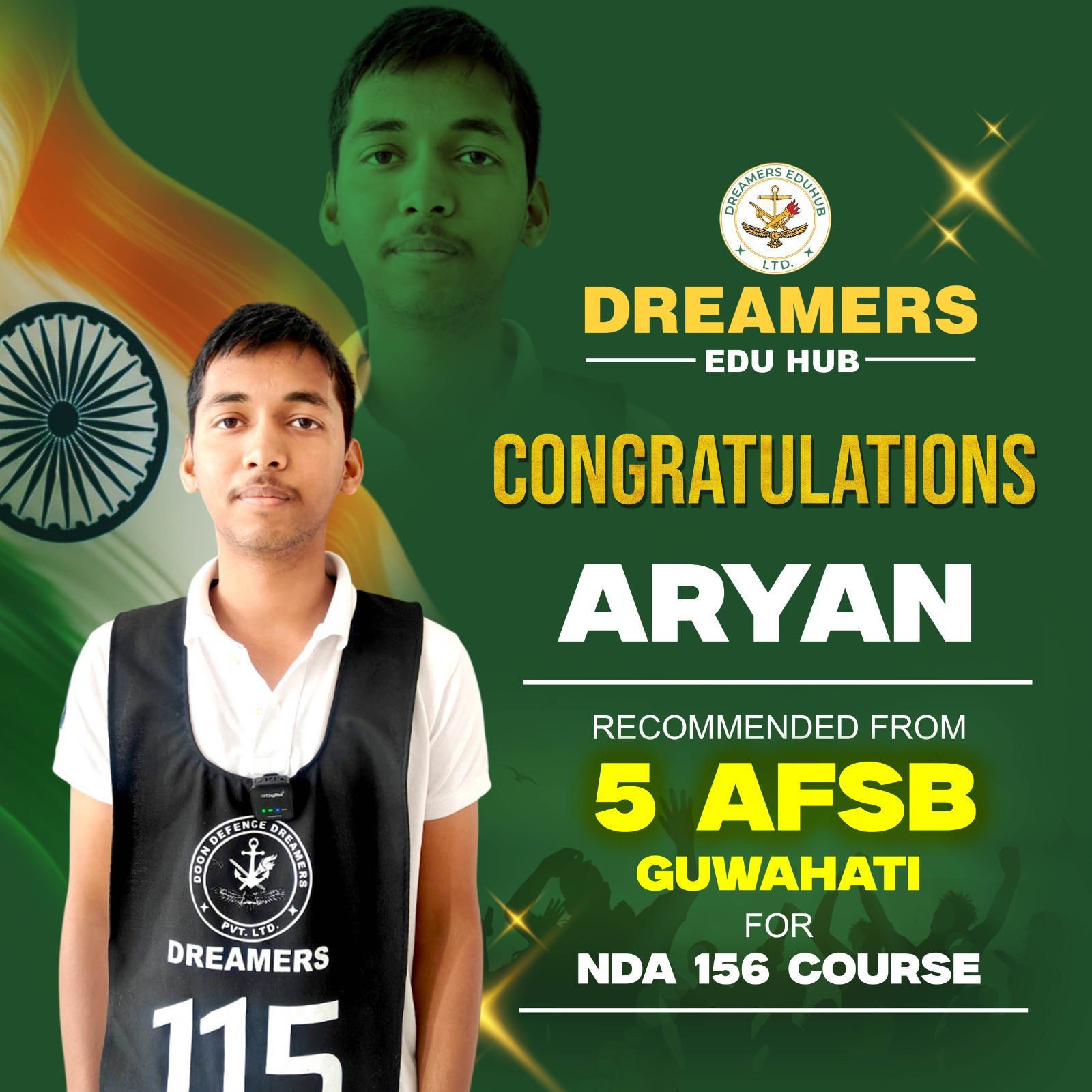
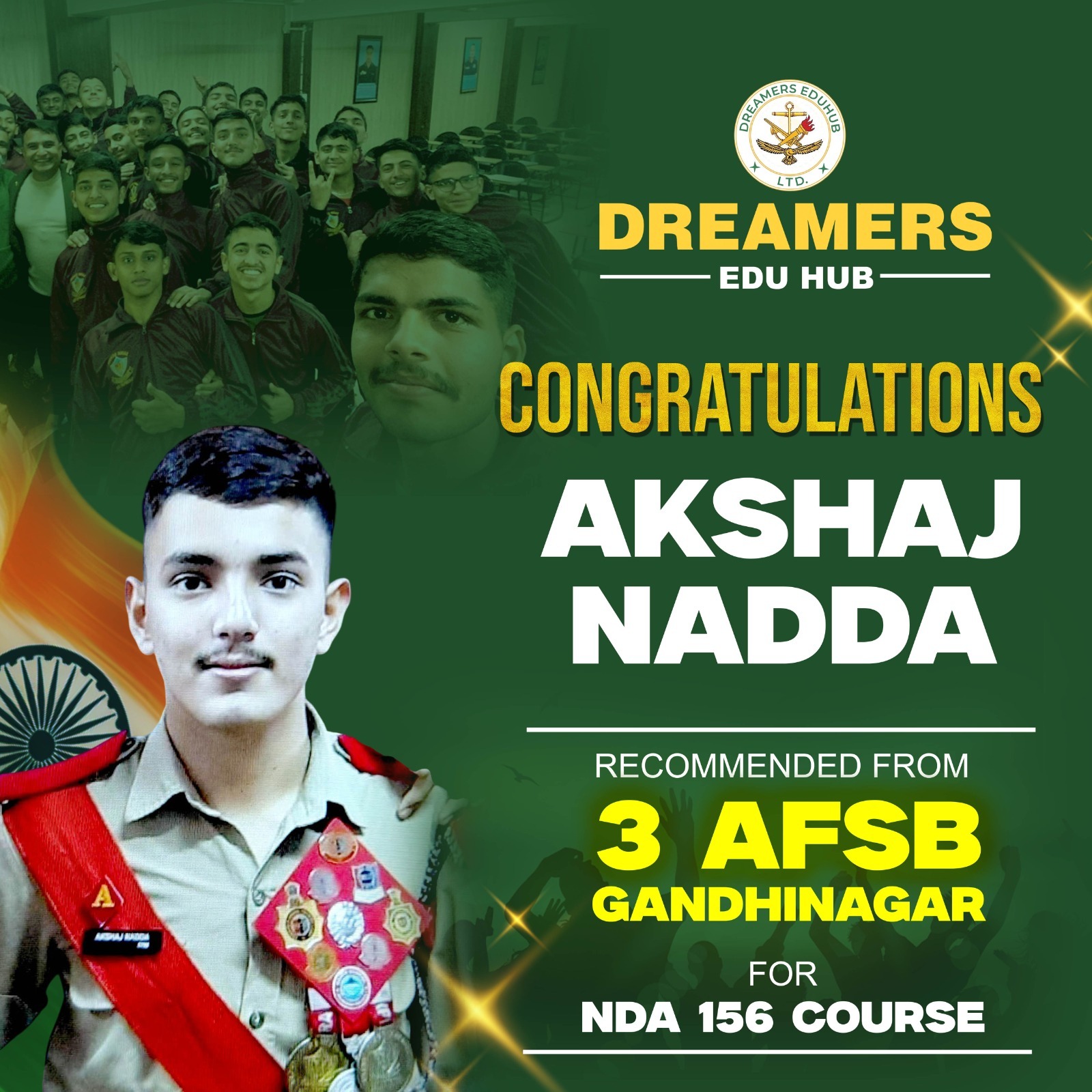
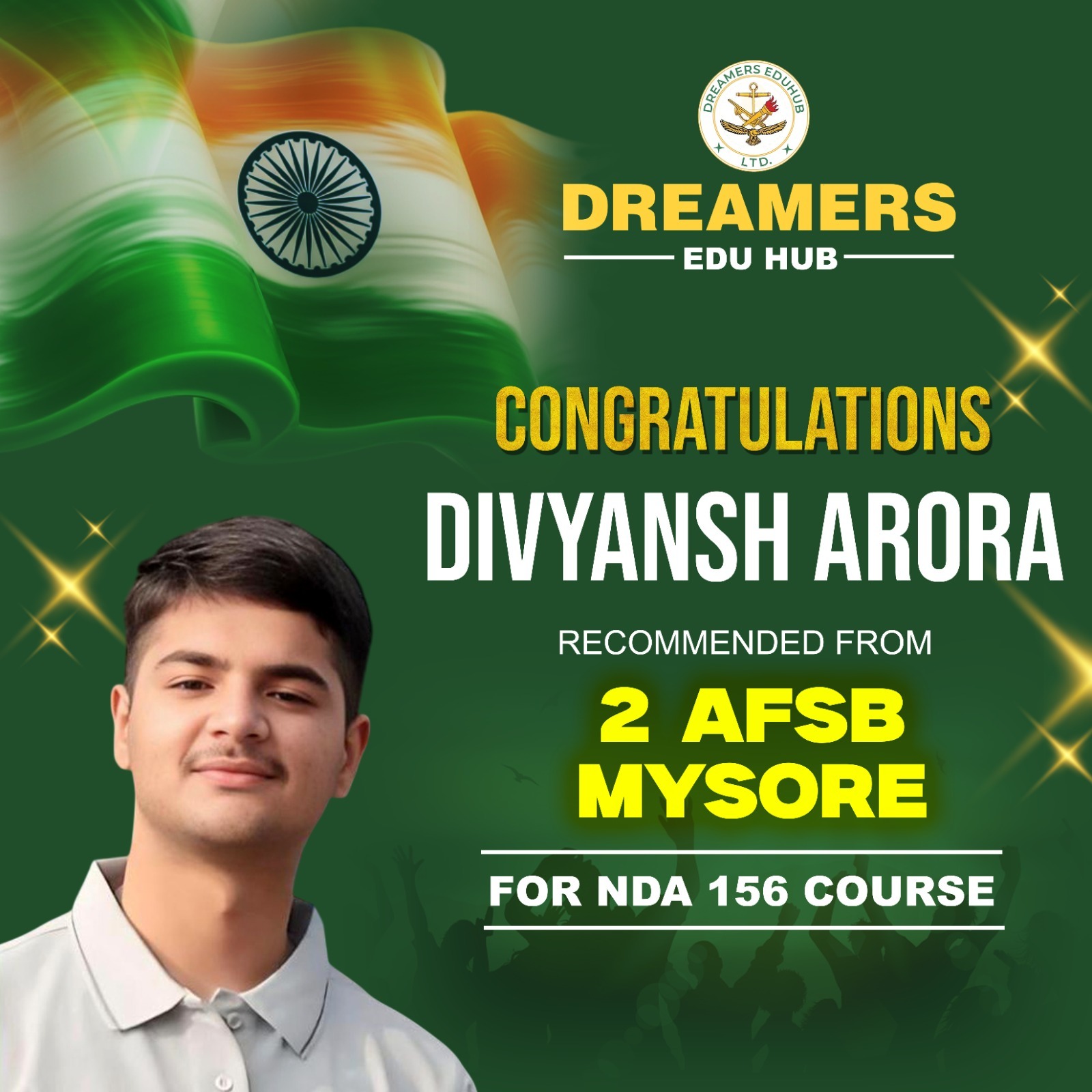
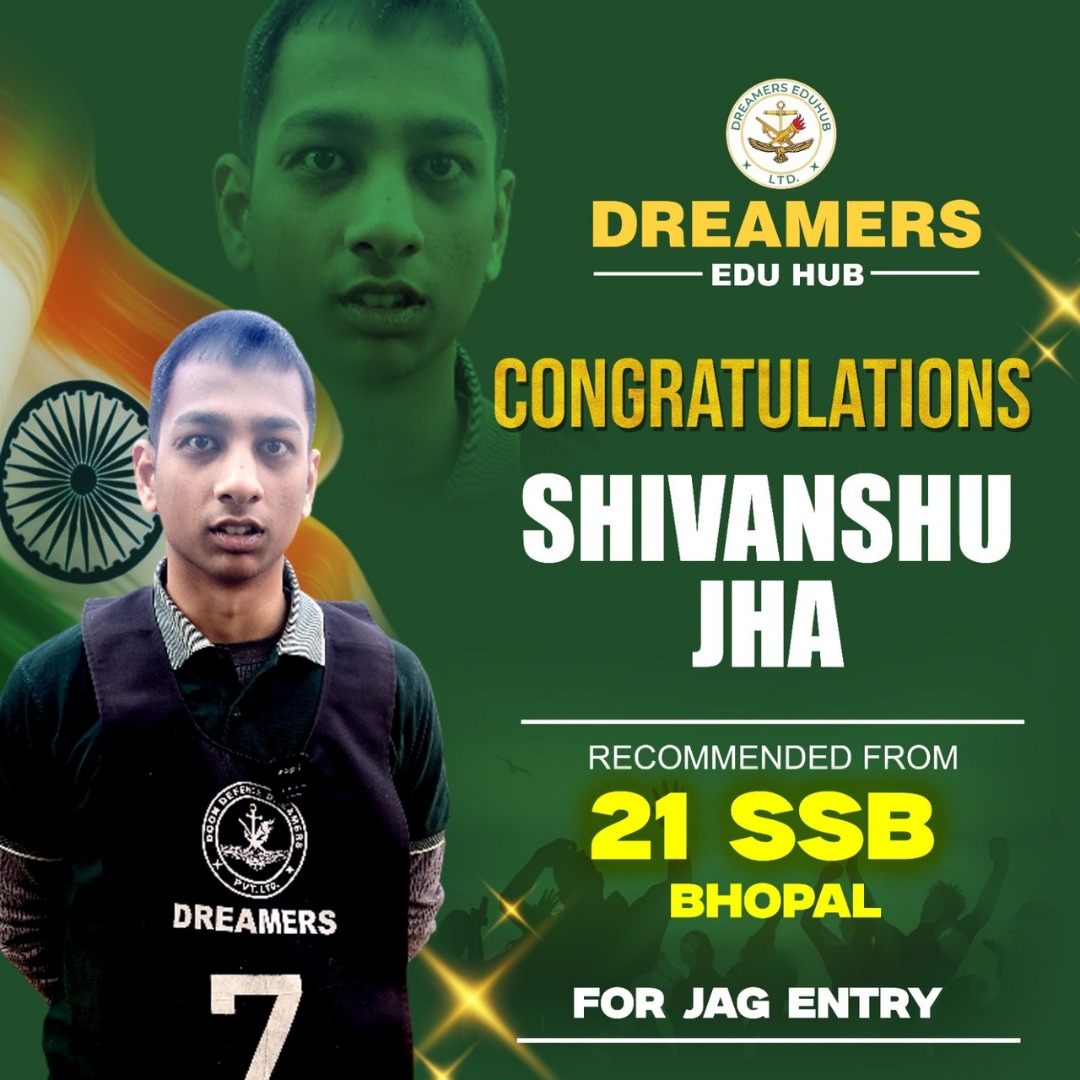
























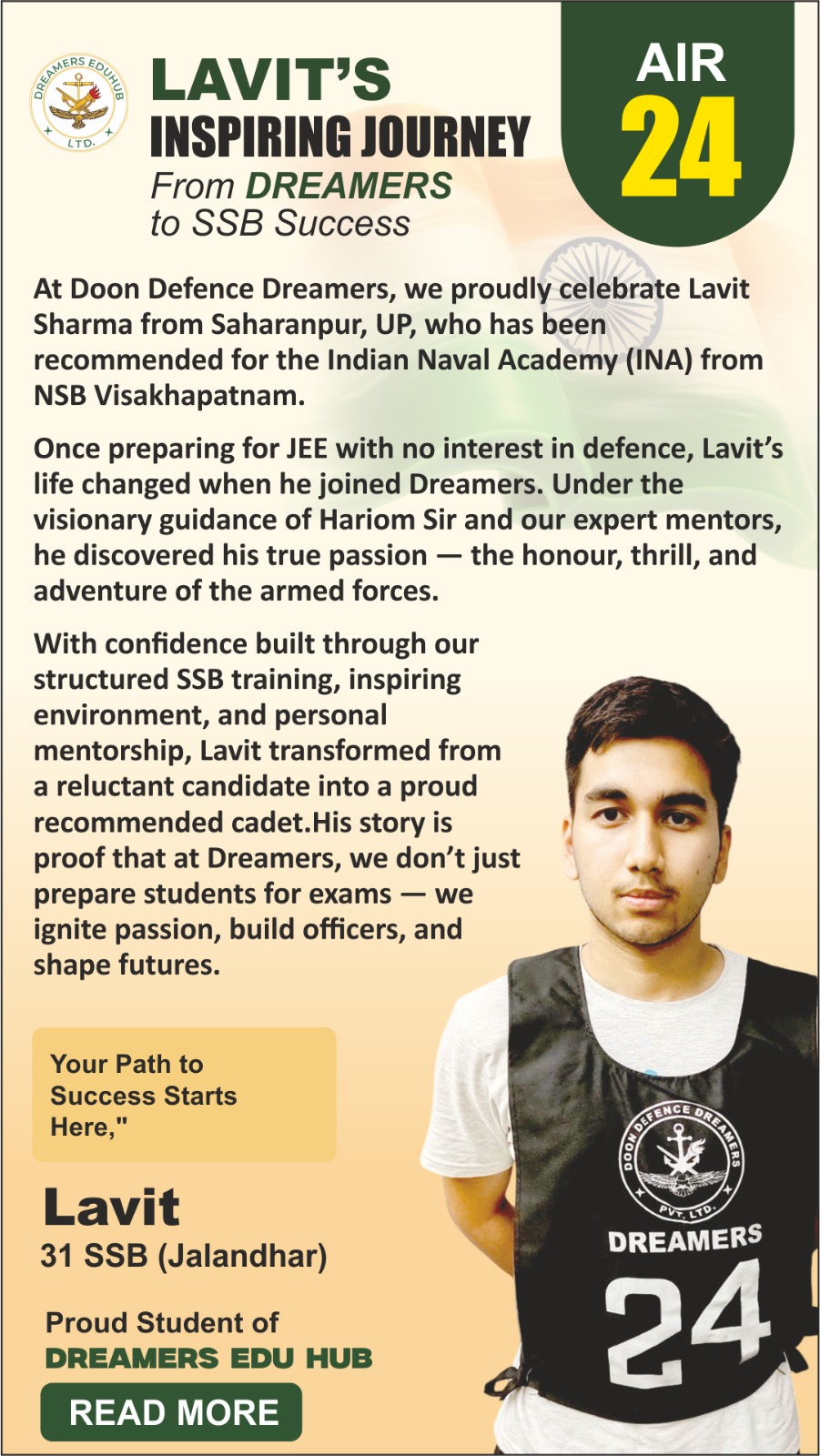
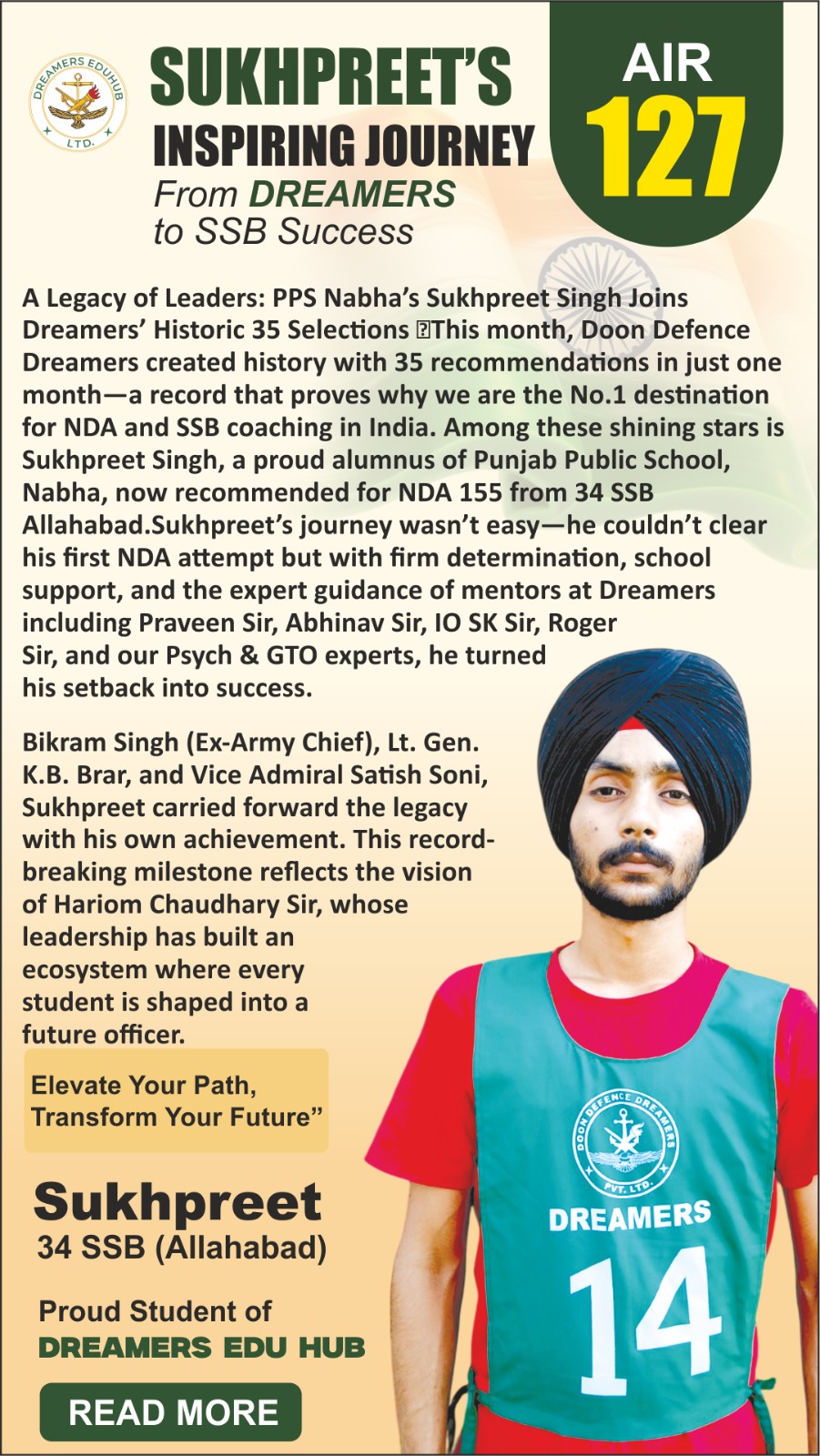
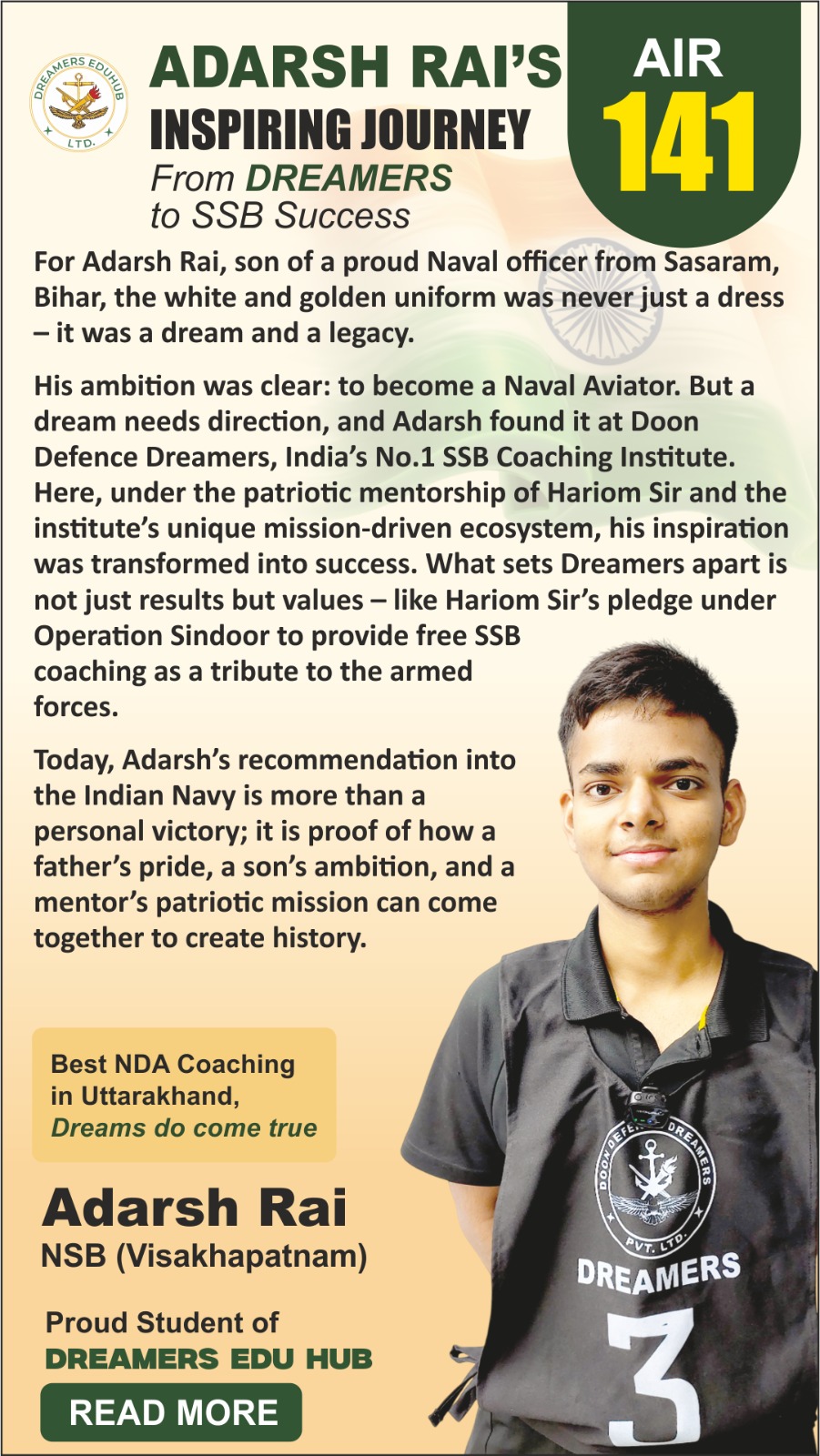
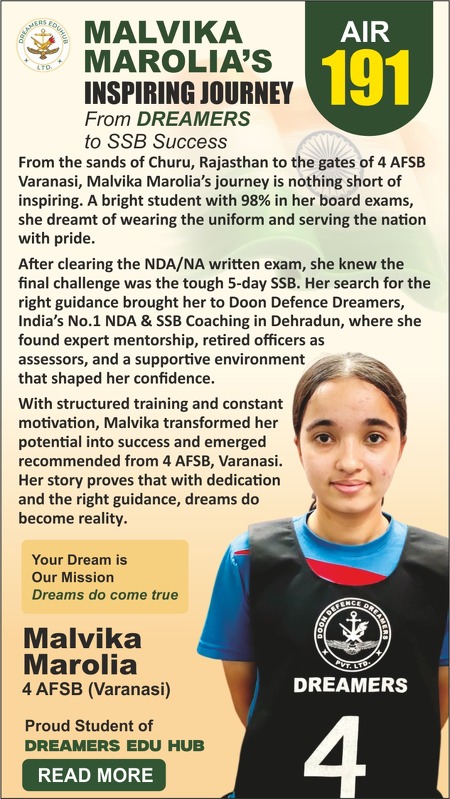
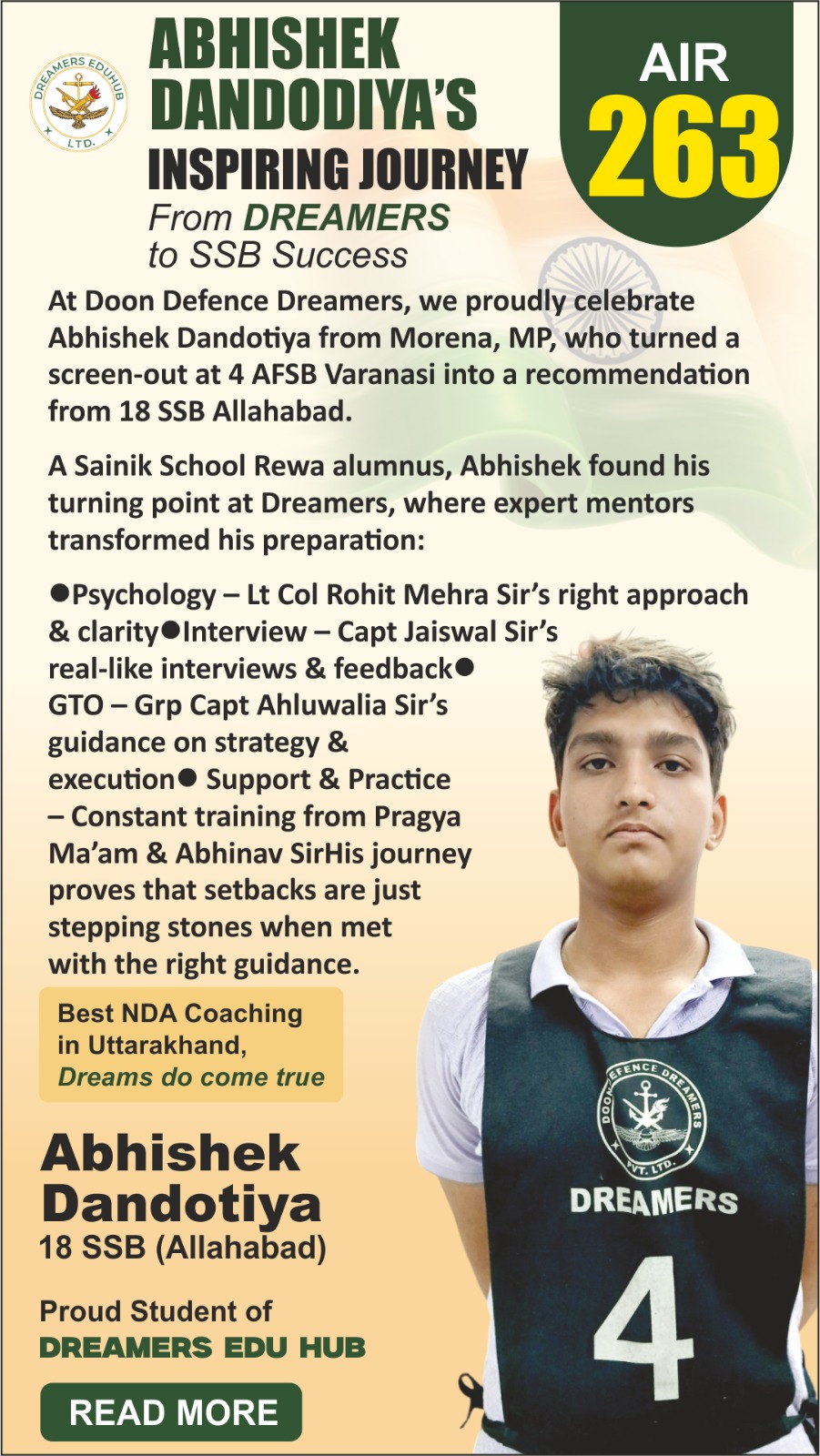
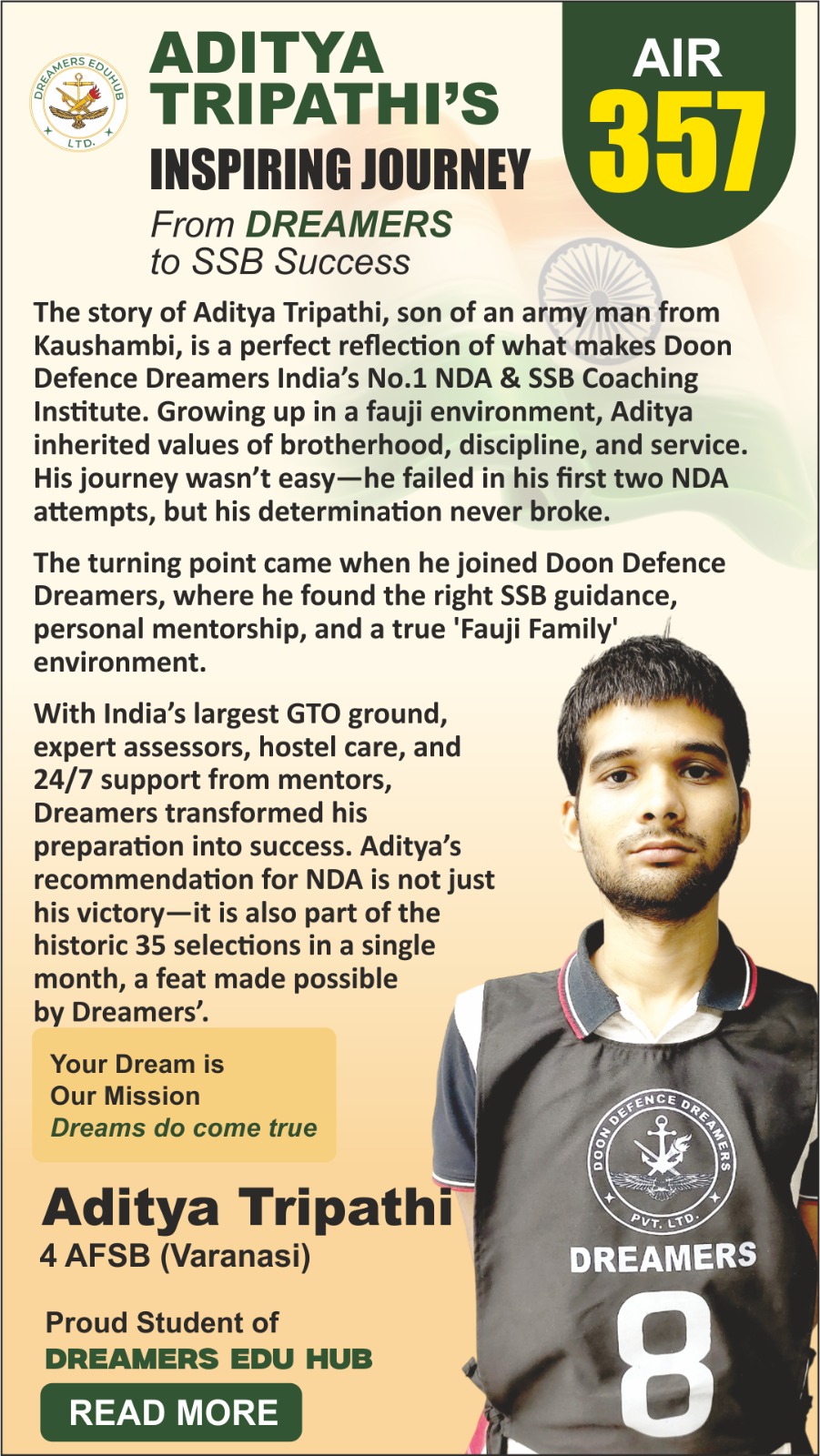
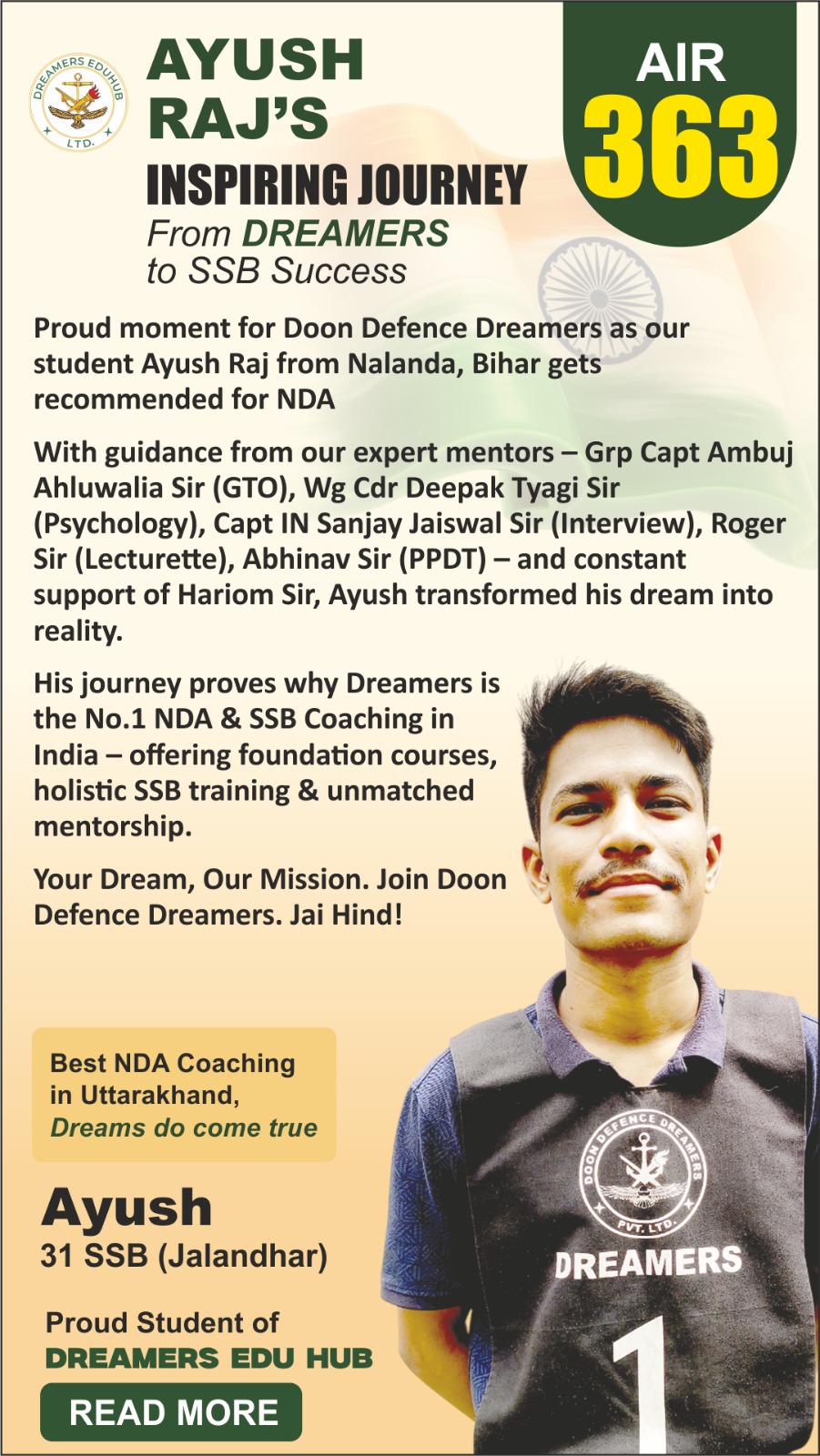
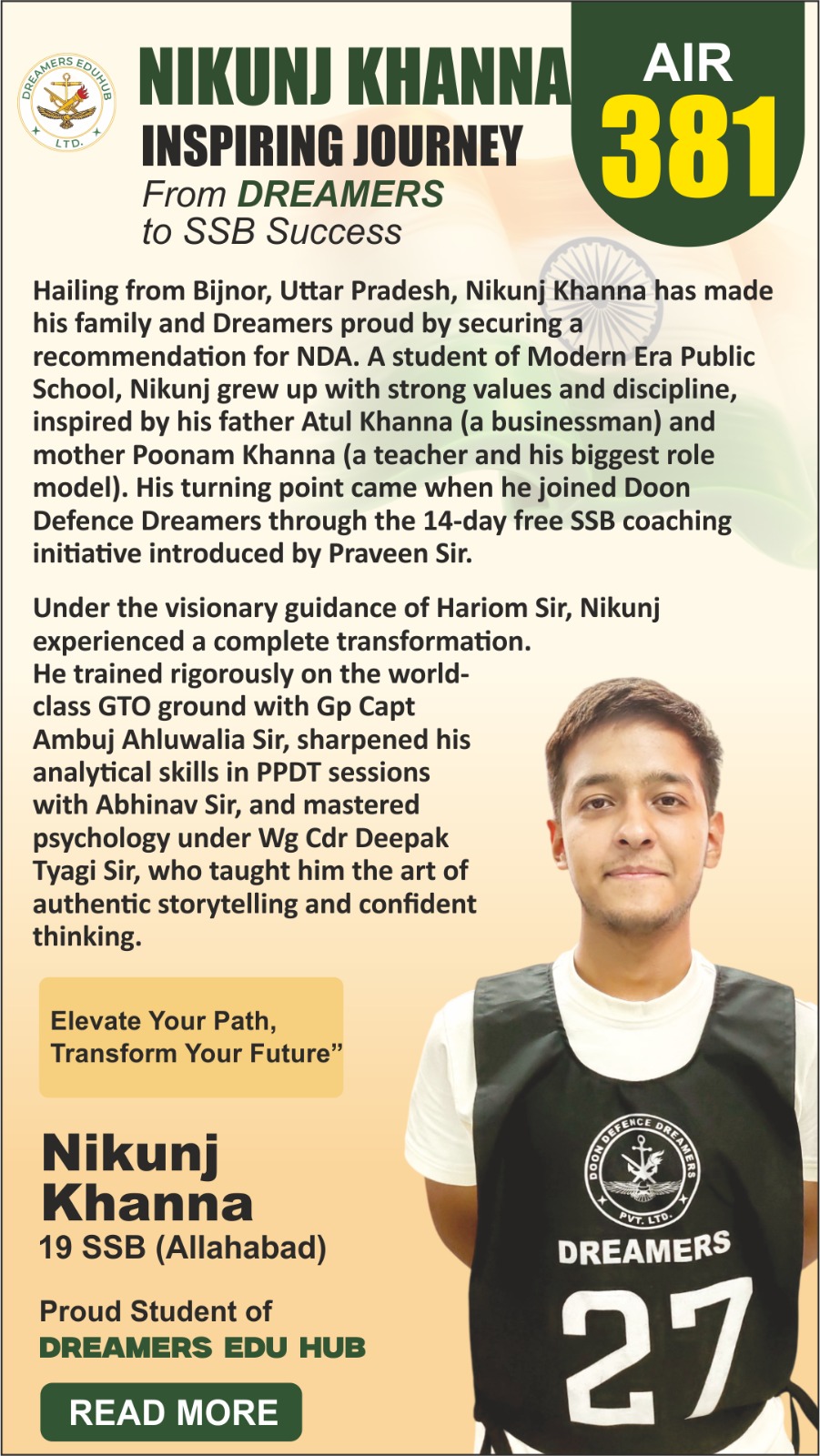












Choose offline classroom coaching for NDA/CDS/AFCAT/CAPF/MNS. Concept lectures, daily practice, OMR mocks, doubt counters, library, PT & SSB drills—everything under one roof. Safe campus, progress tracking, scholarships. Join the Best NDA Coaching In Dehradun today. Proven results & trust.
Achieve more with Doon Defence Dreamers
“Ab Defence ki tayari Ghar se bhi..”
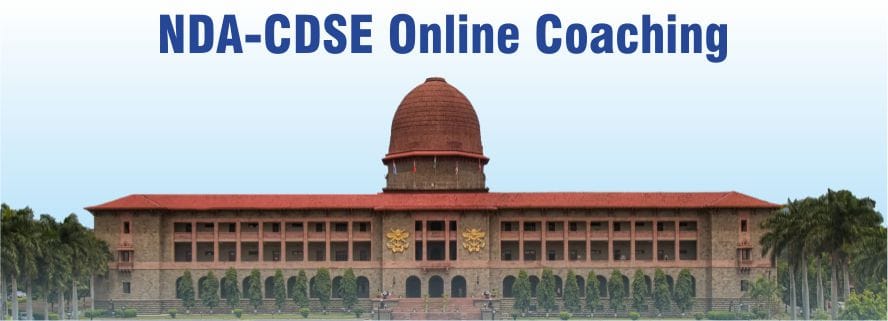
NDA – CDSE
Online Coaching
Learn More >>
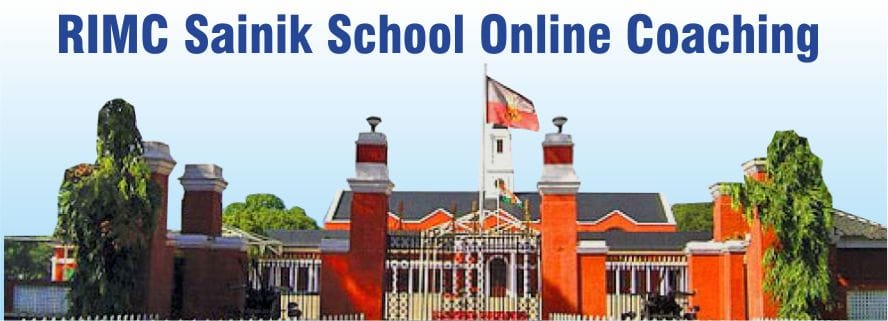
RIMC/Sainik School Online Coaching
Learn More >>

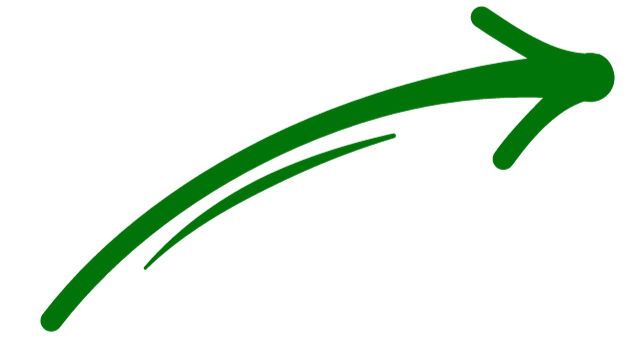

Address: Doon Defence Dreamers, JK Tower Sahastradhara
Road Dehradun, Uttarakhand 248001
Call: +91-9429691488 +91-9429691072
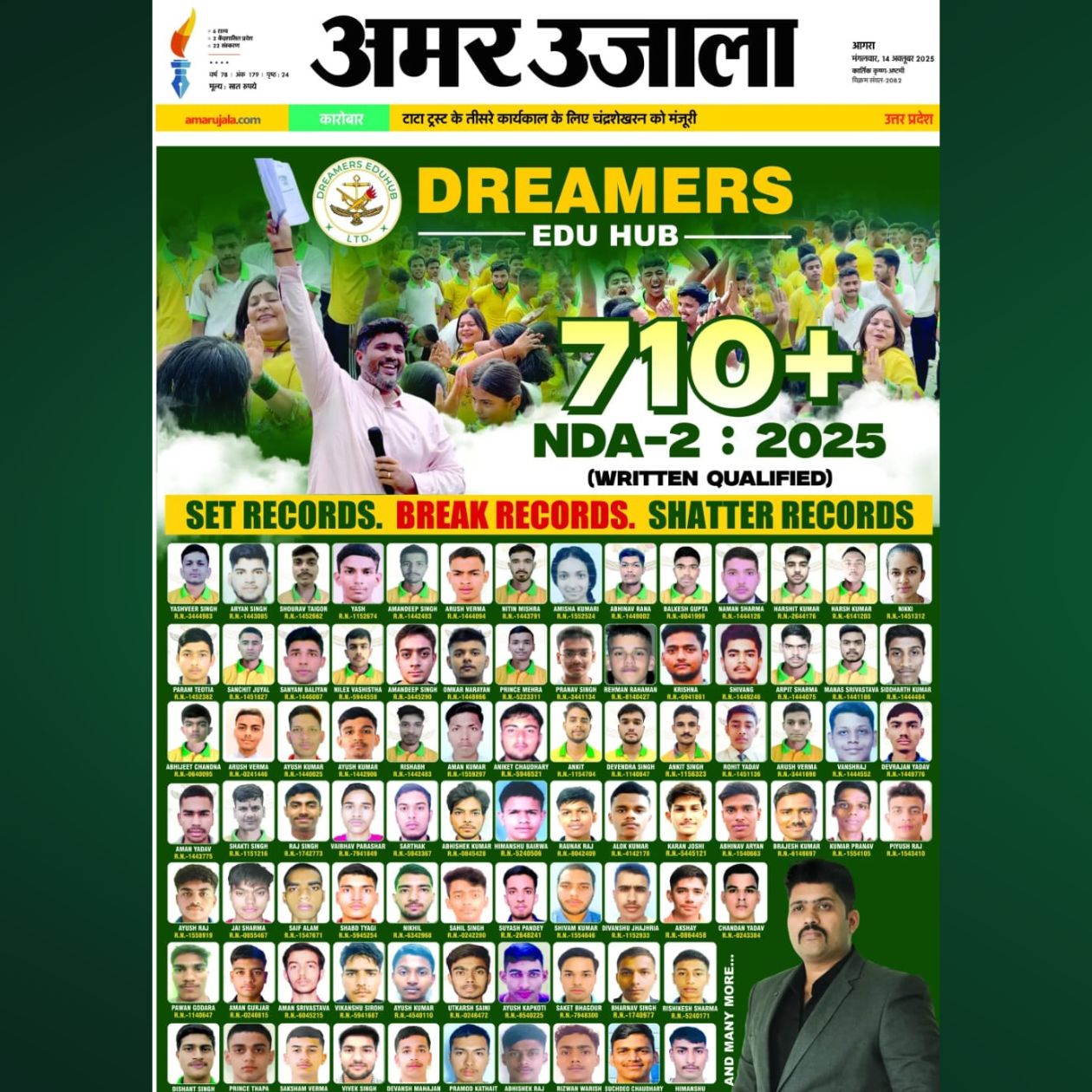
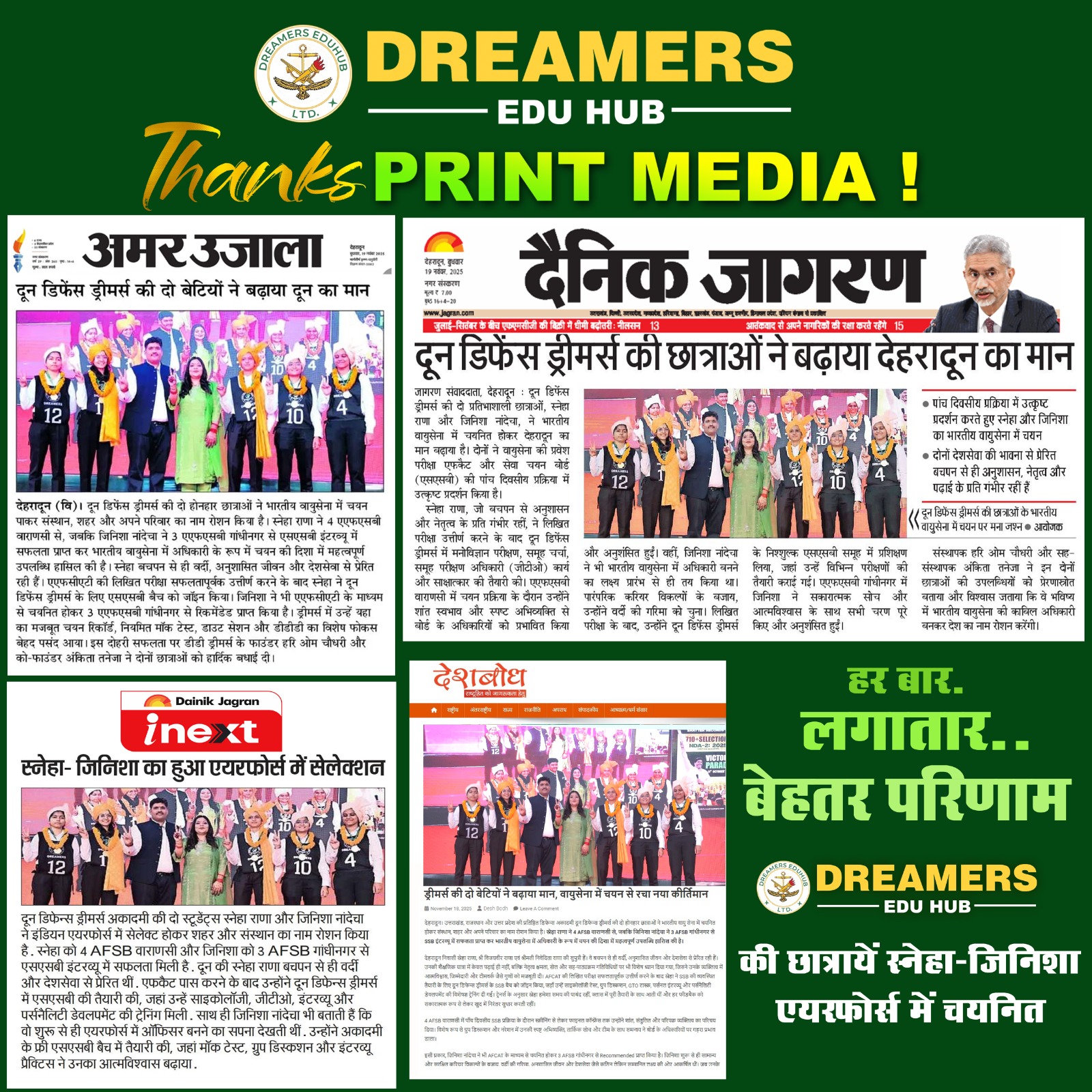
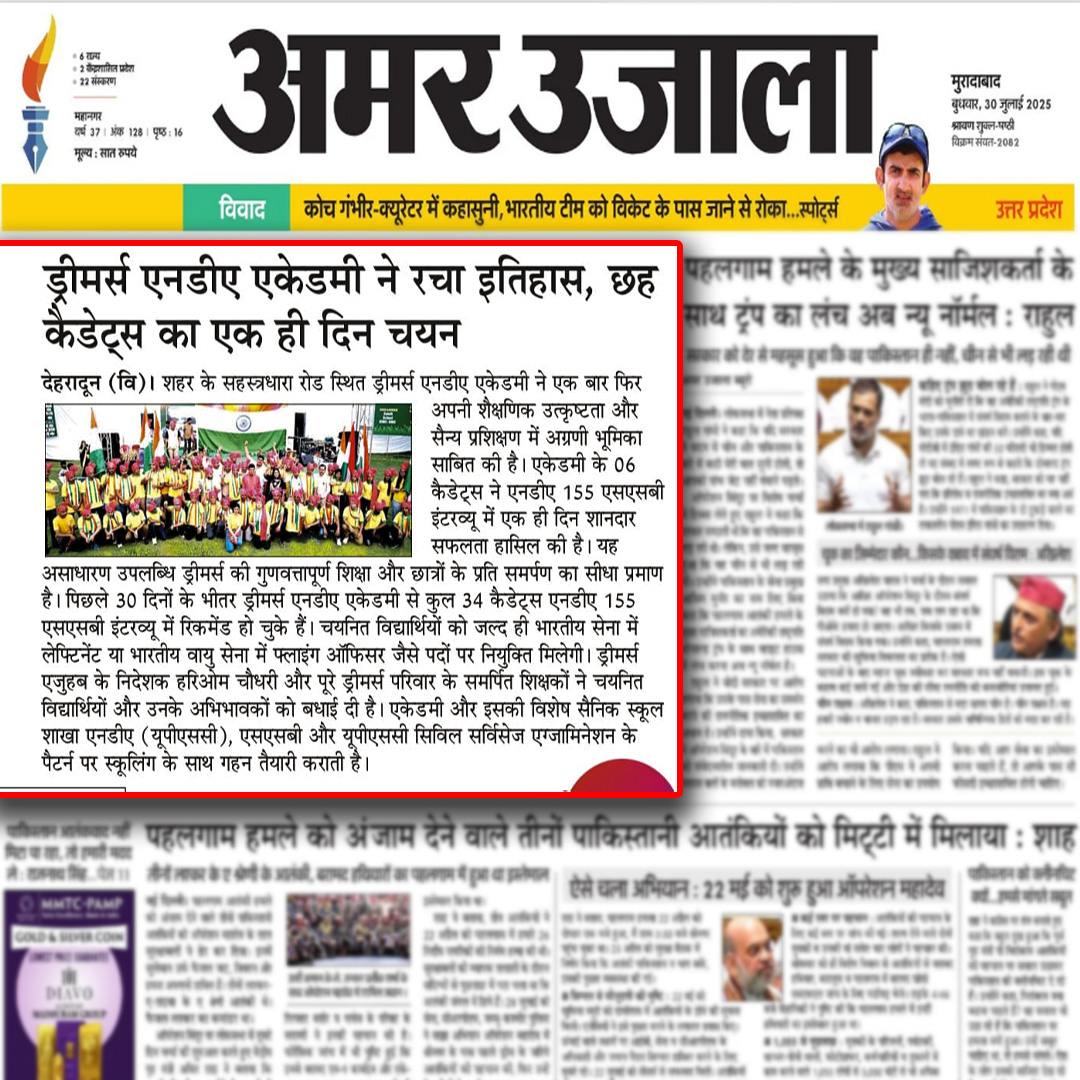
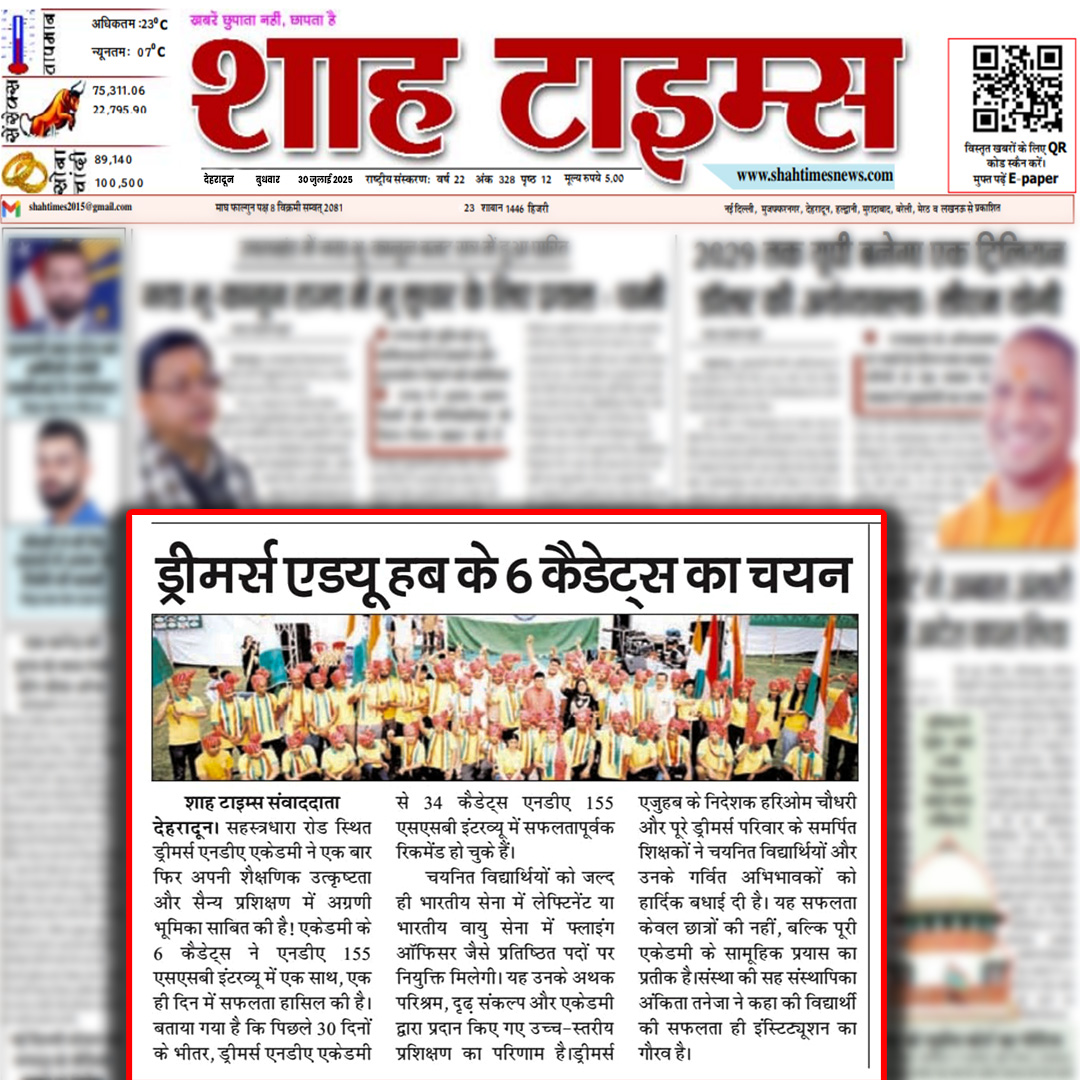
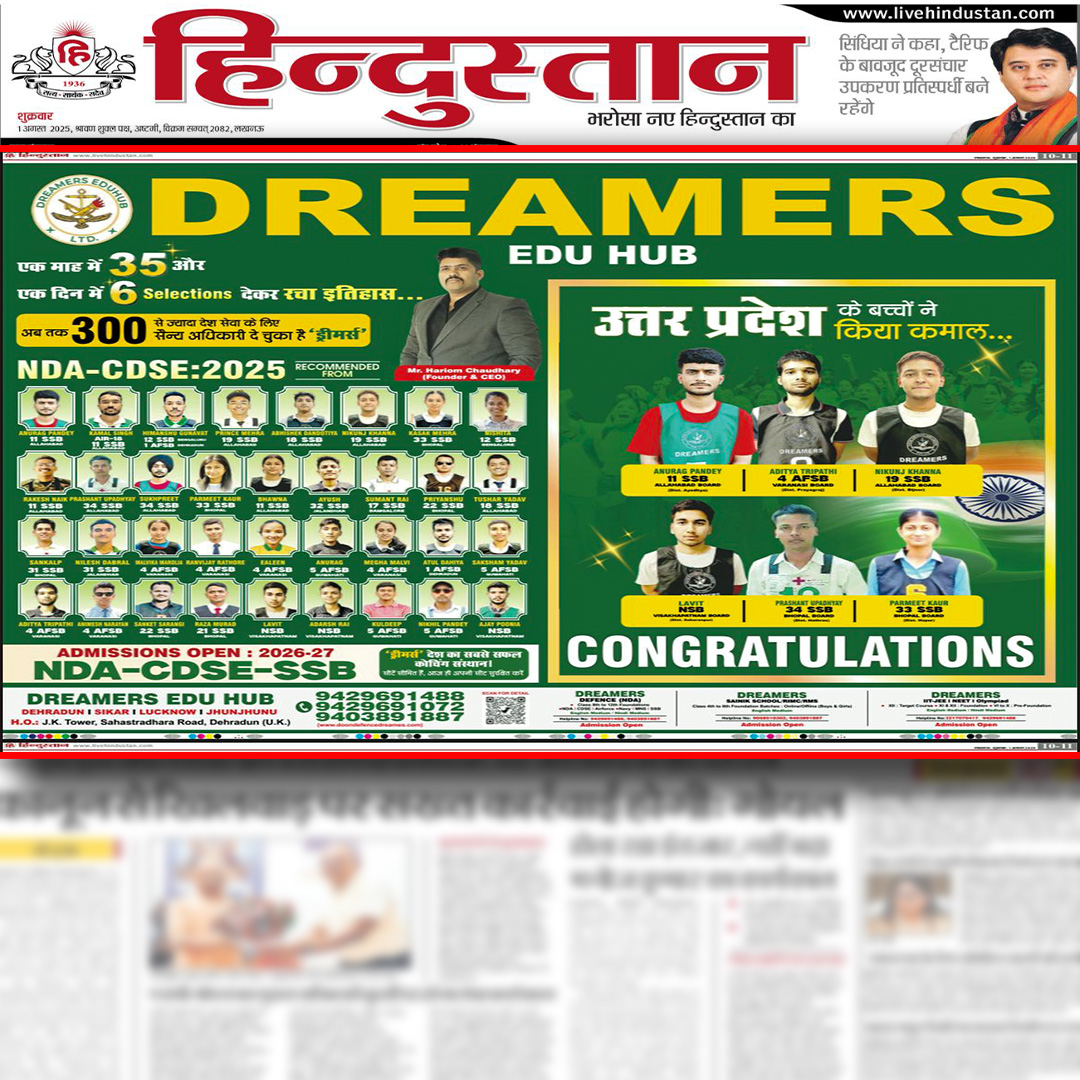
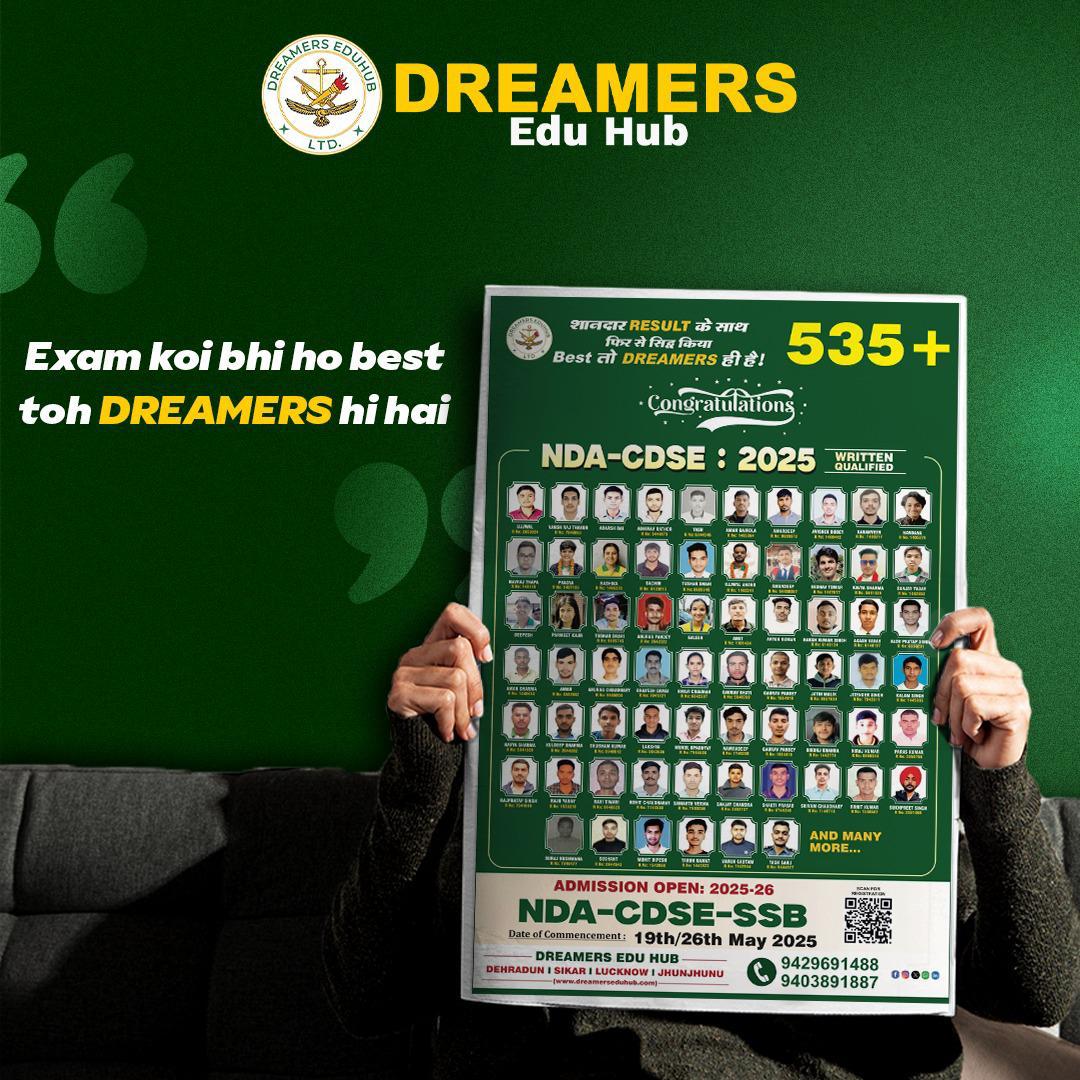

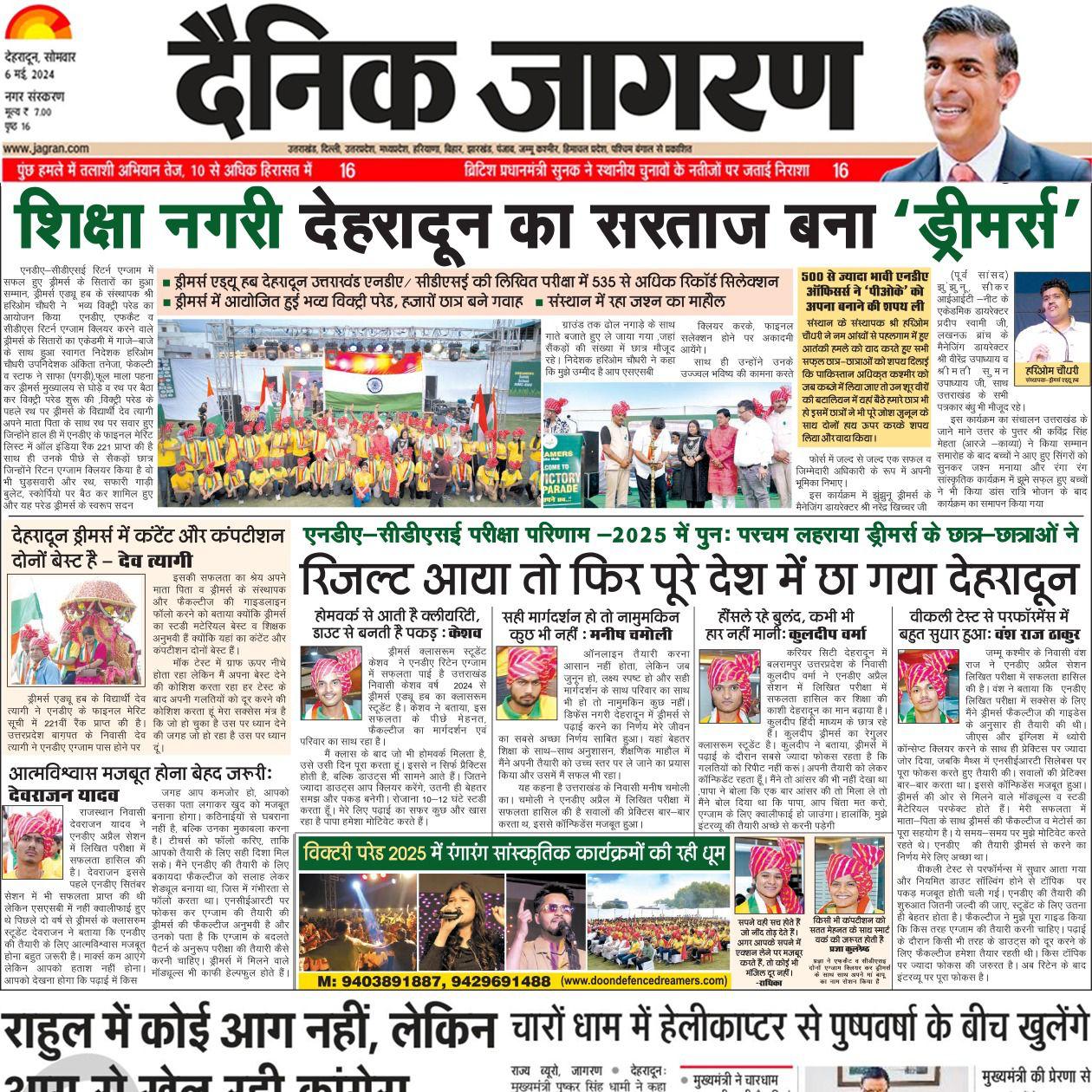
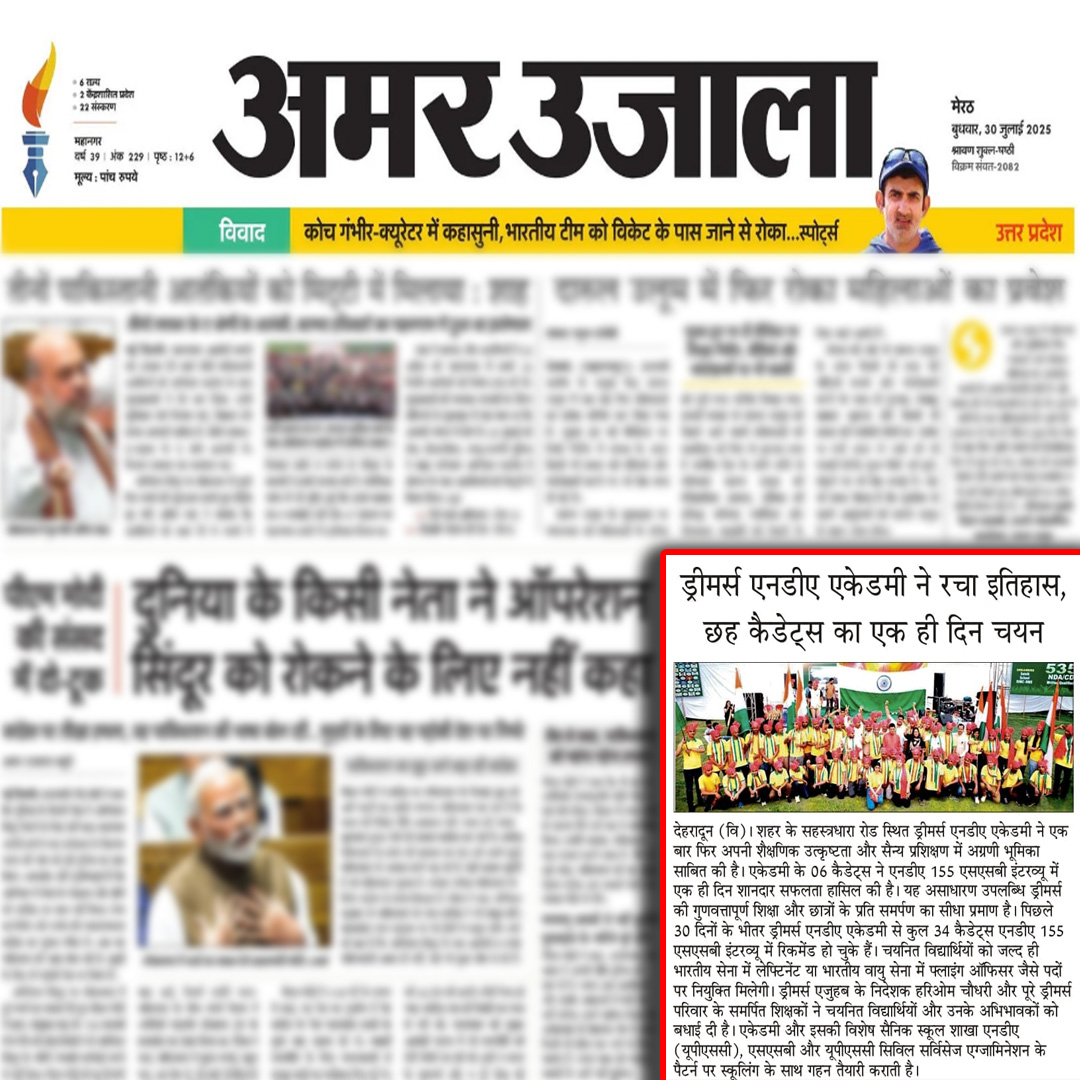
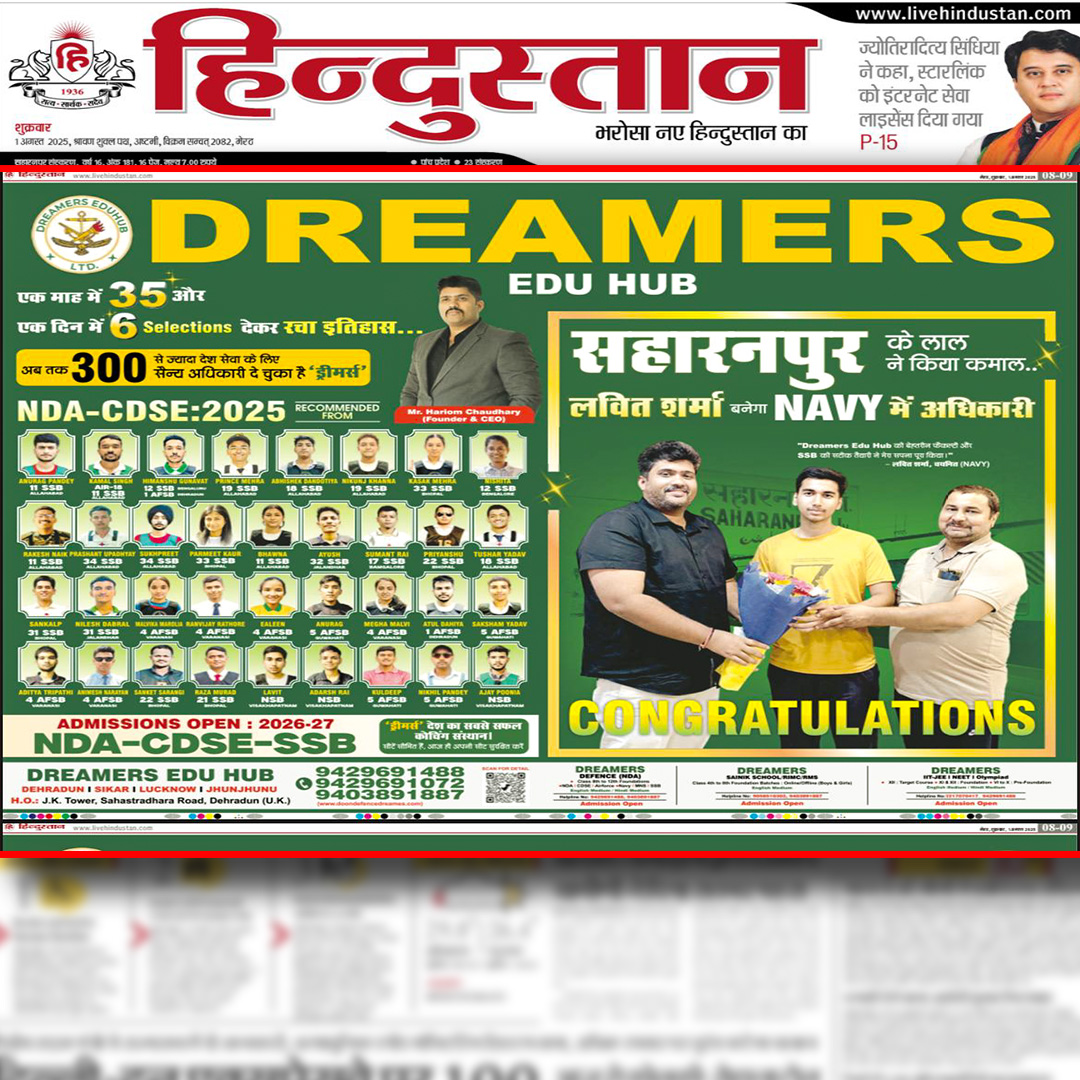
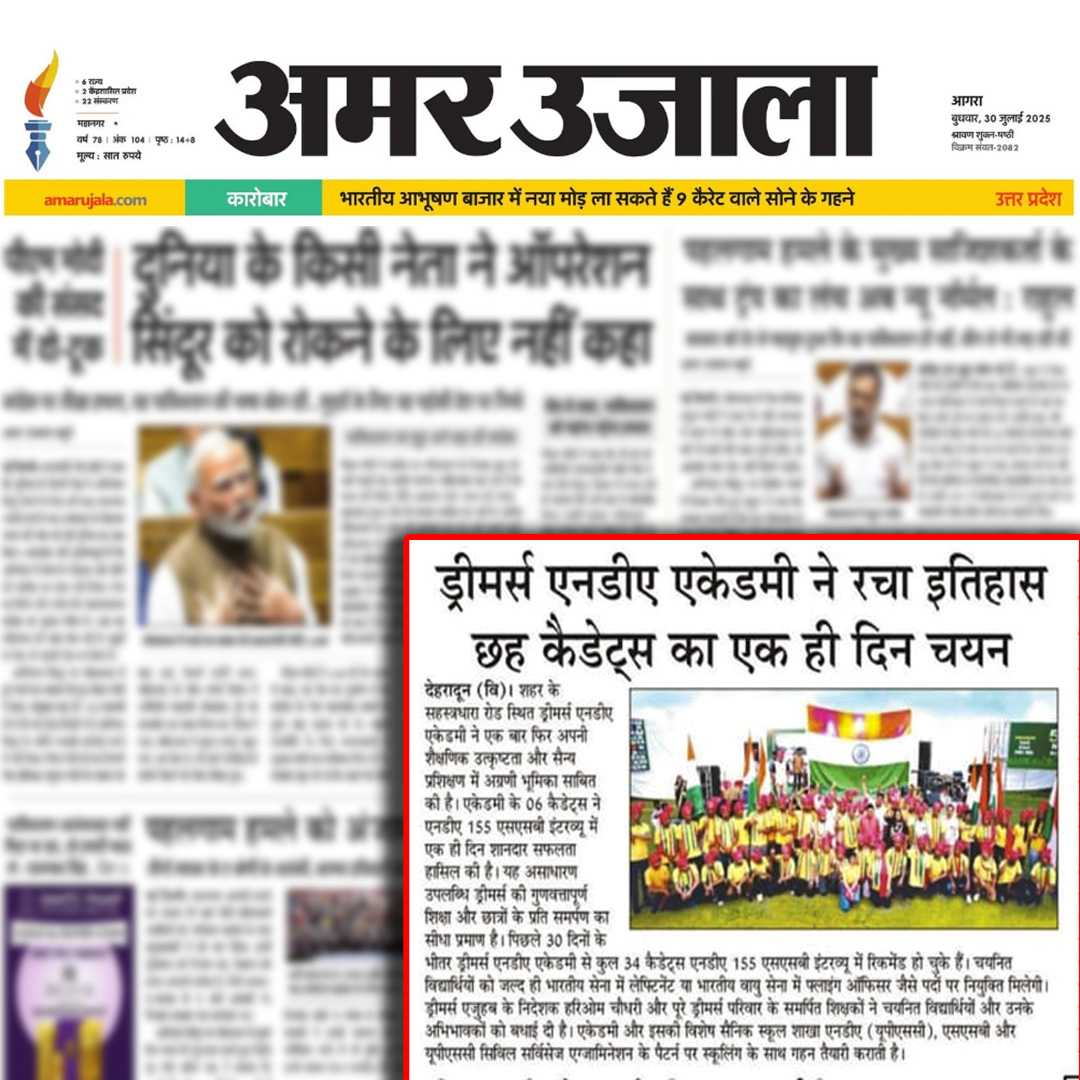
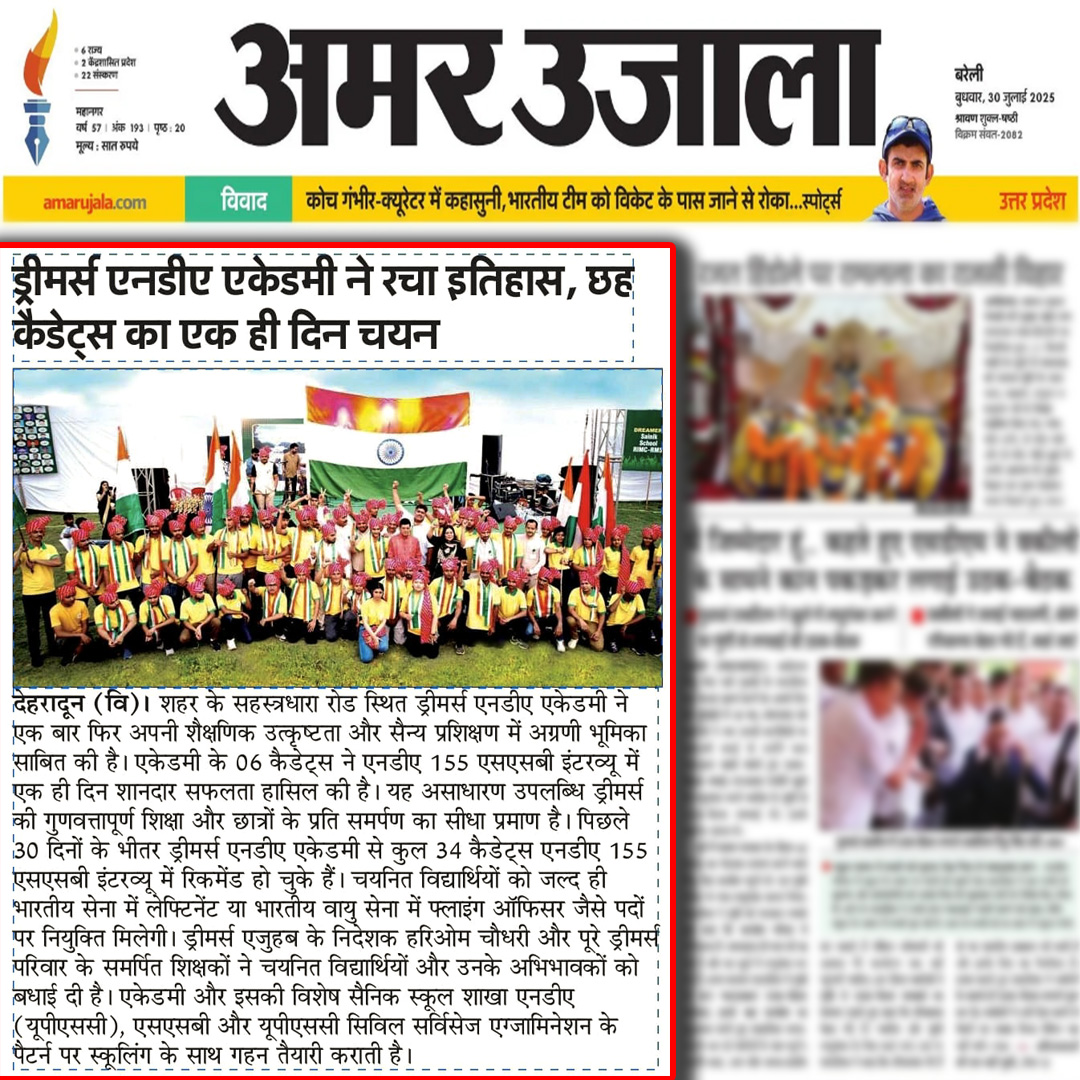
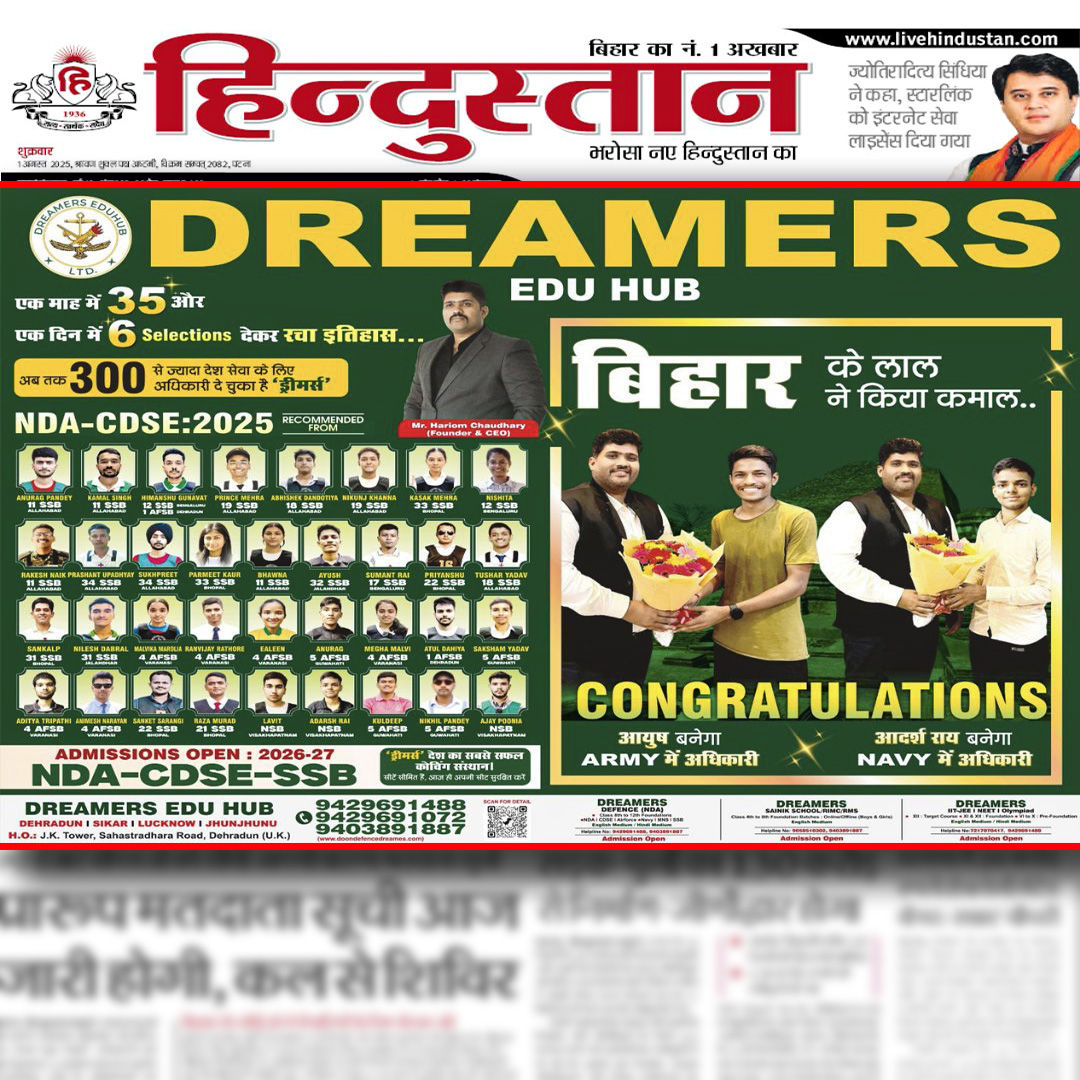















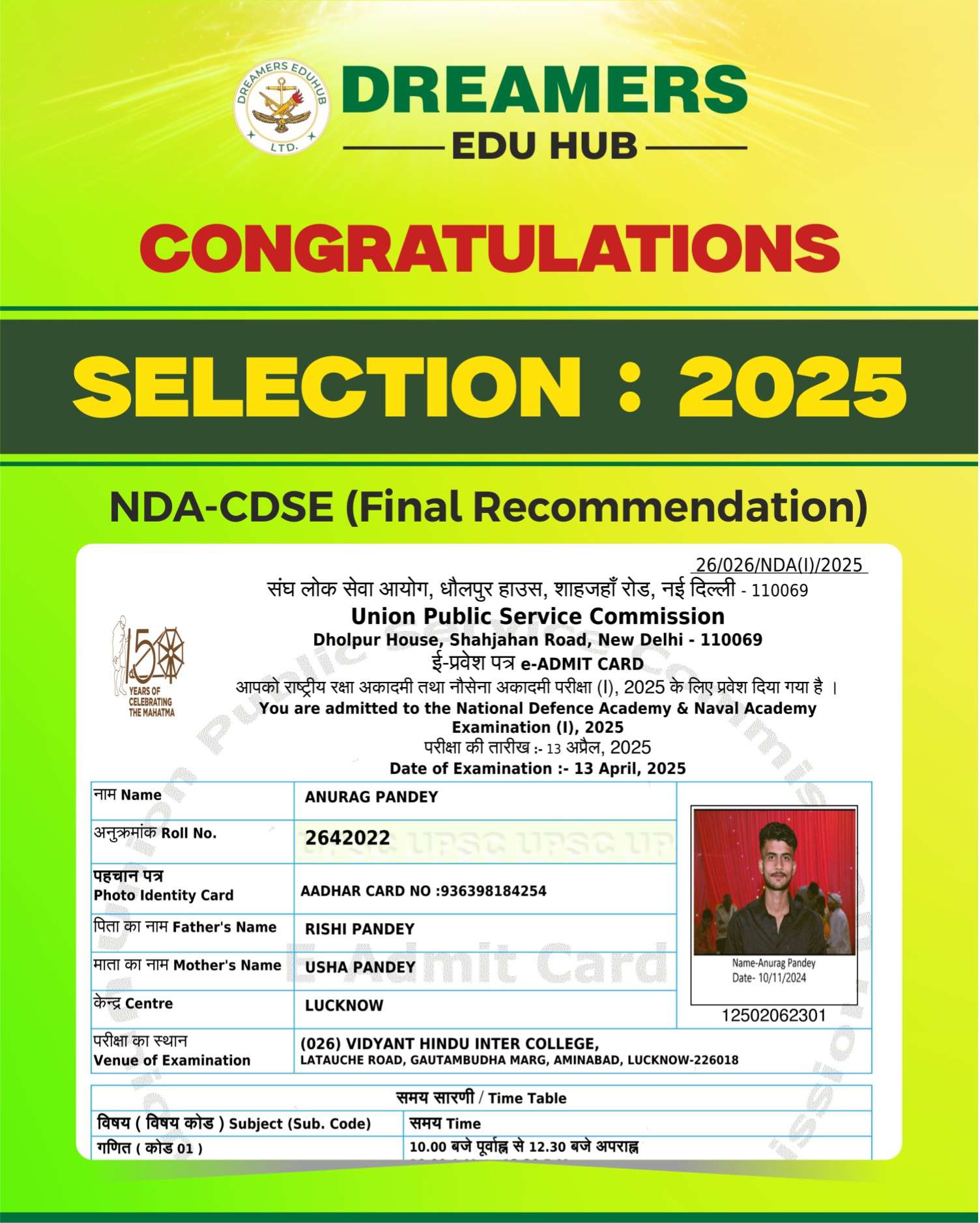
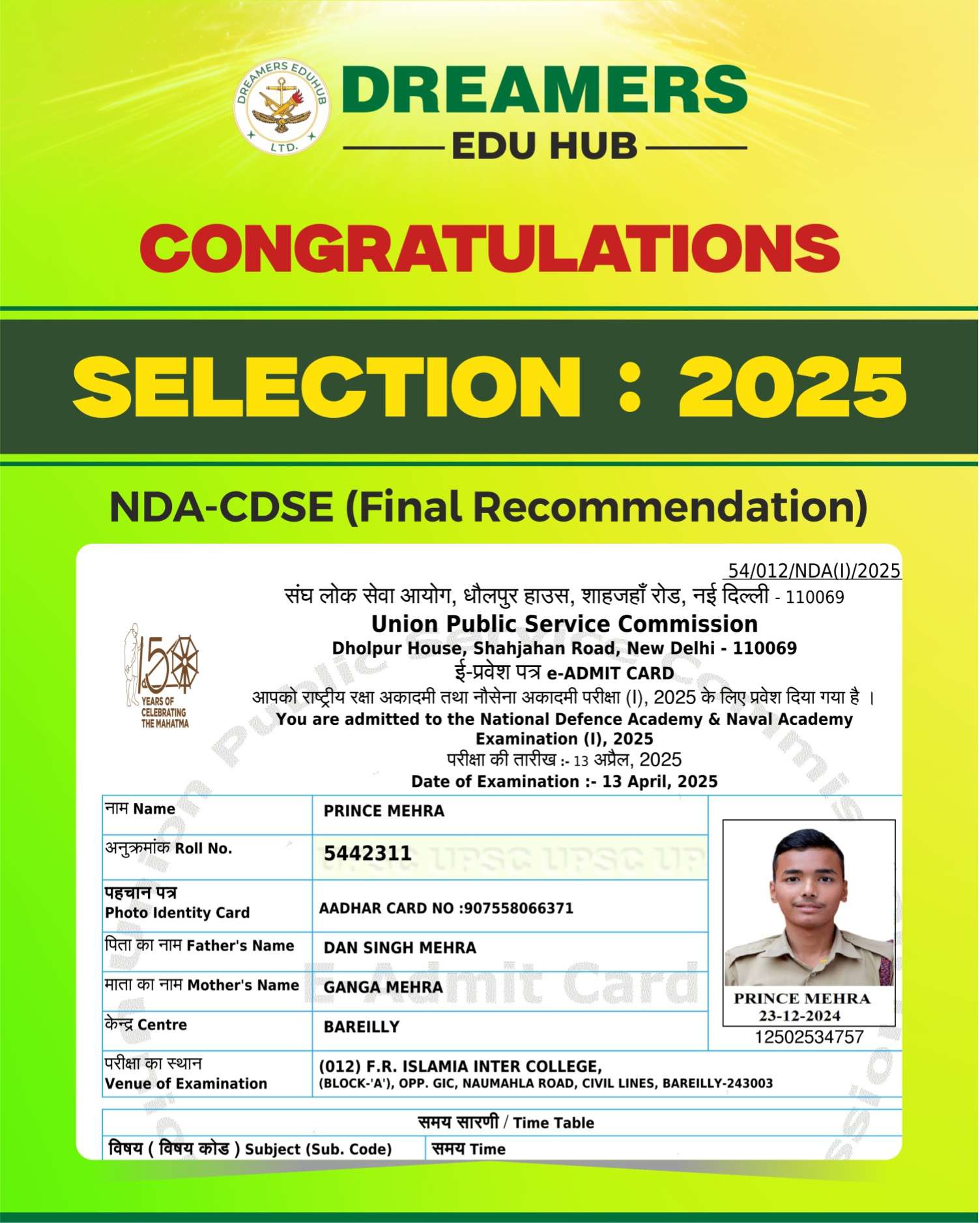
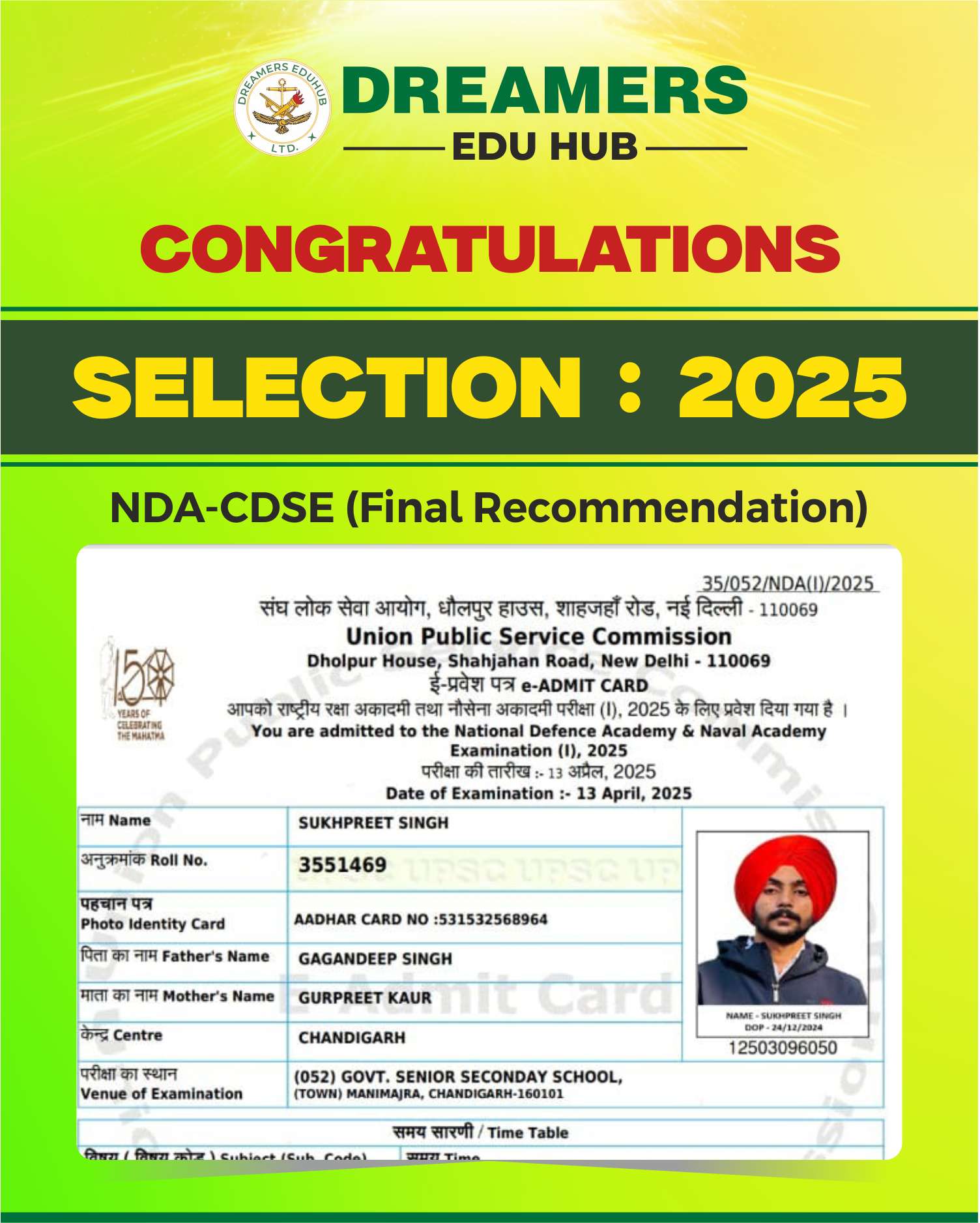
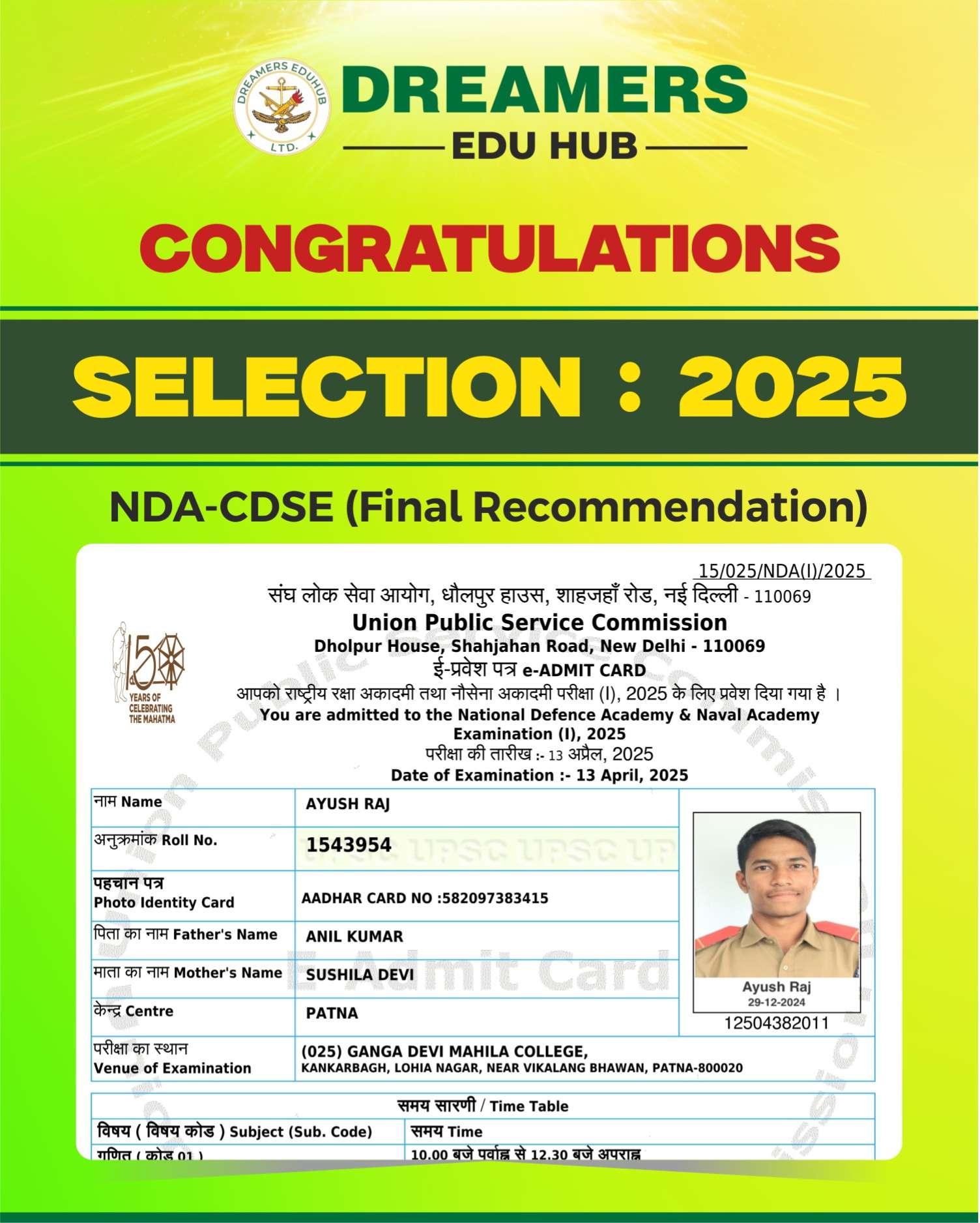
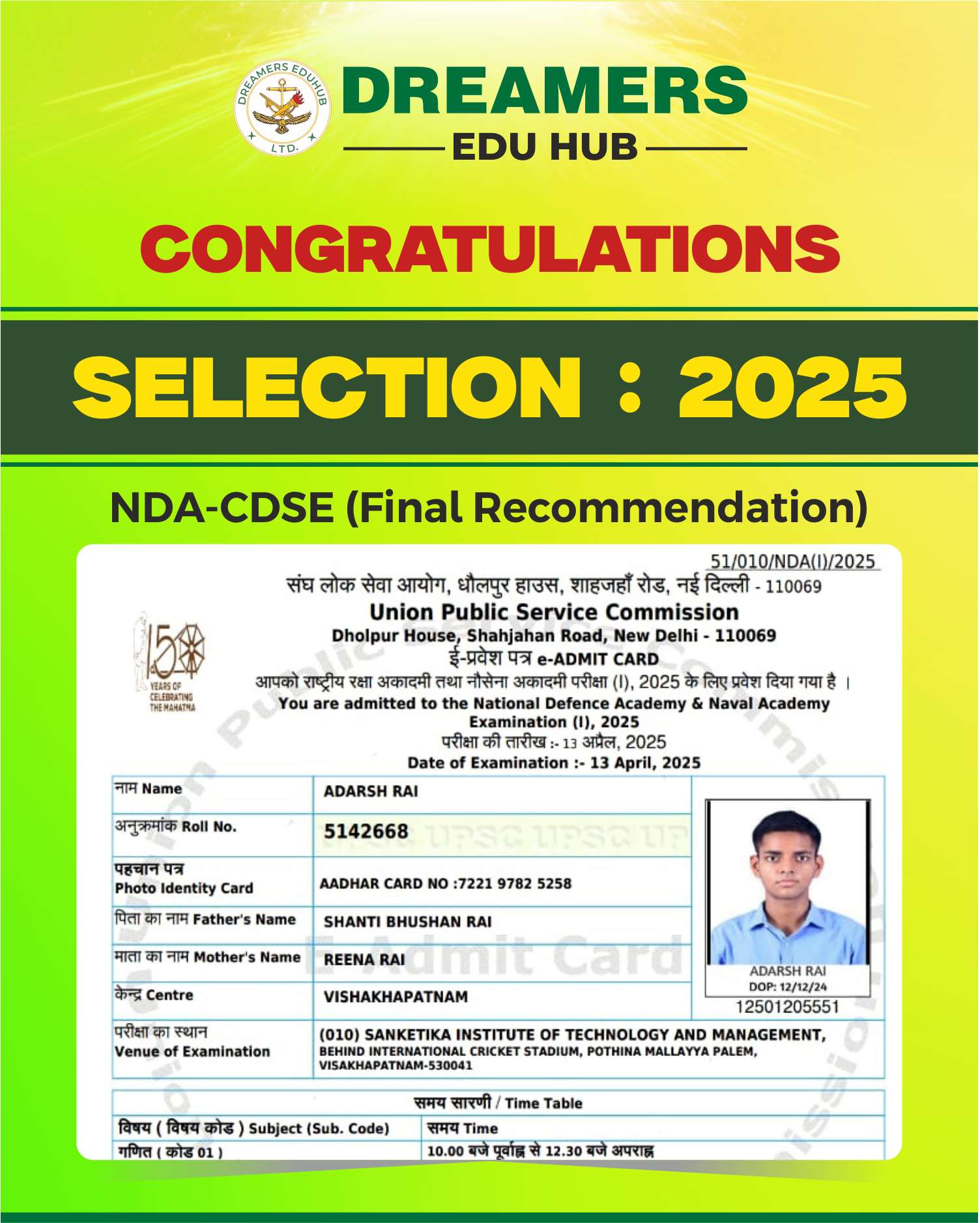
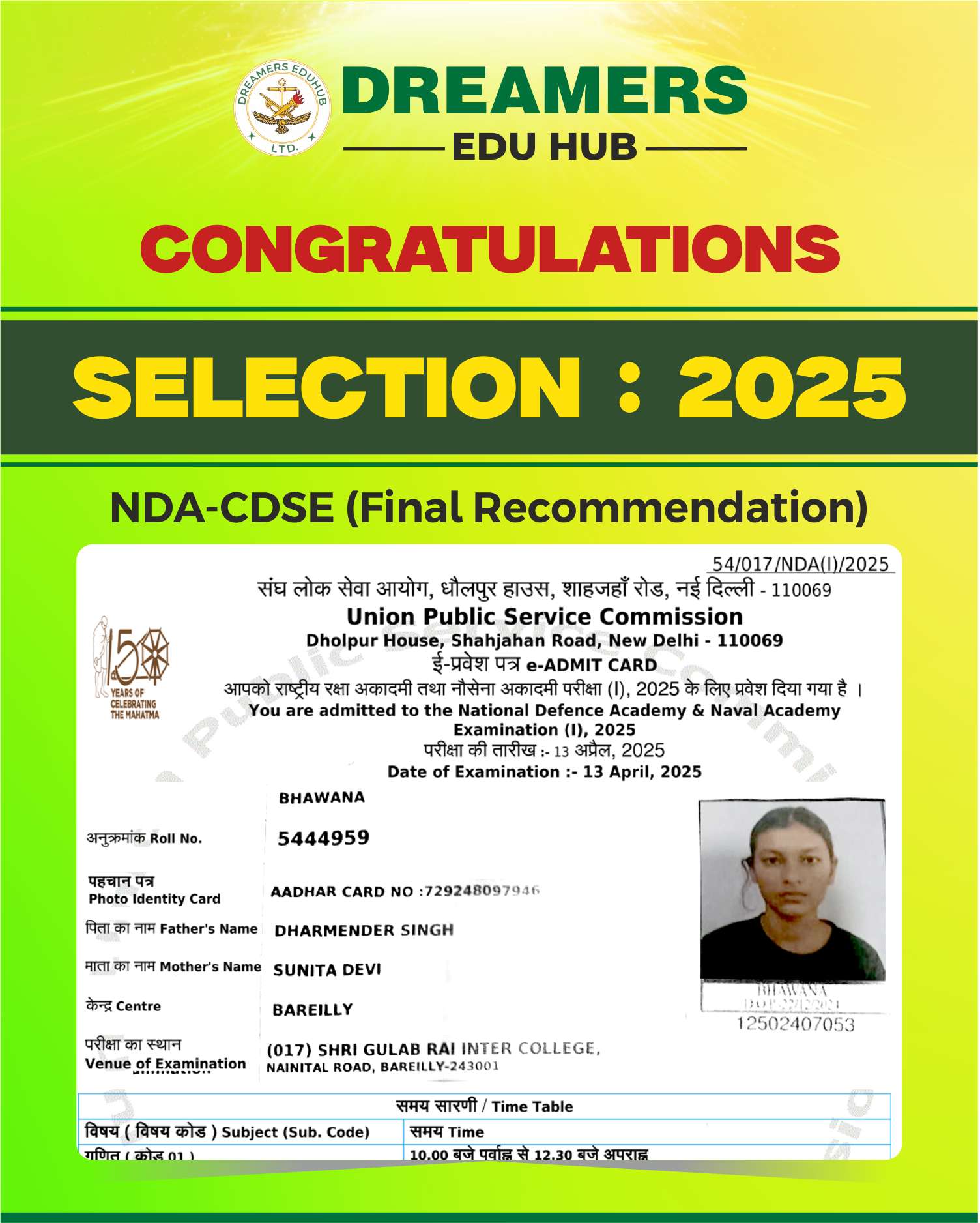
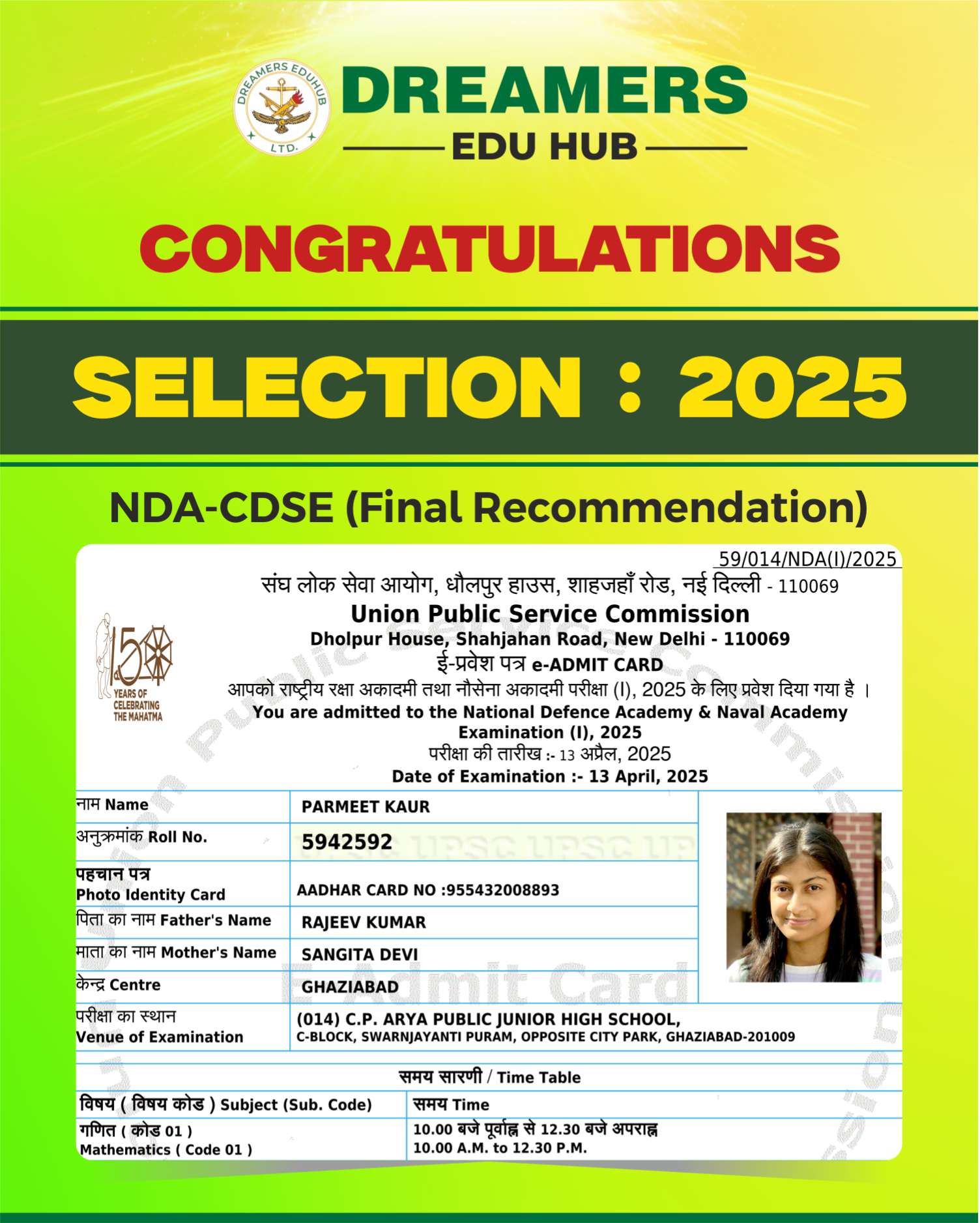
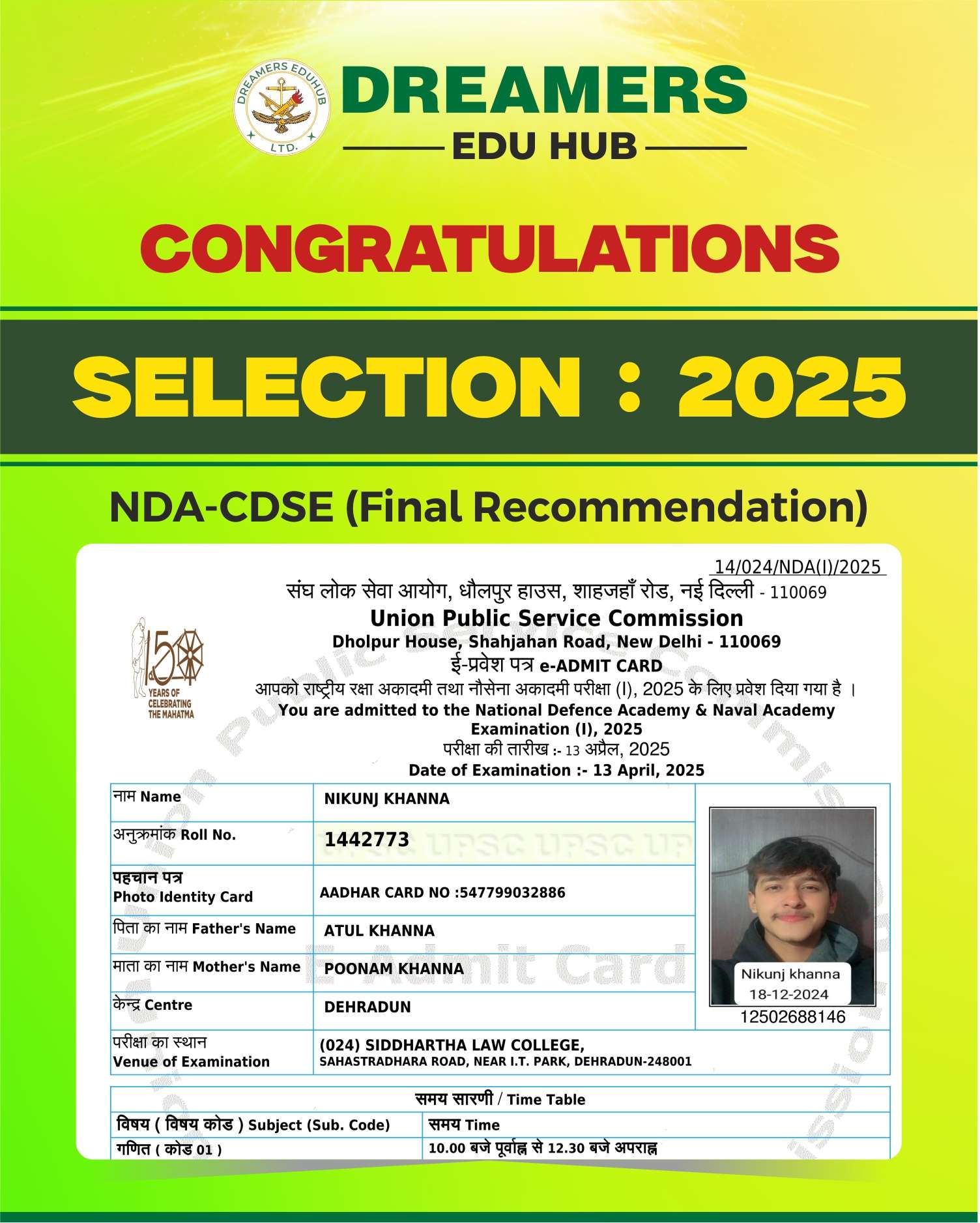

























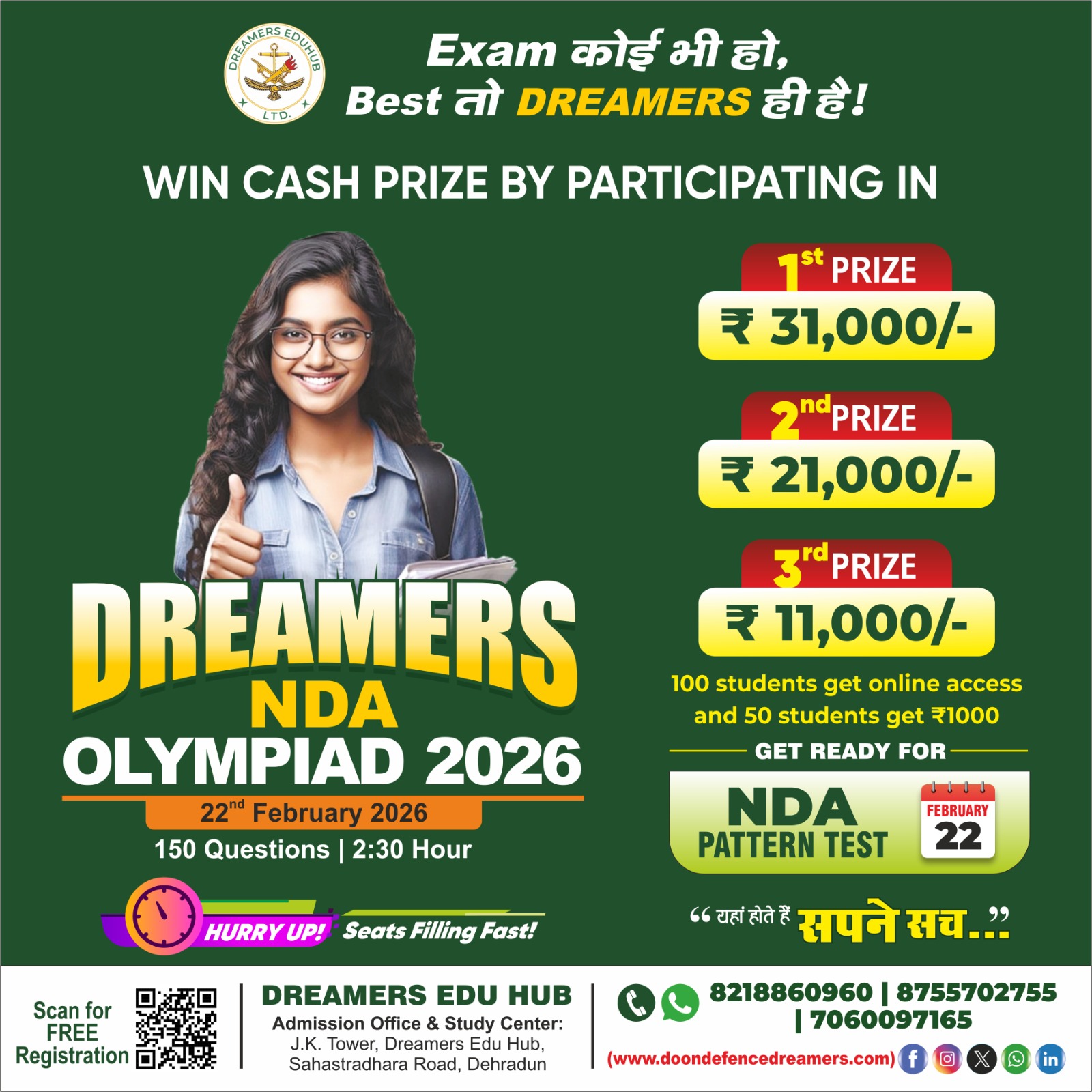

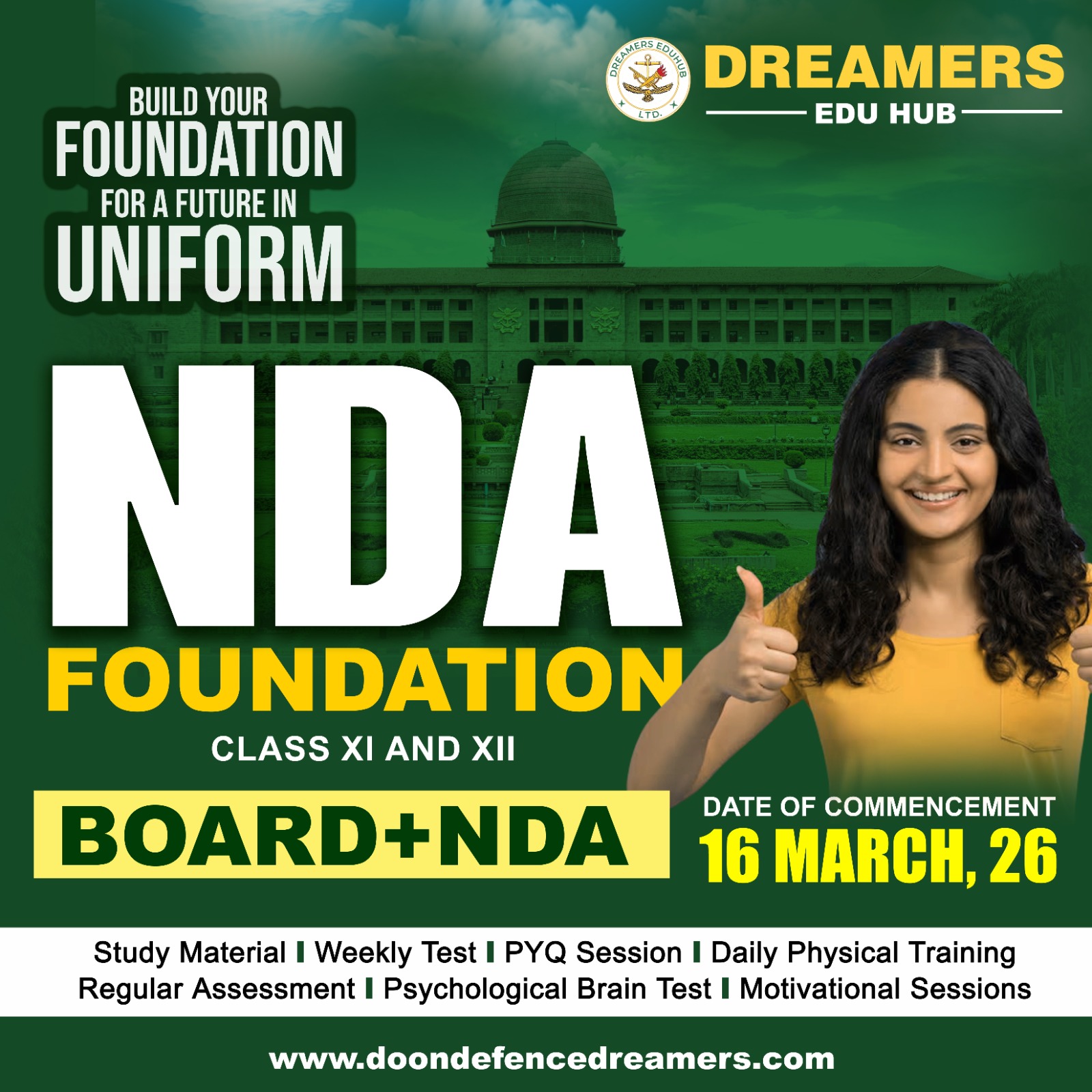



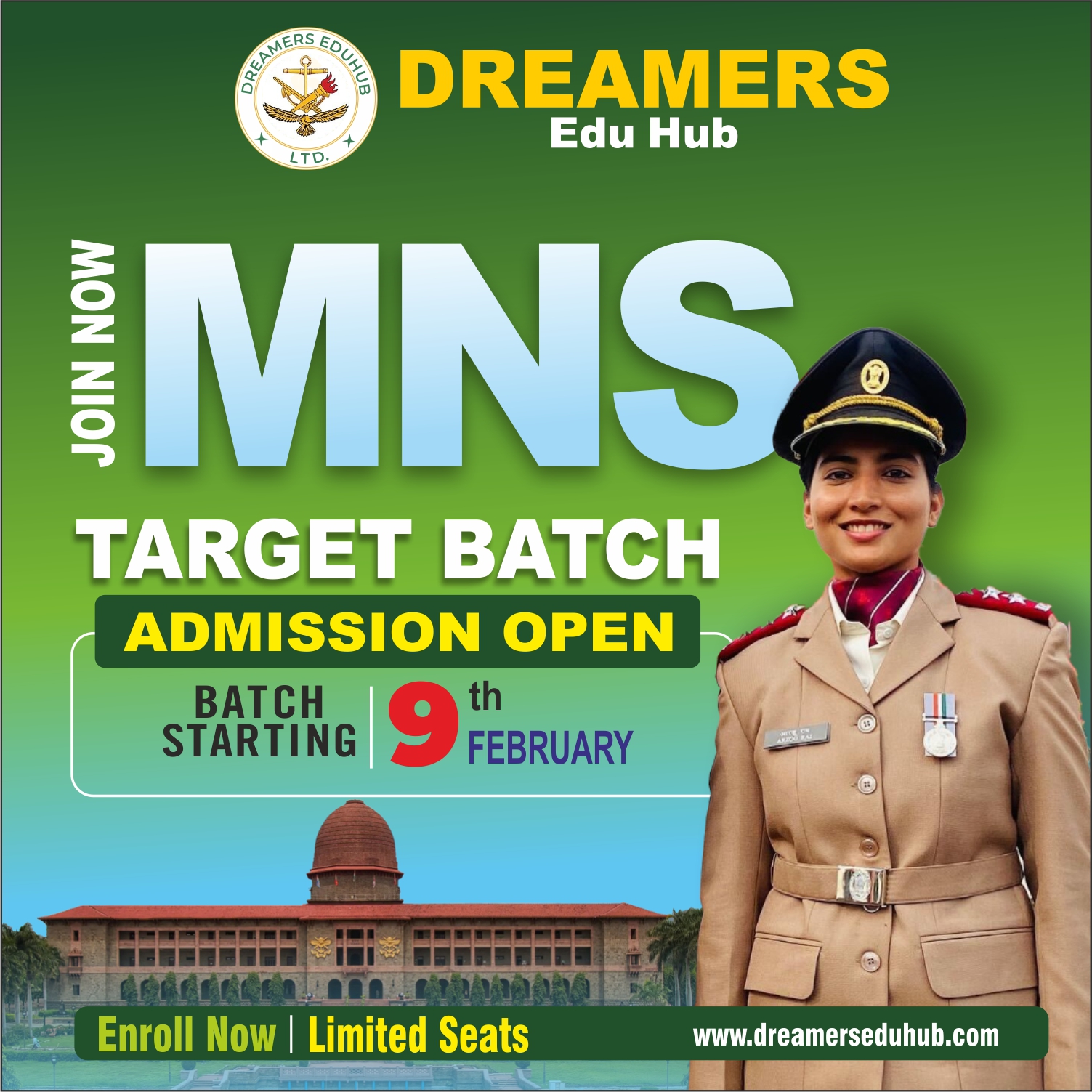
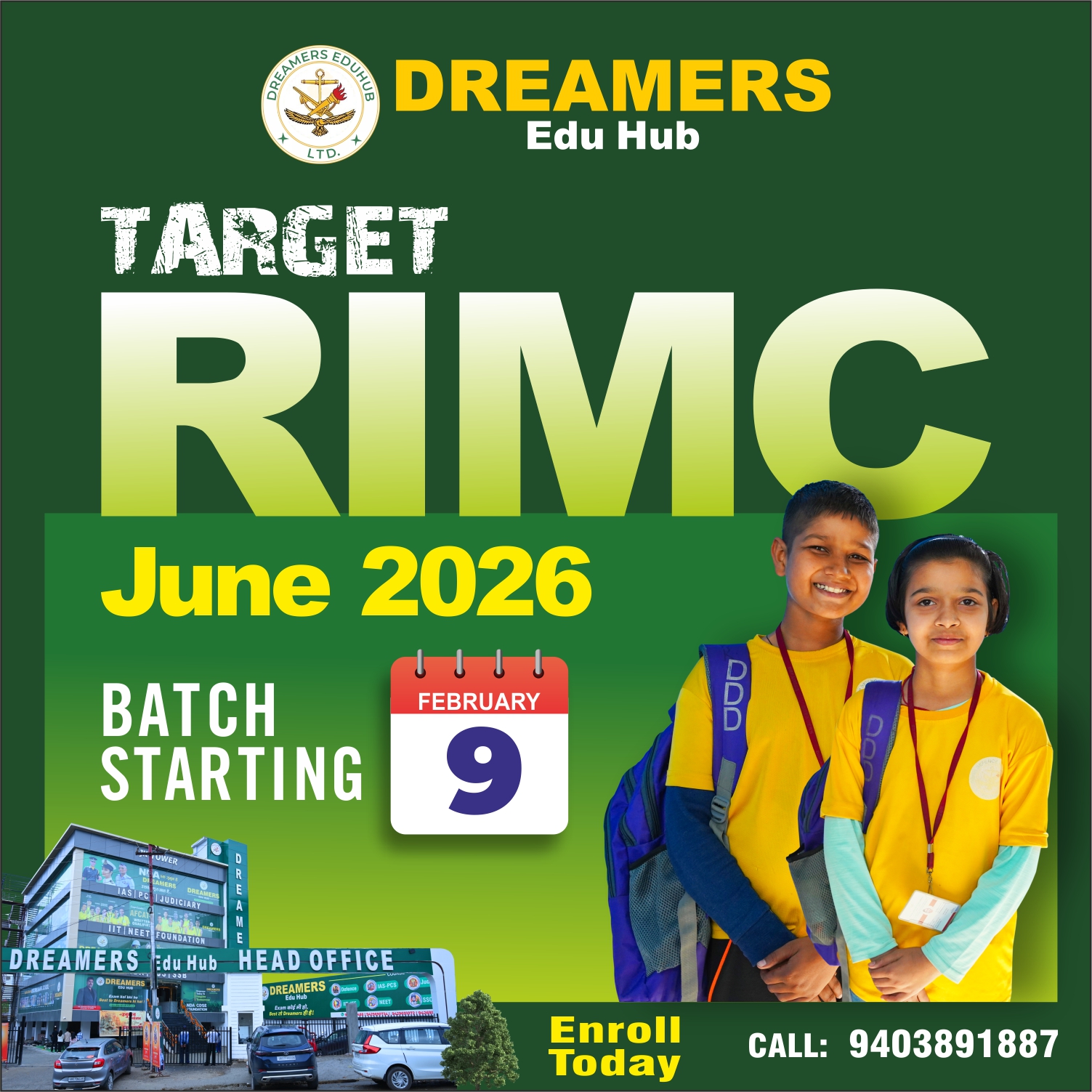











Explore Doon Defence Dreamer’s vibrant gallery, showcasing student achievements, training sessions, and memorable moments of our prestigious institution.
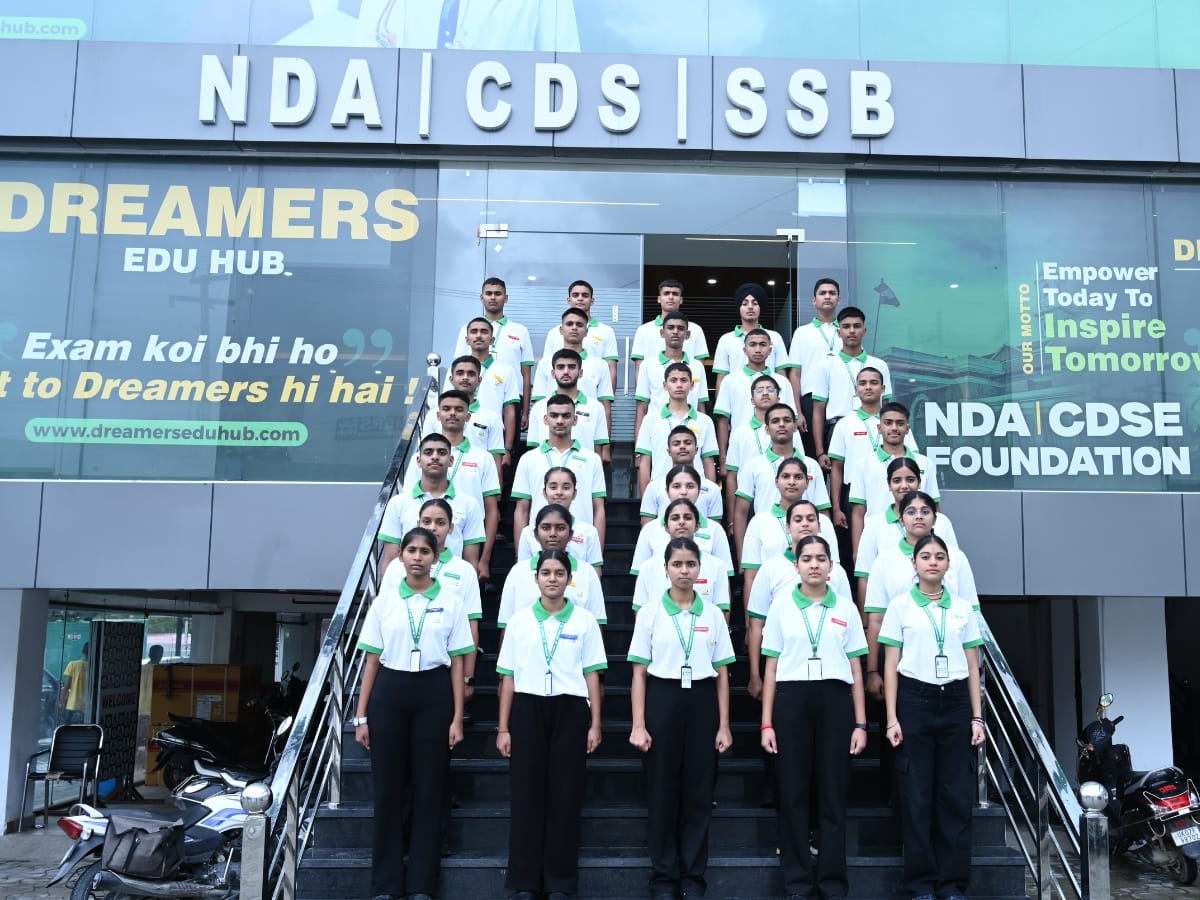
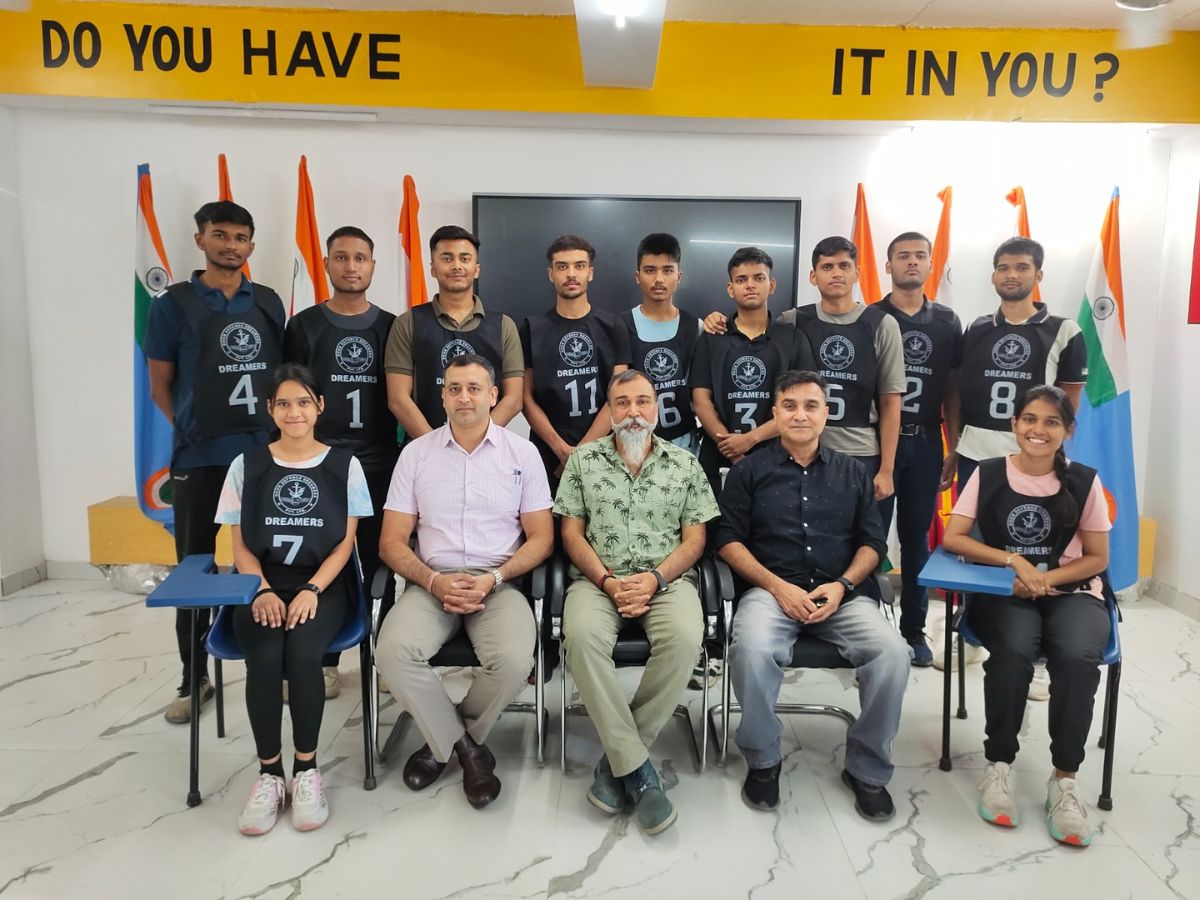
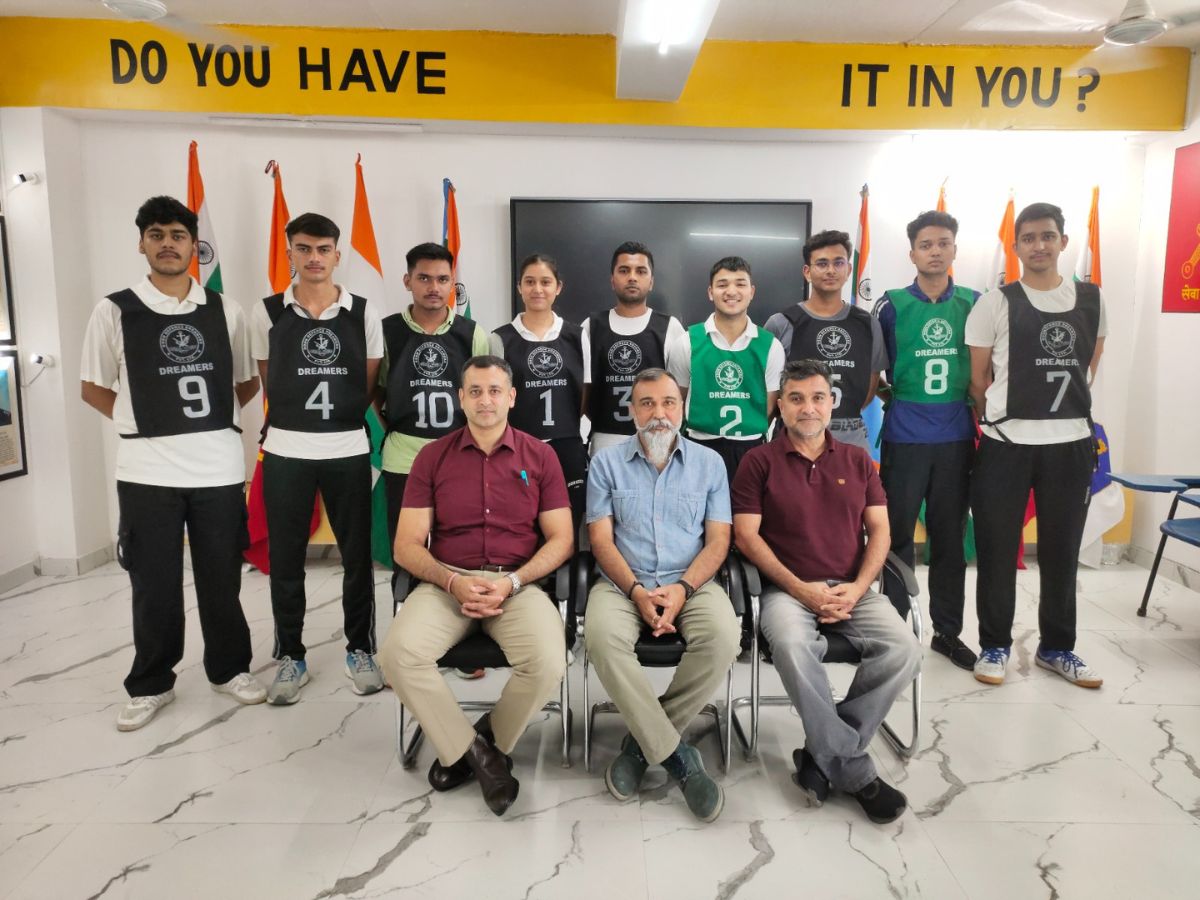

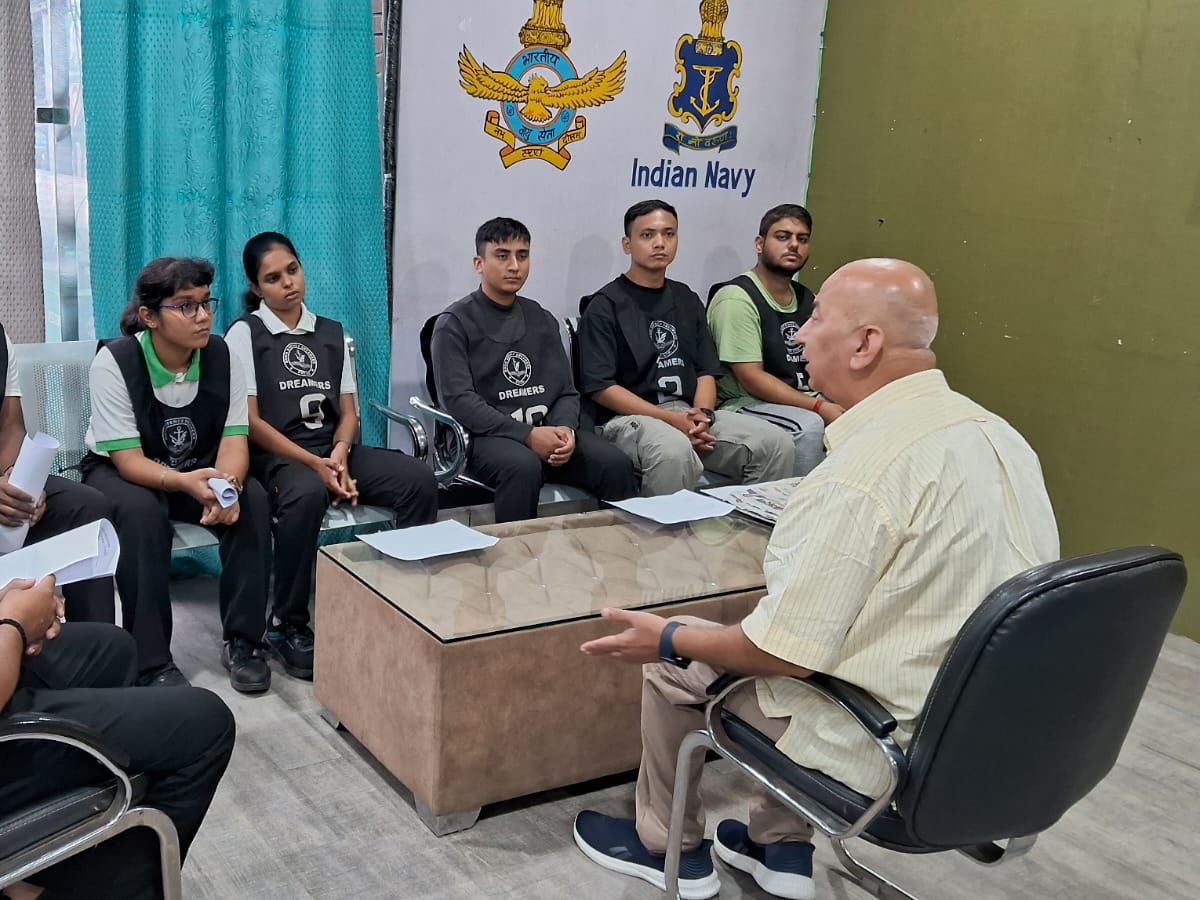

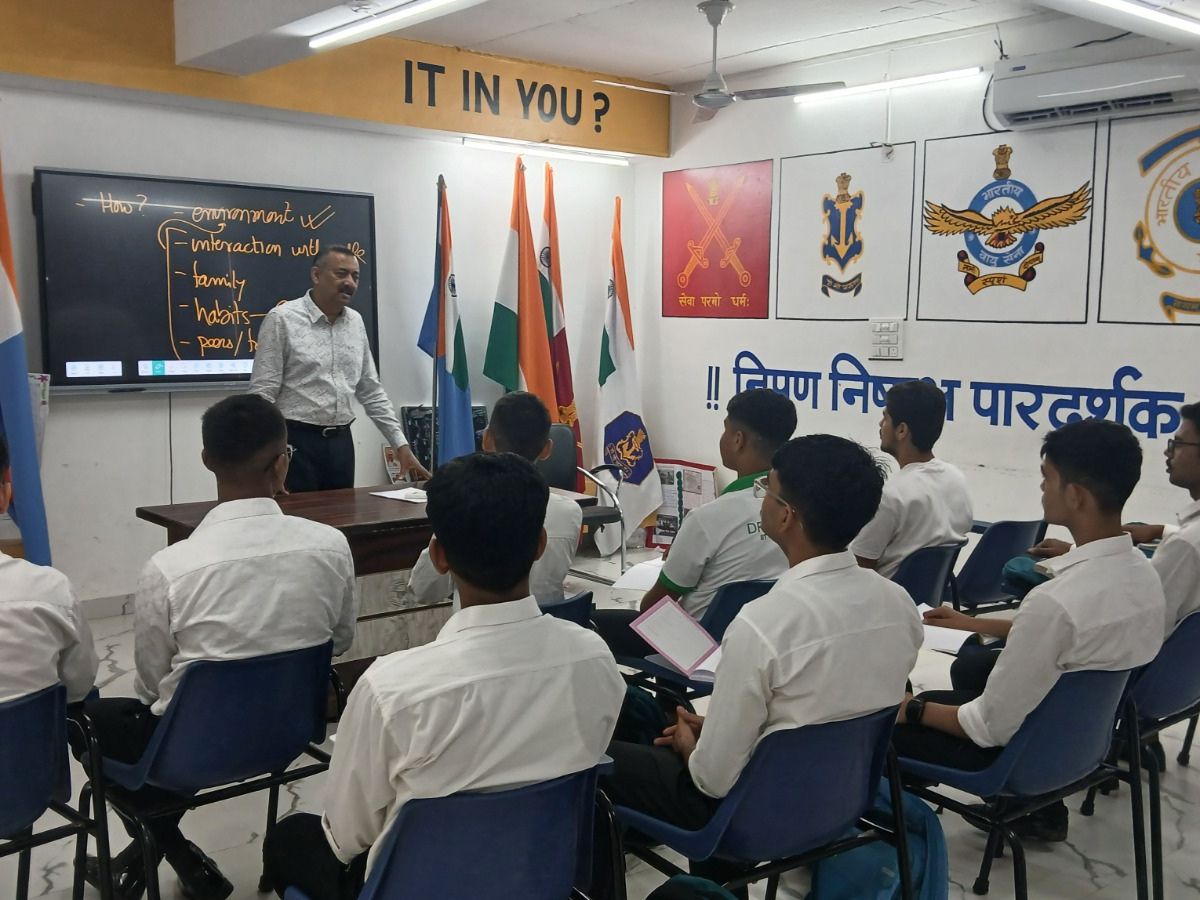

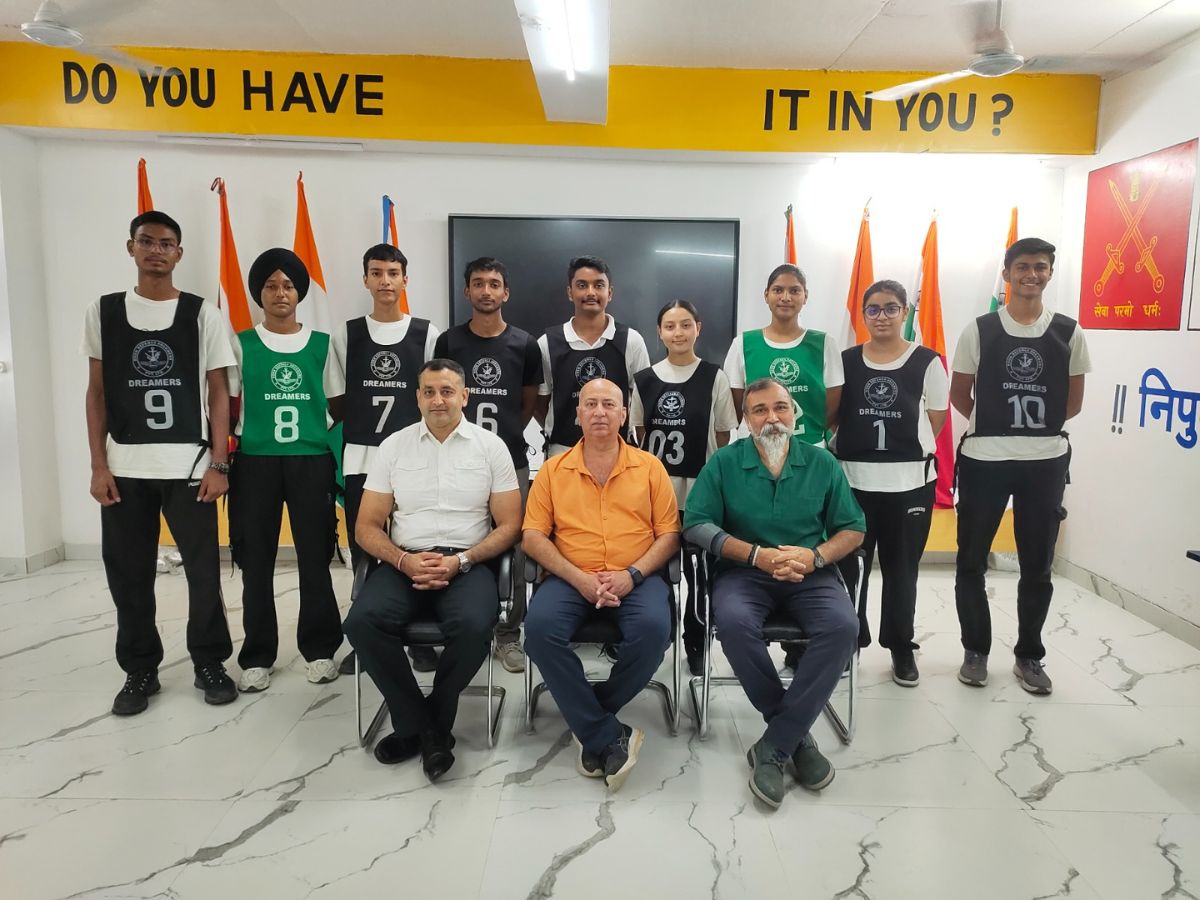

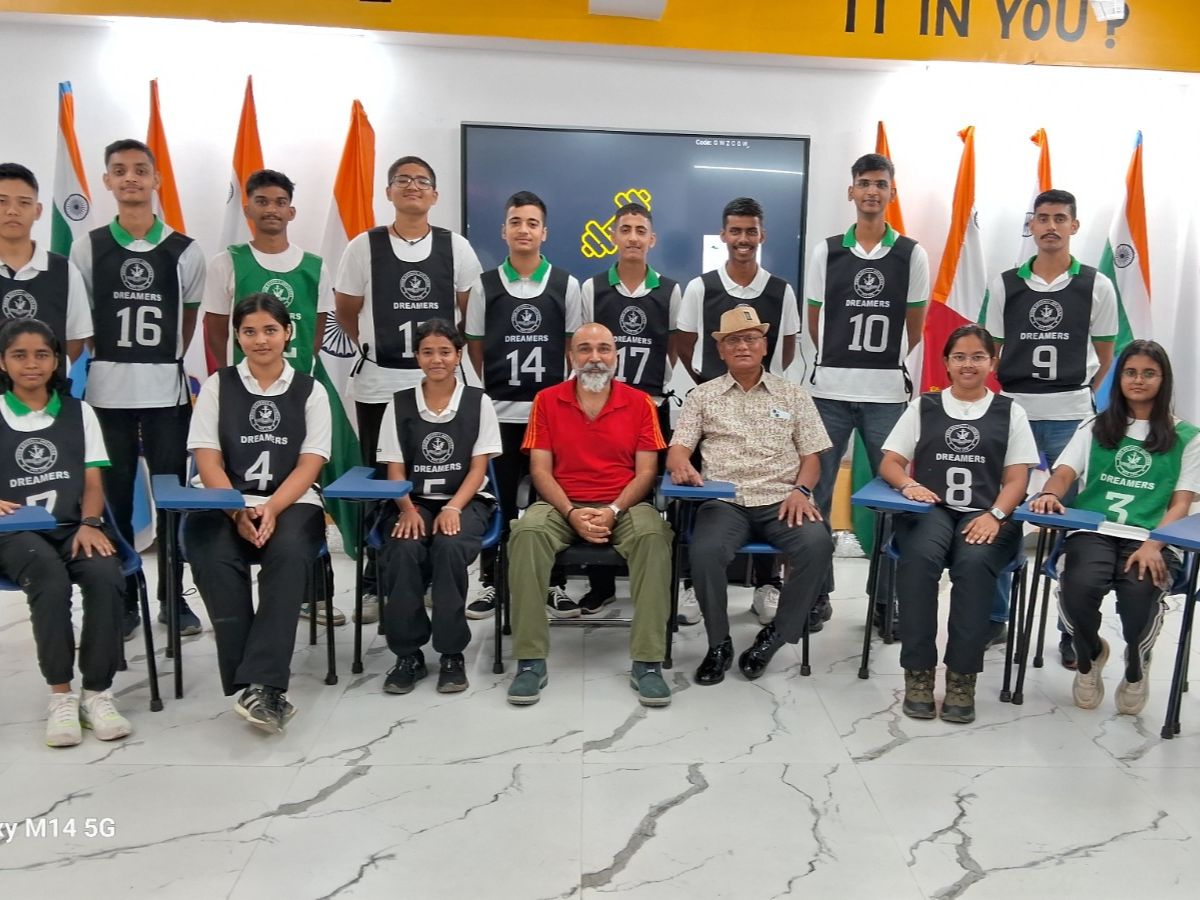







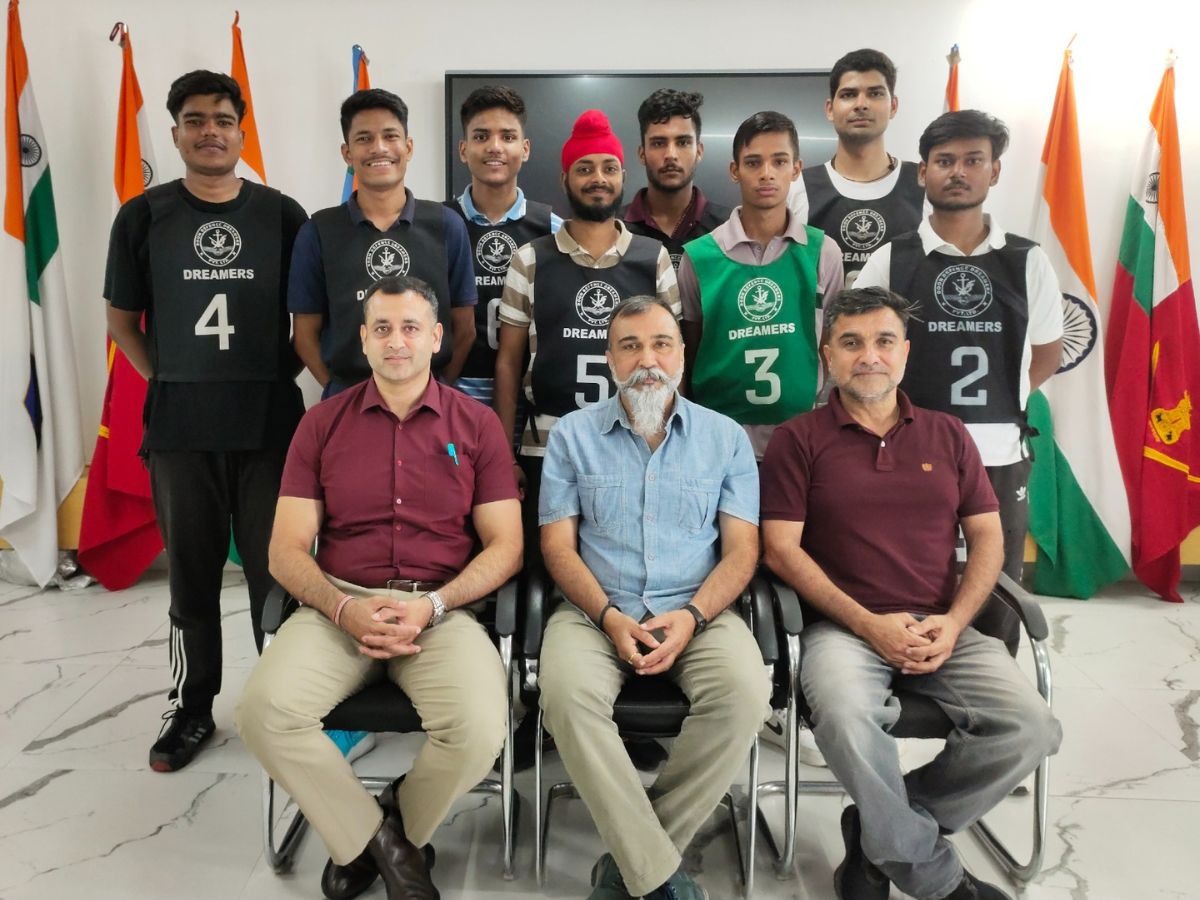
Get complete details about the courses and facilities offered by Doon Defence Dreamers which is the best NDA coaching in India
Explore genuine feedback from our students on Google.
EXCELLENTTrustindex verifies that the original source of the review is Google. Nice 👍 experience with dreamers edu hubPosted onTrustindex verifies that the original source of the review is Google. One of the best academy for defence coaching... I was once an aspirant of nda here and I really have so much memories attached to this place the friends I made the teachers that guided here the one on one connection with teachers the bond which was there I don't think any other academy can give it... It's really one of the best.Posted onTrustindex verifies that the original source of the review is Google. I have taken admission here for NDA TARGET course and it's the best decision of my life. The faculty is best and very helpful.Posted onTrustindex verifies that the original source of the review is Google. Quality education and better organisation for defence aspirantsPosted onTrustindex verifies that the original source of the review is Google. Hi guyzz , DDDA ( DOON DEFENCE DREAMERS ACADEMY) is the pinnacle of educational excellence , not just in Dehradun but nationwide . With a proven track record of delivering the best selections and mentorship , in other word we can say it's a key for success of students . Thank youPosted onTrustindex verifies that the original source of the review is Google. India's Best faculty team for NDA, CDS, and AFCAT, preparation Expert in Mathematics, English, General Studies, and current affairs One -to- one doubt- clearing sessions and personalized mentoring .Posted onTrustindex verifies that the original source of the review is Google. Best mentor in the academy abhinav sir 🐐🐐🐐🐐🐐🐐REAL GOATTPosted onTrustindex verifies that the original source of the review is Google. Choose your mentor wisely..👍Posted onTrustindex verifies that the original source of the review is Google. Best mentor and teacher Abhinav sir 🙏🙌🙌Verified by TrustindexTrustindex verified badge is the Universal Symbol of Trust. Only the greatest companies can get the verified badge who has a review score above 4.5, based on customer reviews over the past 12 months. Read more
Meet our expert faculty at Doon Defence Dreamers, dedicated to providing top-notch NDA coaching.
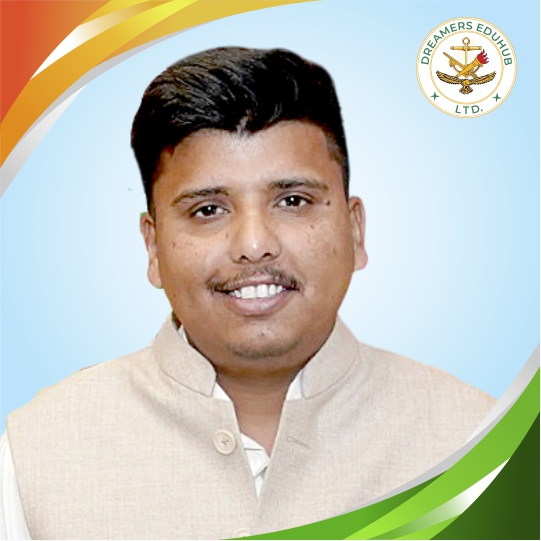
Praveen Nandewal
Mathematics Educator
I am Parveen Sir, widely regarded as India’s Best NDA Maths Teacher with more than 7 years of teaching experience. My students lovingly call me the ‘Calculus King’ for NDA, as I specialize in simplifying the toughest concepts into crystal-clear strategies. Over the years, I have mentored thousands of aspirants and proudly produced toppers including AIR 1, 3, 8, 14, 22, 24 and many more.

Mr. Anuj Chaudhary
English faculty
Anuj Chaudhary Sir, with 10+ years of expertise in teaching English for NDA, CDS & Airforce. My simple & exam-focused style makes tough concepts super easy to understand.
Content that is clear, practical & result-oriented to boost your confidence.
With proven methods, I’ve guided thousands of students to success in their dream exams.

Devesh Kumar Shukla
Mathematics Educator
Devesh Shukla Sir is a highly respected Mathematics Faculty & Defence Exams Mentor with over 10 years of rich teaching experience. Known for his conceptual clarity, innovative problem-solving methods, and student-centric approach, he has guided thousands of aspirants towards success in competitive examinations.
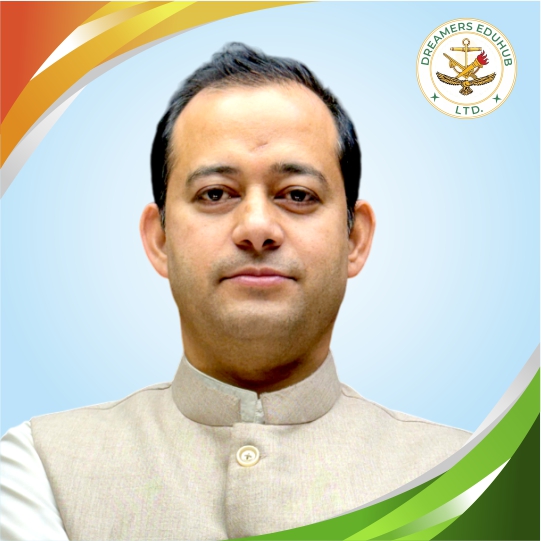
Ranjeet Rawat
GS Educator
Ranjeet Singh is a seasoned educator with over 15 years of dedicated teaching experience in the field of competitive examinations including UPSC Civil Services Examination (CSE), CDS, CAPF, and State PCS. With a strong academic background in Sociology and Political Science, along with a B.Ed. degree, he has developed a deep understanding of both subject matter and pedagogy.

Haritosh Nautiyal
Mathematics Educator
Sir is a highly respected educator and mentor, holding an M.Sc in Mathematics and a B.Ed with reputed academy Pestle weed college Dehradun with years of experience in guiding students towards excellence in competitive examinations. With his deep mastery of Mathematics and sharp understanding of exam patterns .
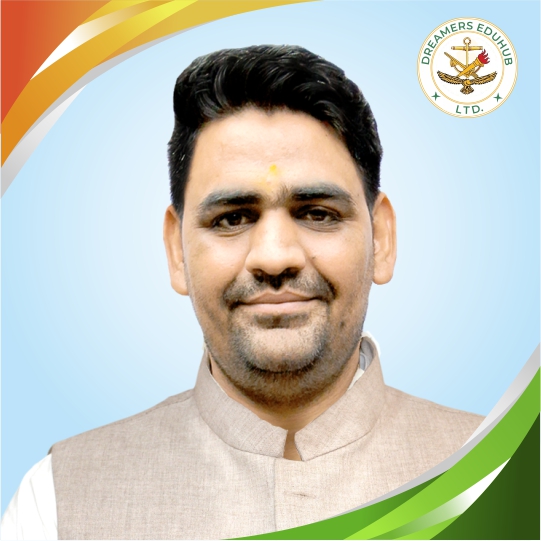
Abhinav Khare
GS Educator
Abhinav Khare is a distinguished educator with over 10 years of teaching experience in General Studies, with a strong specialization in Geography. His academic journey is marked by success in multiple State Services Preliminary Examinations, which gives him a unique perspective on competitive exam .
Doon Defence Dreamers known as the best NDA Coaching in Dehradun offers best facilities from well-equipped classrooms to personalized mentoring and comprehensive study material designed to boost your preparation.
Achieve NDA Success with Doon Defence Dreamers
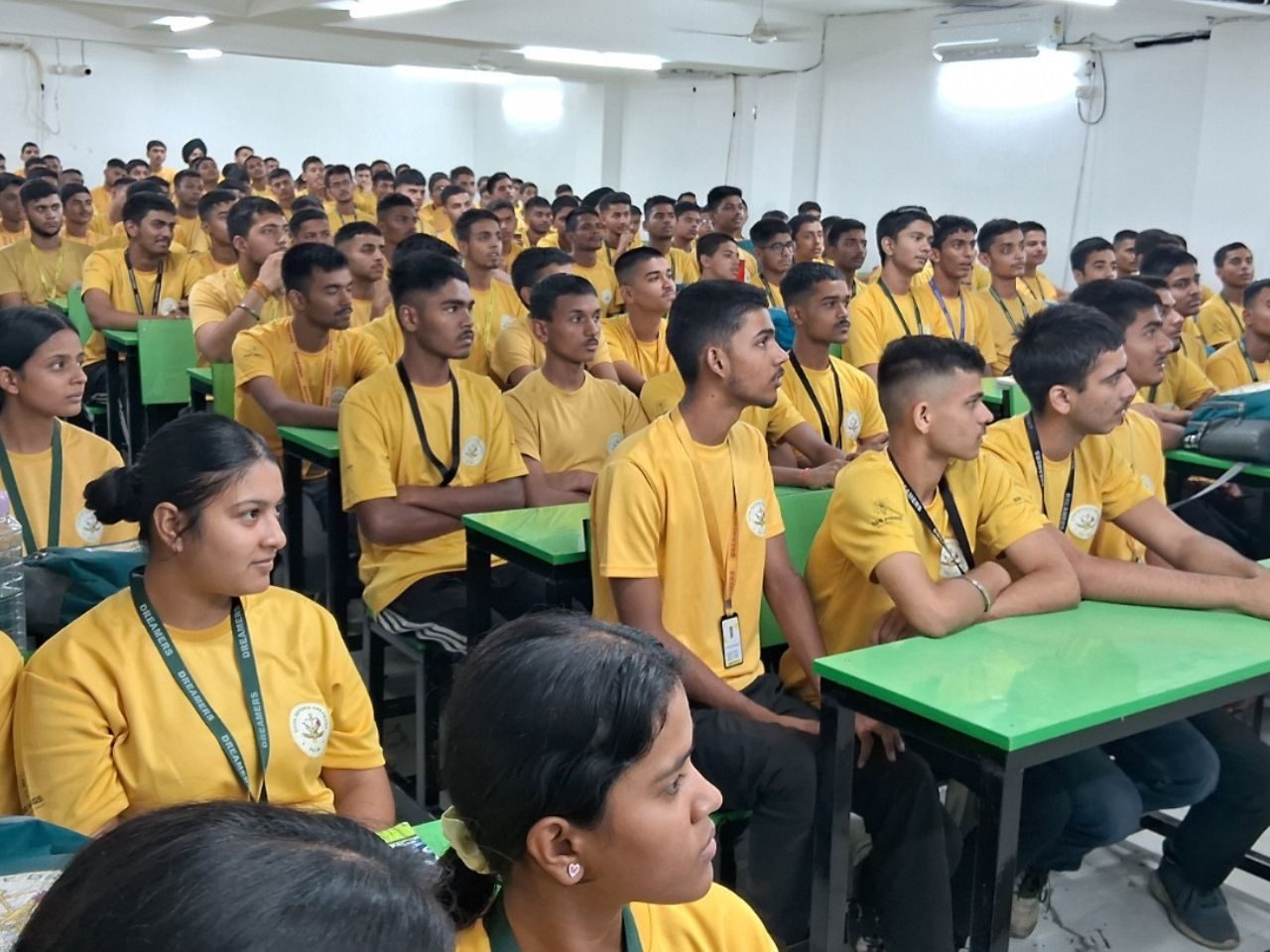
Learn from the industry’s best faculties dedicated to ensuring your success in defence exams.
Top-notch hostel and mess facilities for Future officers

Experience top-notch hostel and mess facilities, ensuring a comfortable stay and healthy meals.
All-round Personal Development at Dreamers

Attend special classes focused on yoga, meditation, personality development, spoken English, and psychology tests.
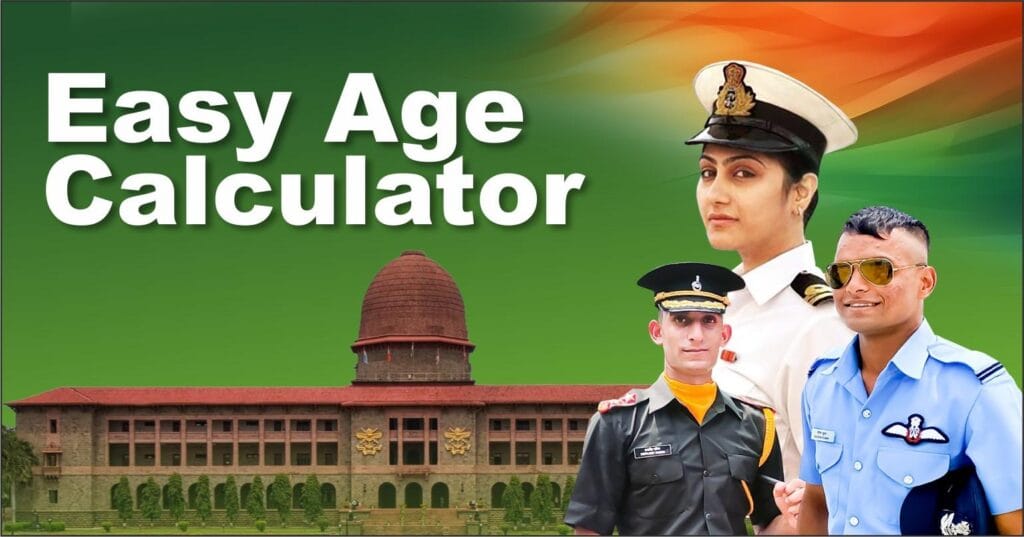
Confused about your eligibility for the defence exams?
Here’s the Free Age Calculator by Doon defence dreamers for defence aspirants! Calculate your exact age, check eligibility, and find out your remaining attempts effortlessly.
Doon Defence Dreamers is considered one of the Best NDA coaching in Dehradun because it combines disciplined training, experienced faculty, and a focused learning environment to guide aspirants toward defence careers. The academy has helped hundreds of students prepare effectively for both NDA written exams and SSB interviews with structured classes, personality development sessions, and result‑oriented guidance.
The academy has achieved remarkable success, with over 710+ students selected in NDA 2, 2025, showing strong performance and credibility in NDA preparation. These results reflect the institute’s commitment to quality teaching and its ability to help students reach their goals.
Doon Defence Dreamers offers a wide range of courses, including NDA coaching with schooling, NDA + CDSE preparation, SSB interview training, and other defence programmes like CDS, AFCAT, and CAPF. These courses are designed for different age groups and exam needs to ensure comprehensive preparation.
Yes. The academy provides well‑structured study materials, regular mock tests, doubt solving sessions, and guided practice to help students improve their knowledge, time management, and confidence for the NDA written exam and SSB assessments.
Students at Doon Defence Dreamers can expect a supportive and focused training environment with disciplined routines, expert mentorship, personal guidance, and facilities that help build both academic skills and personality traits essential for defence services.



Welcome to DDD
Doon Defence Dreamers
